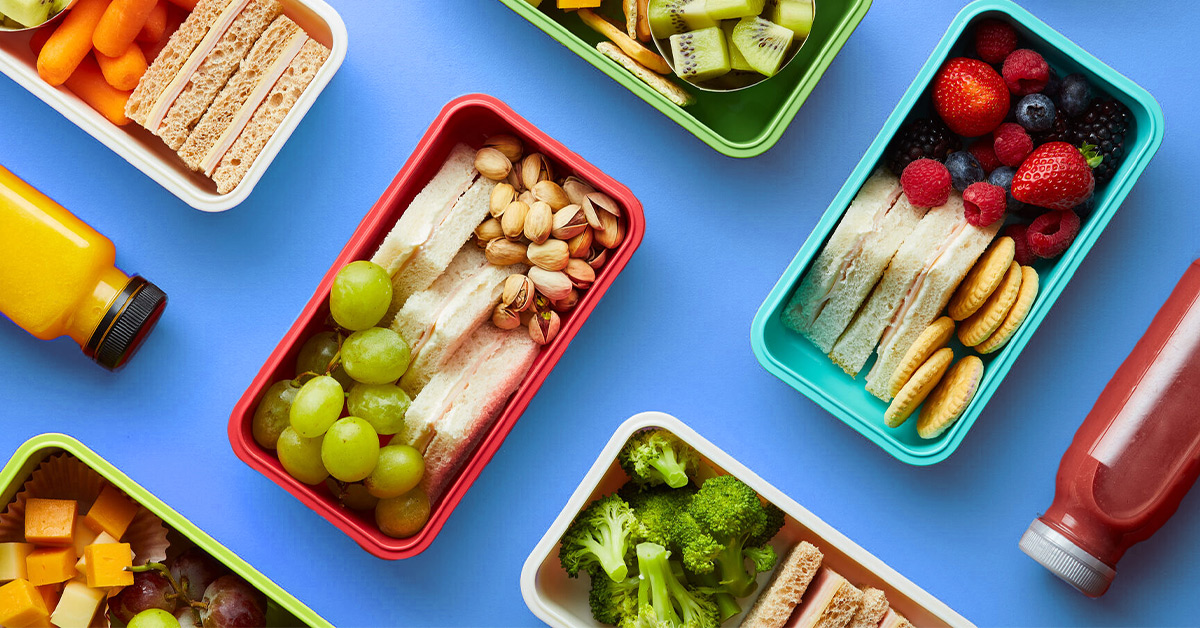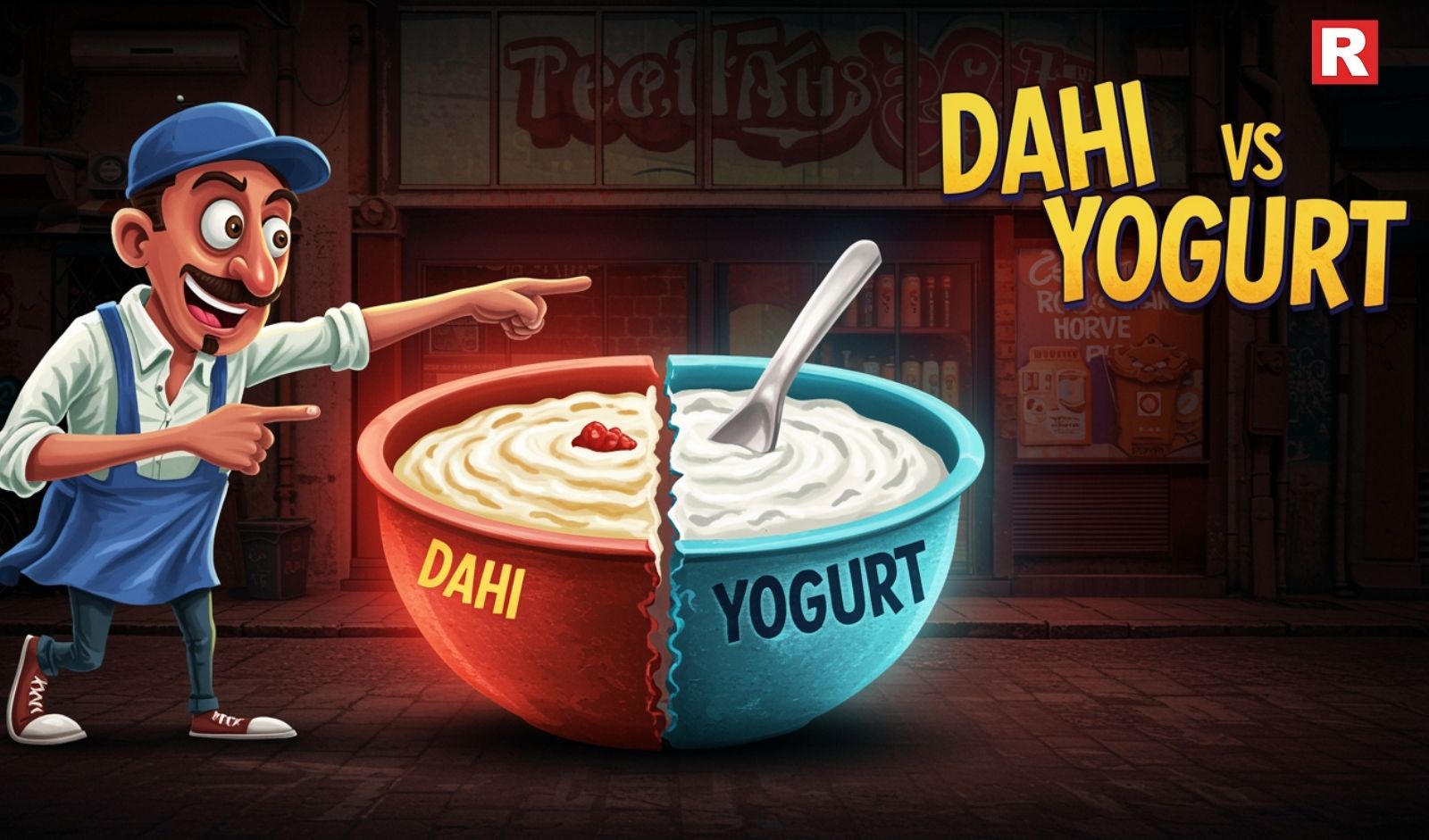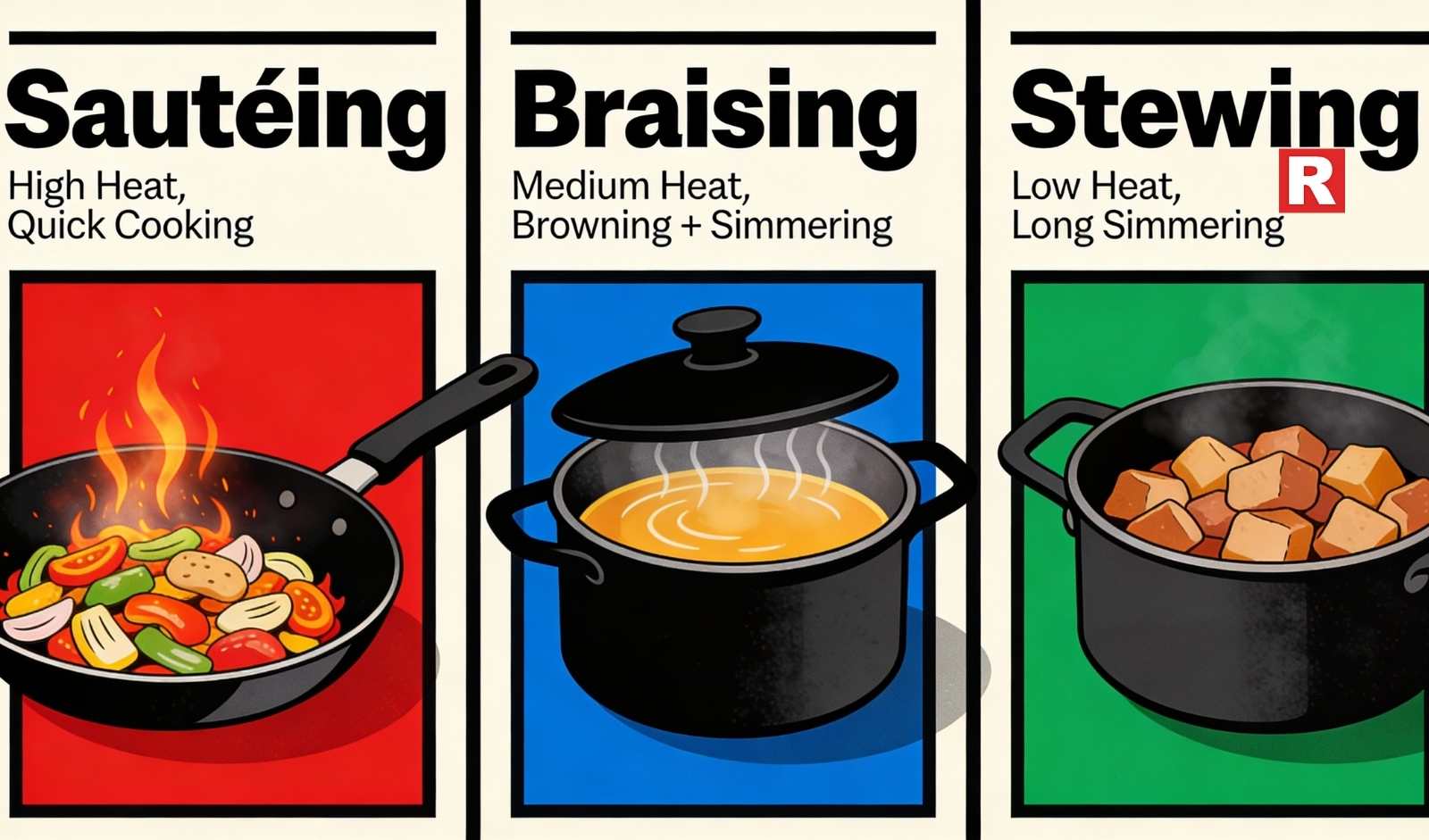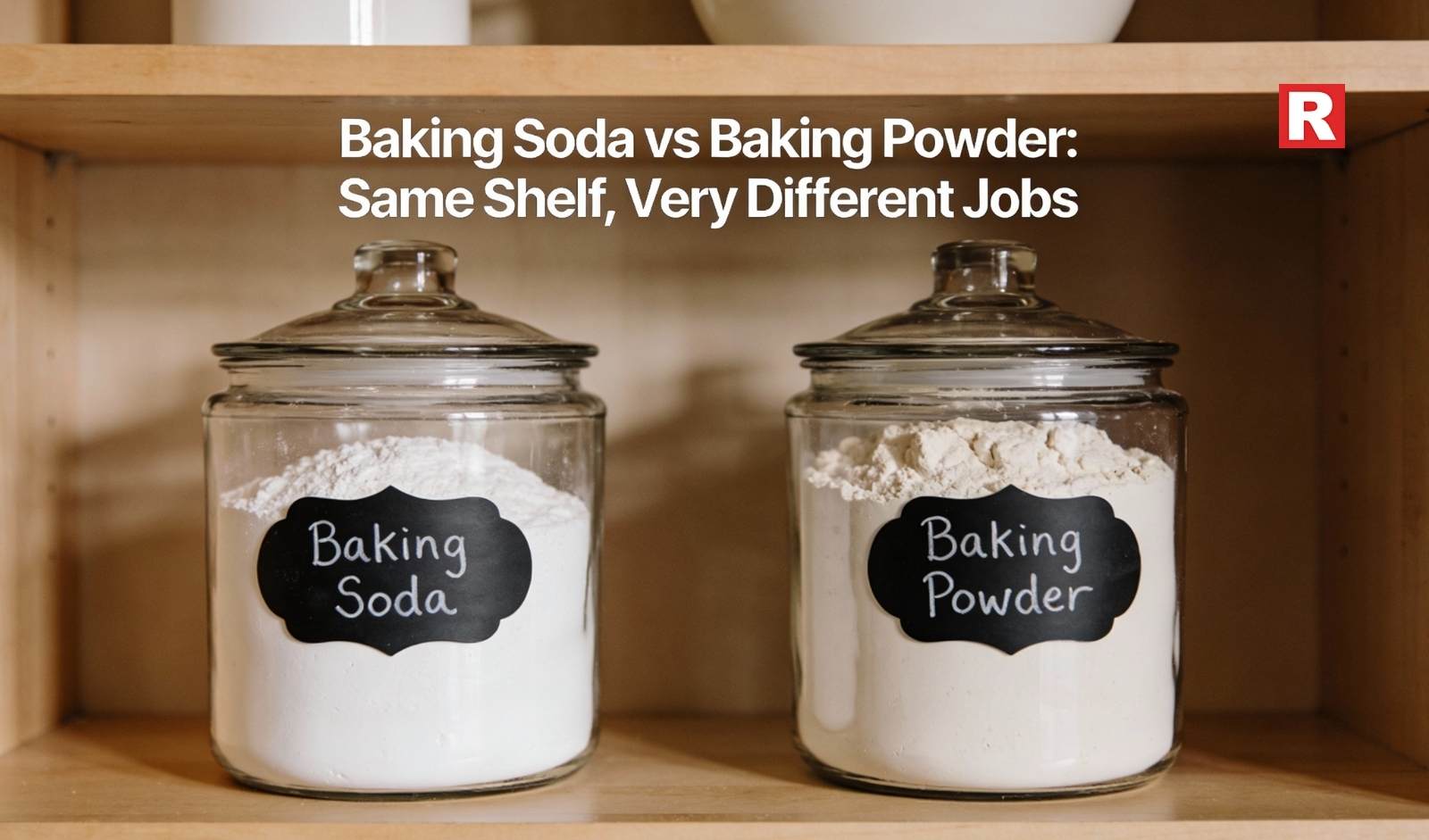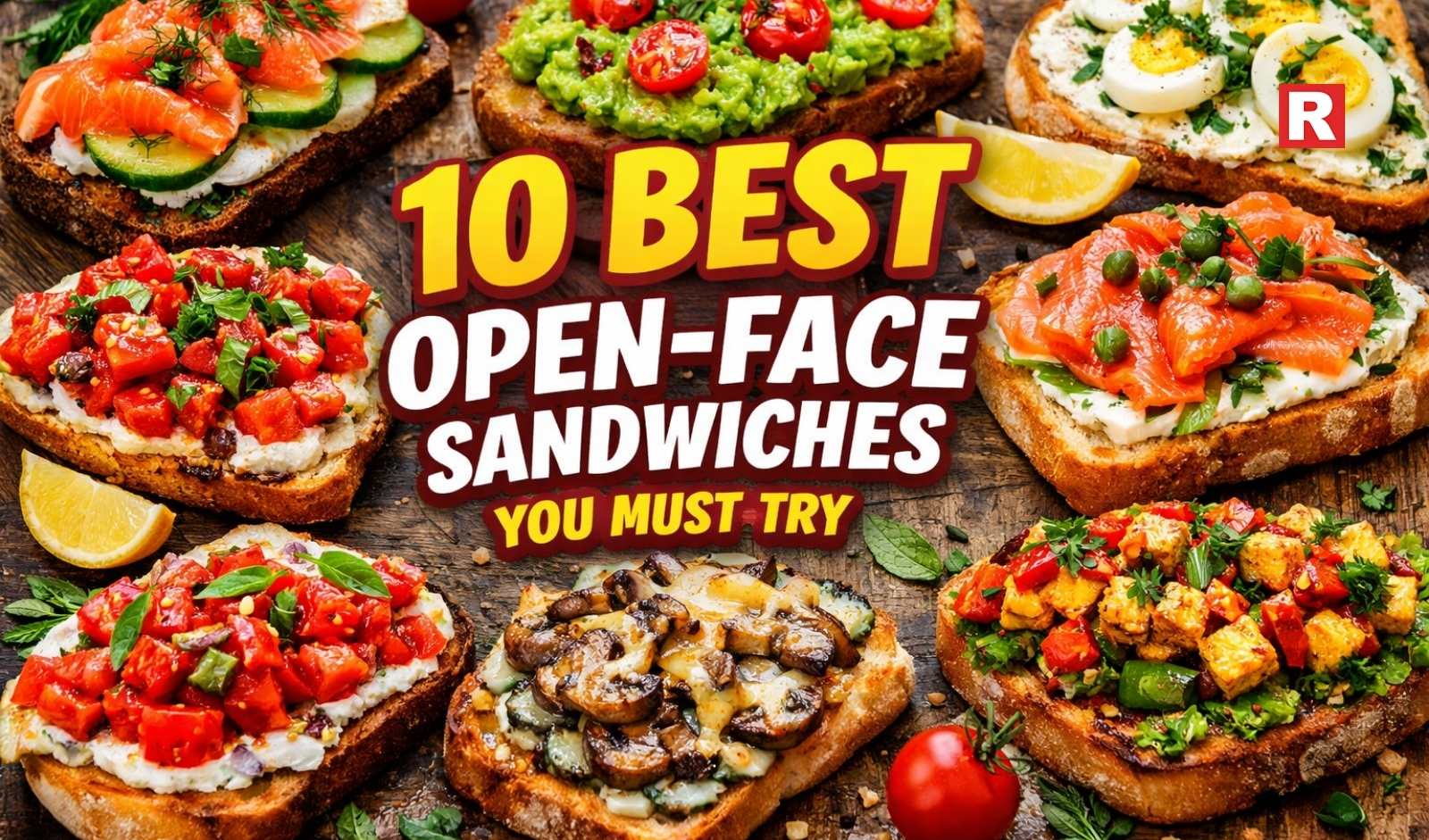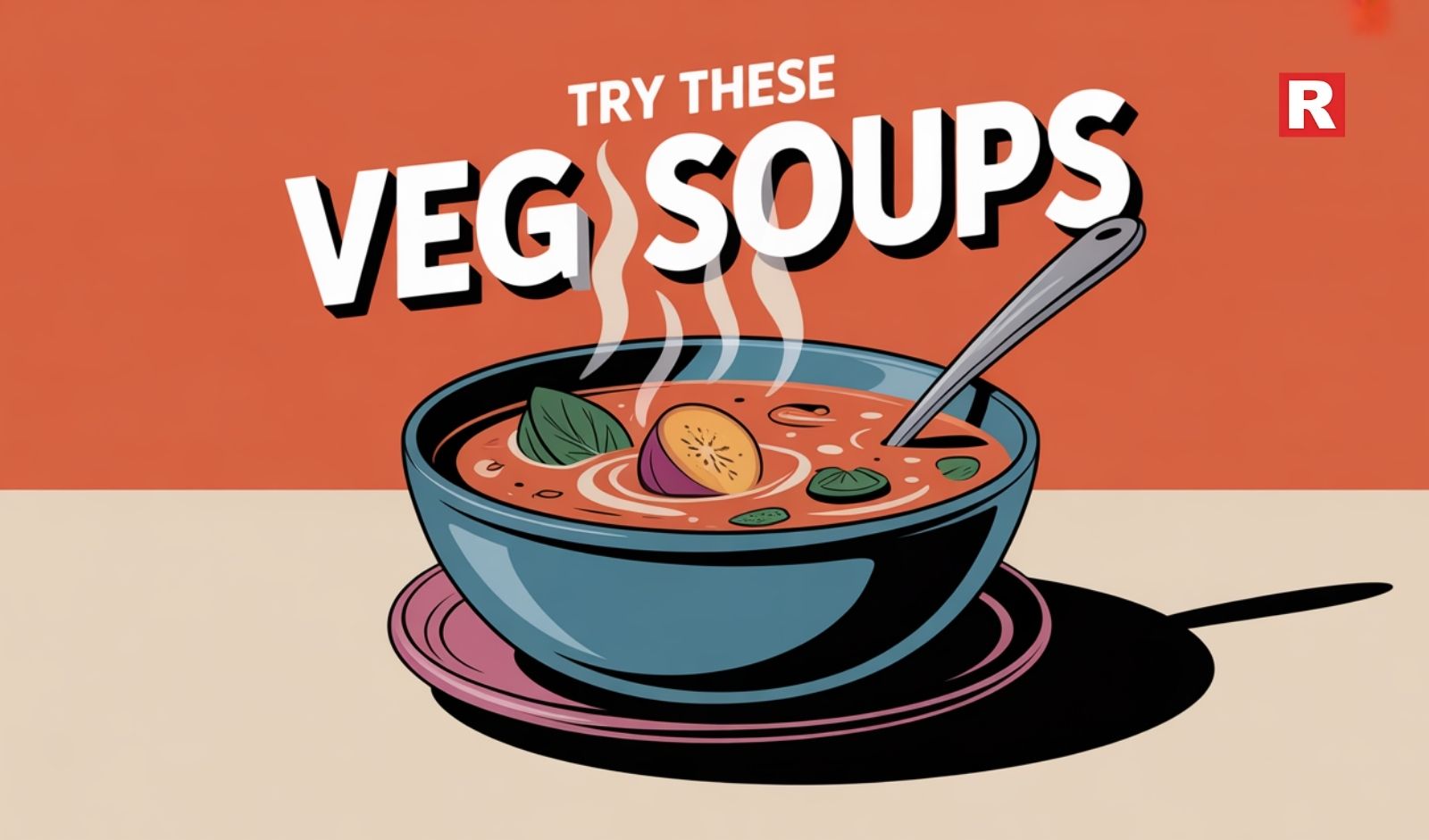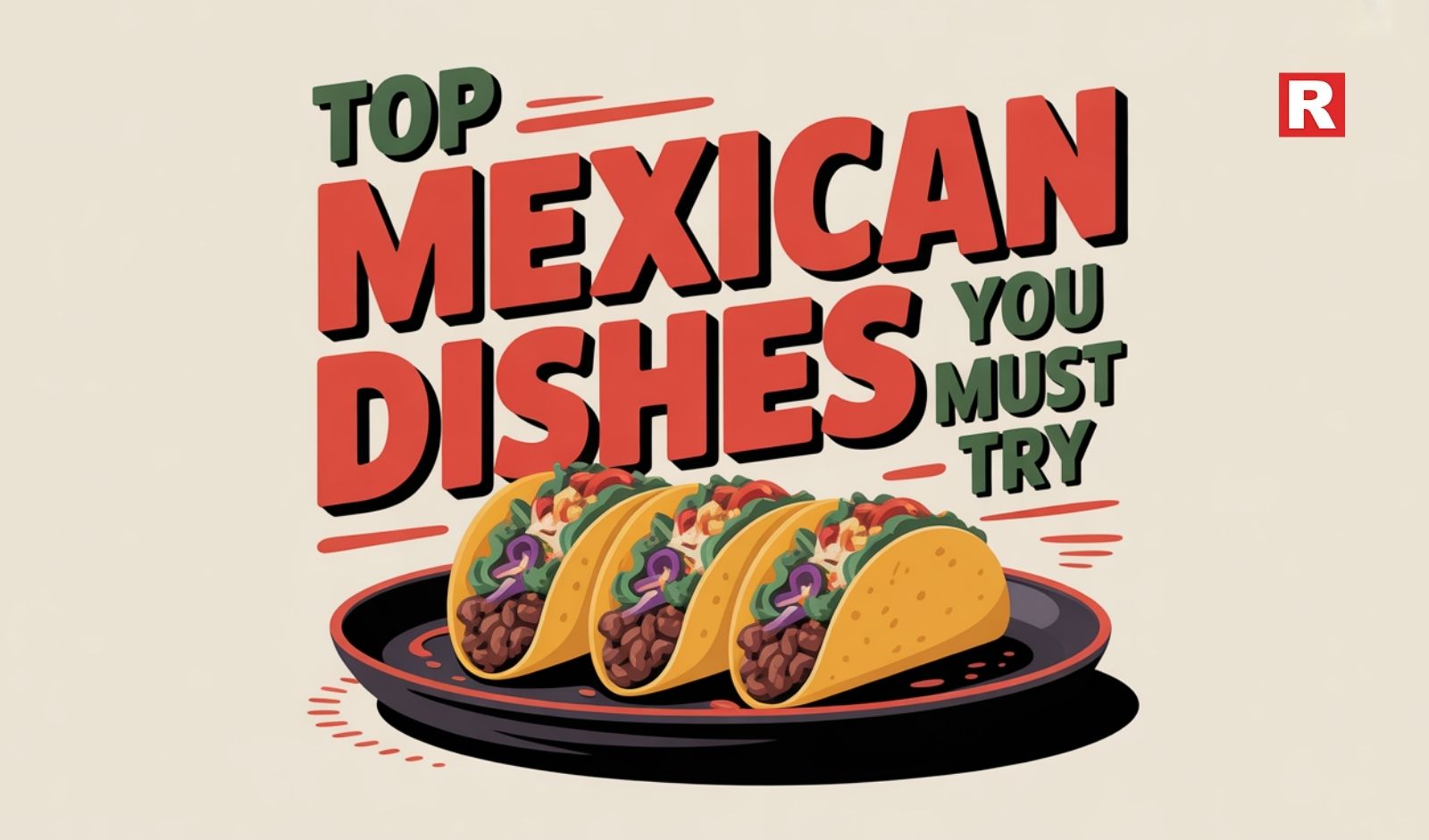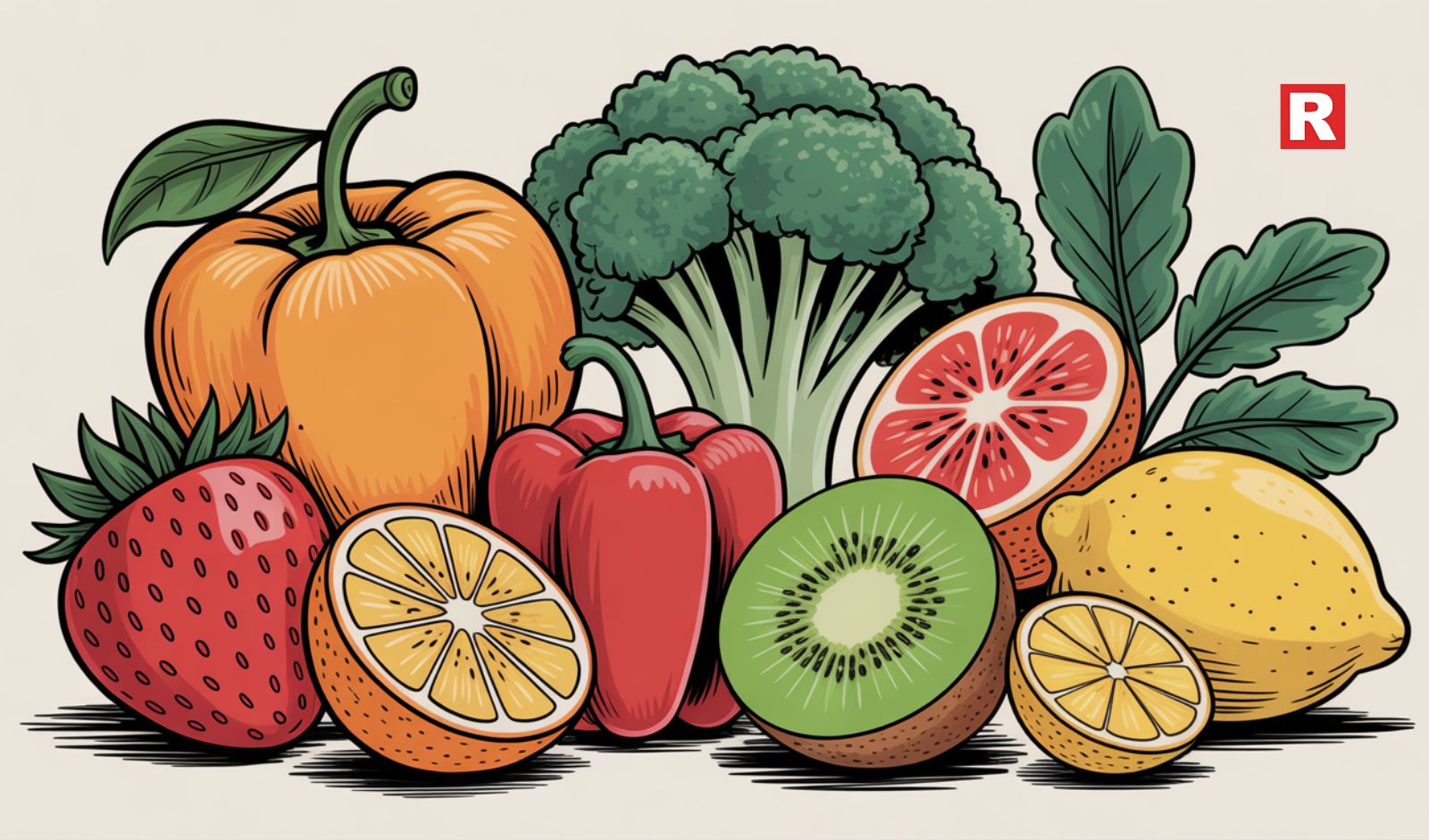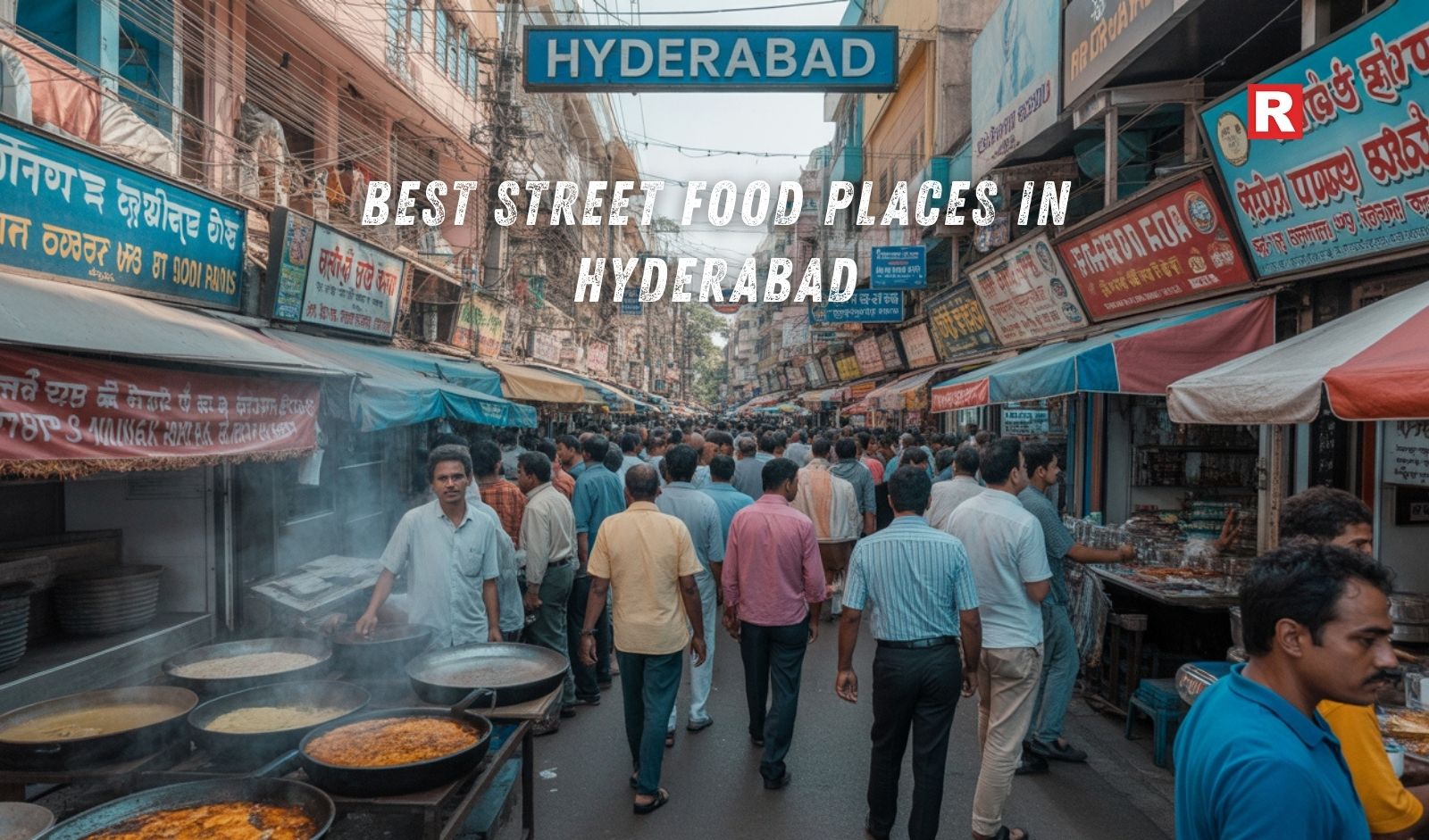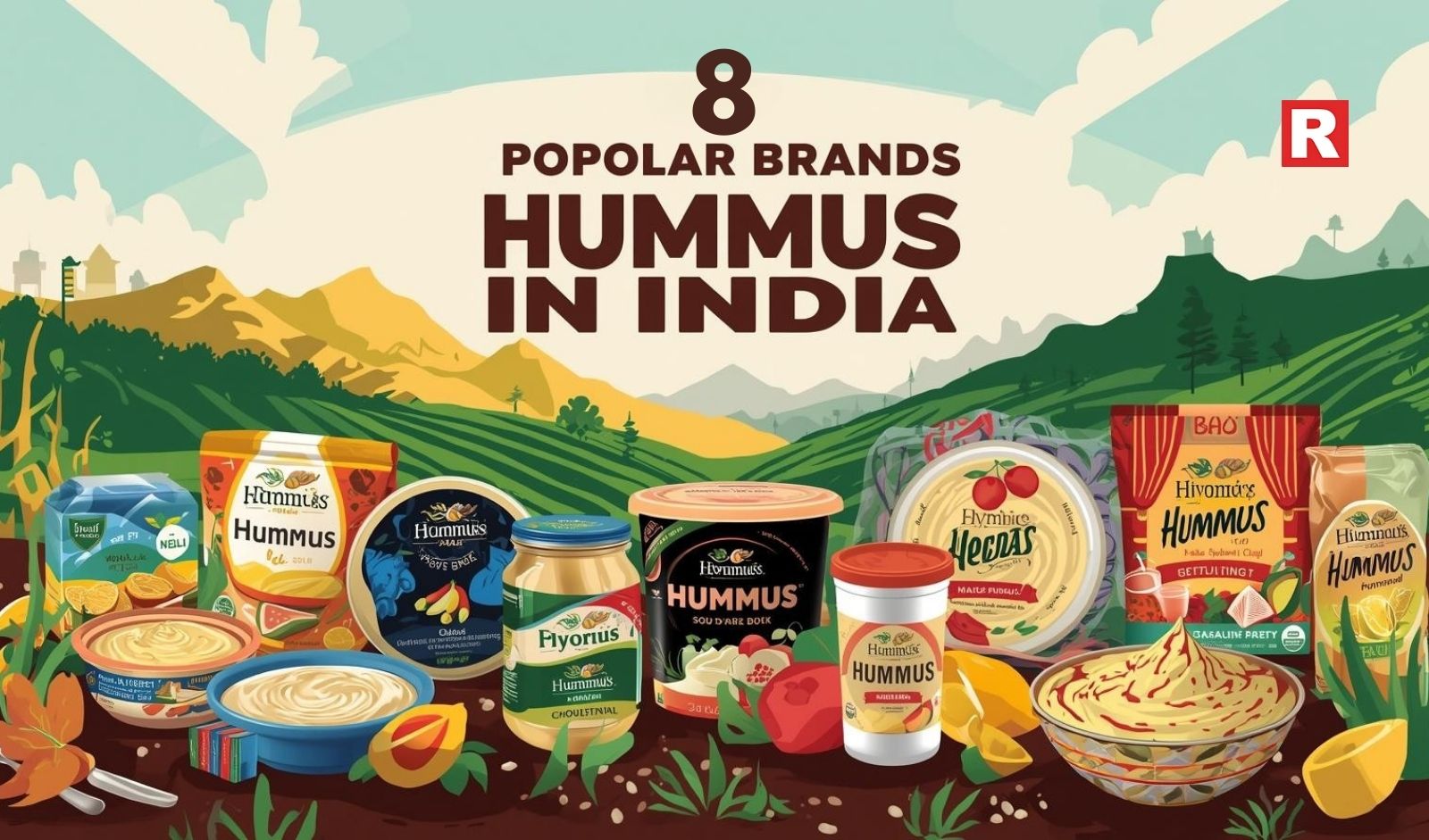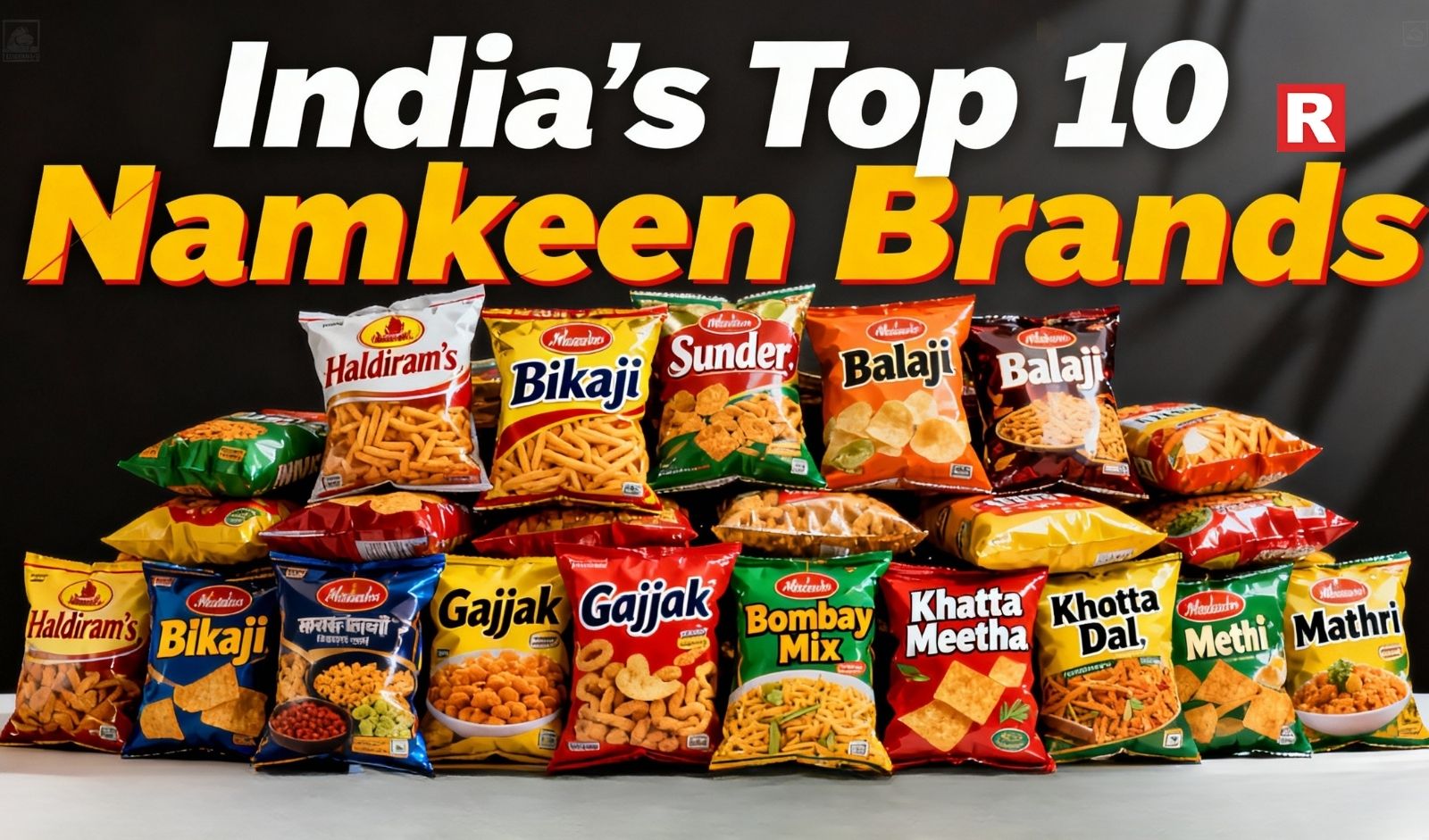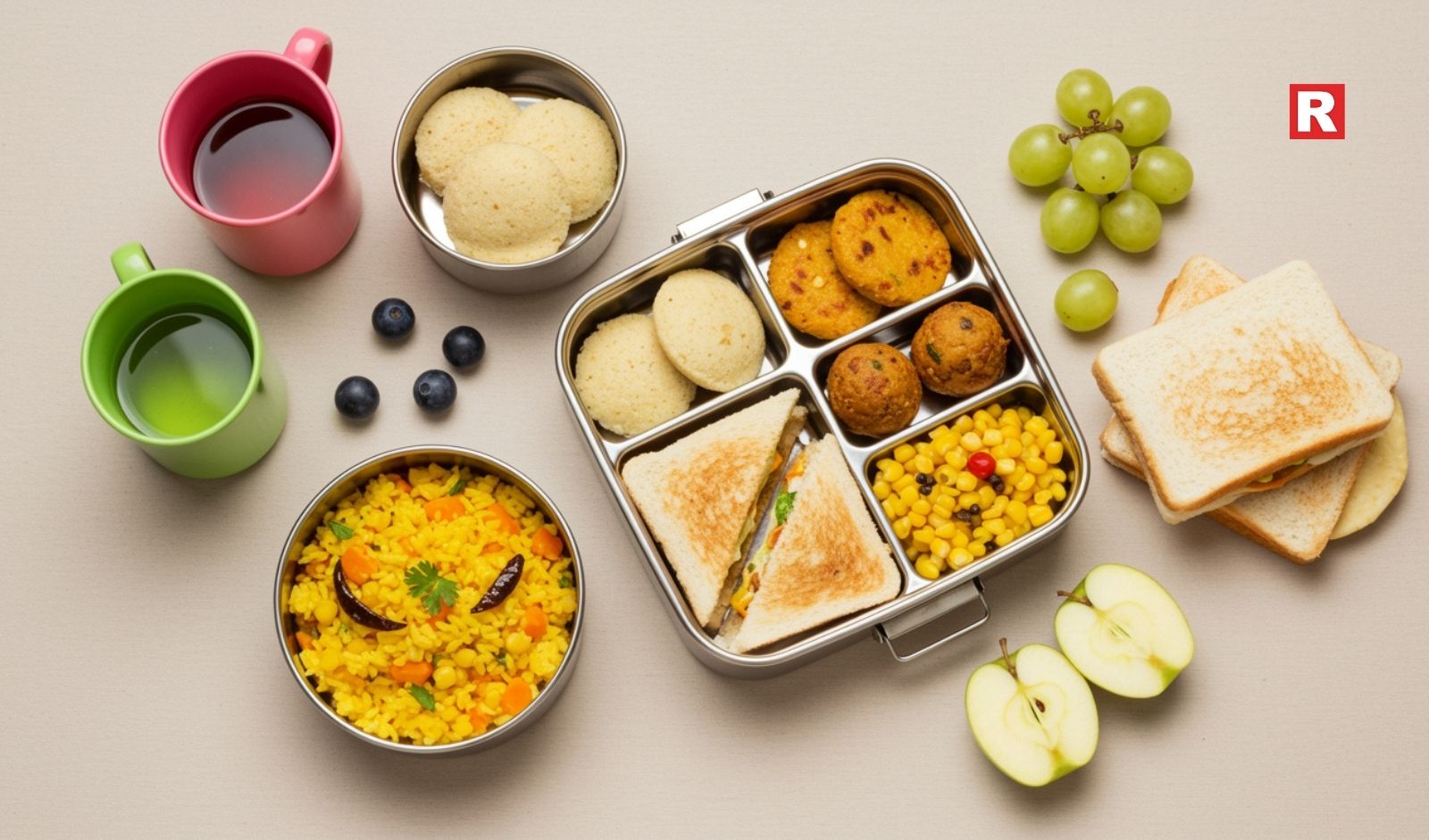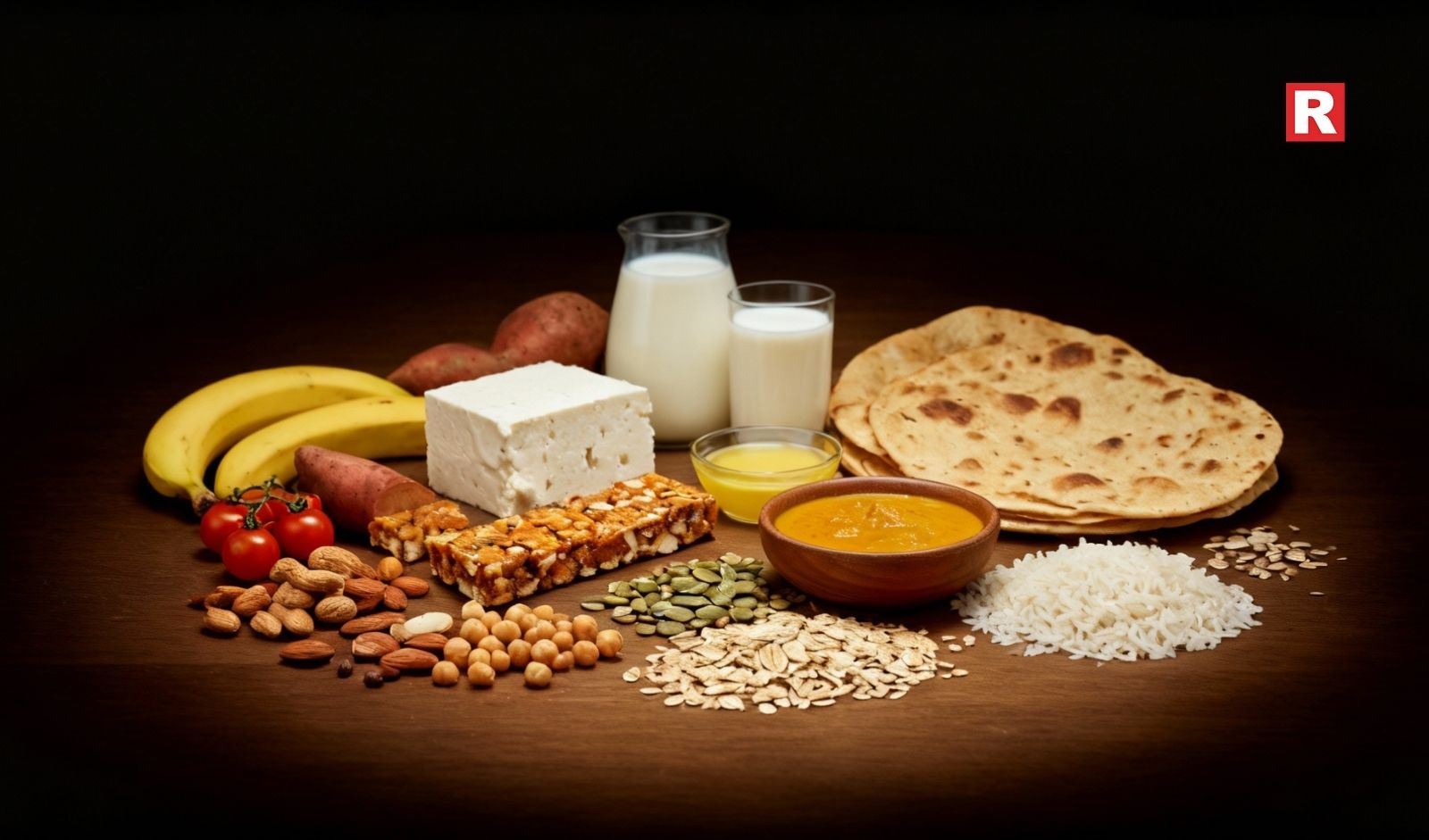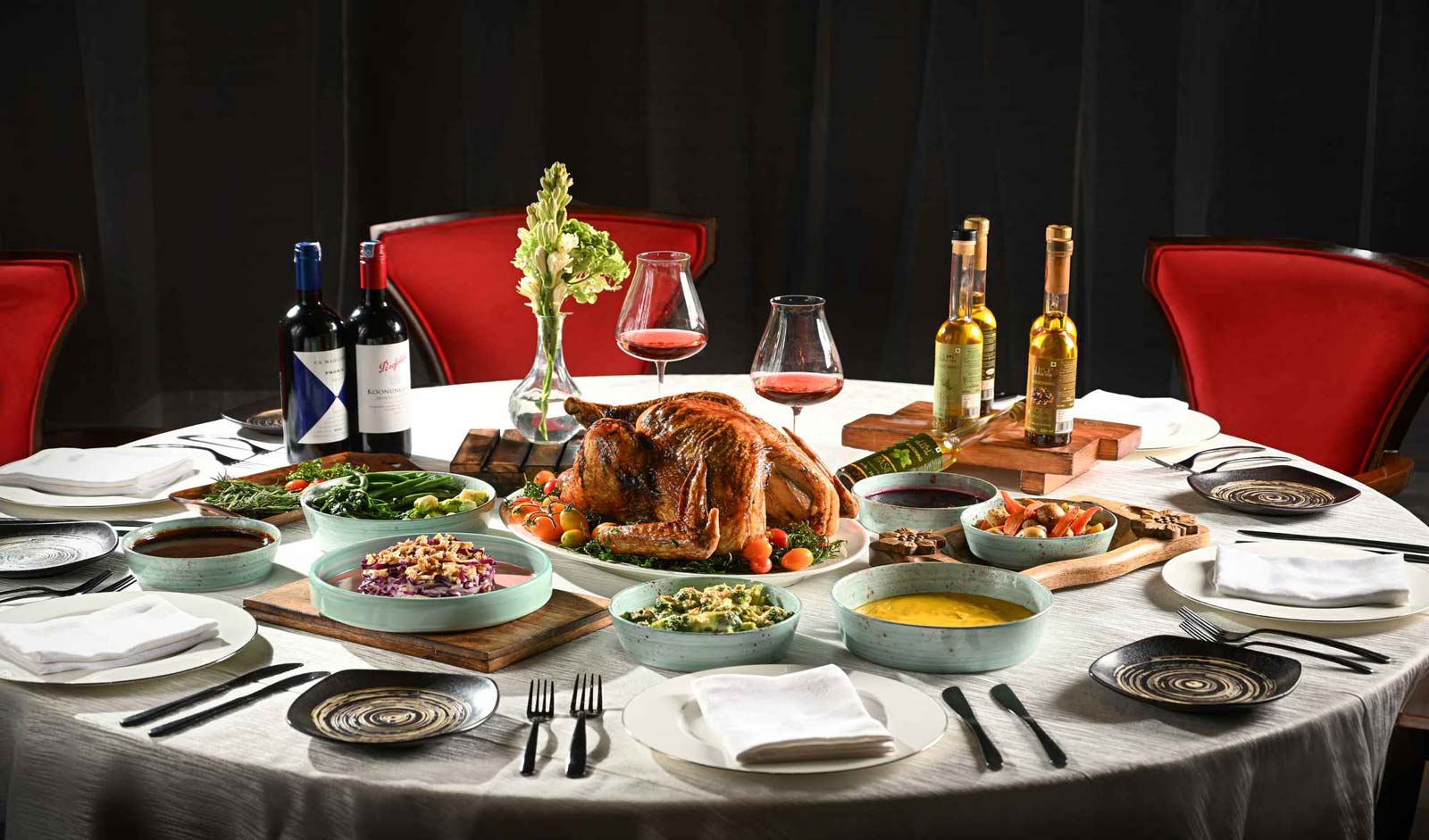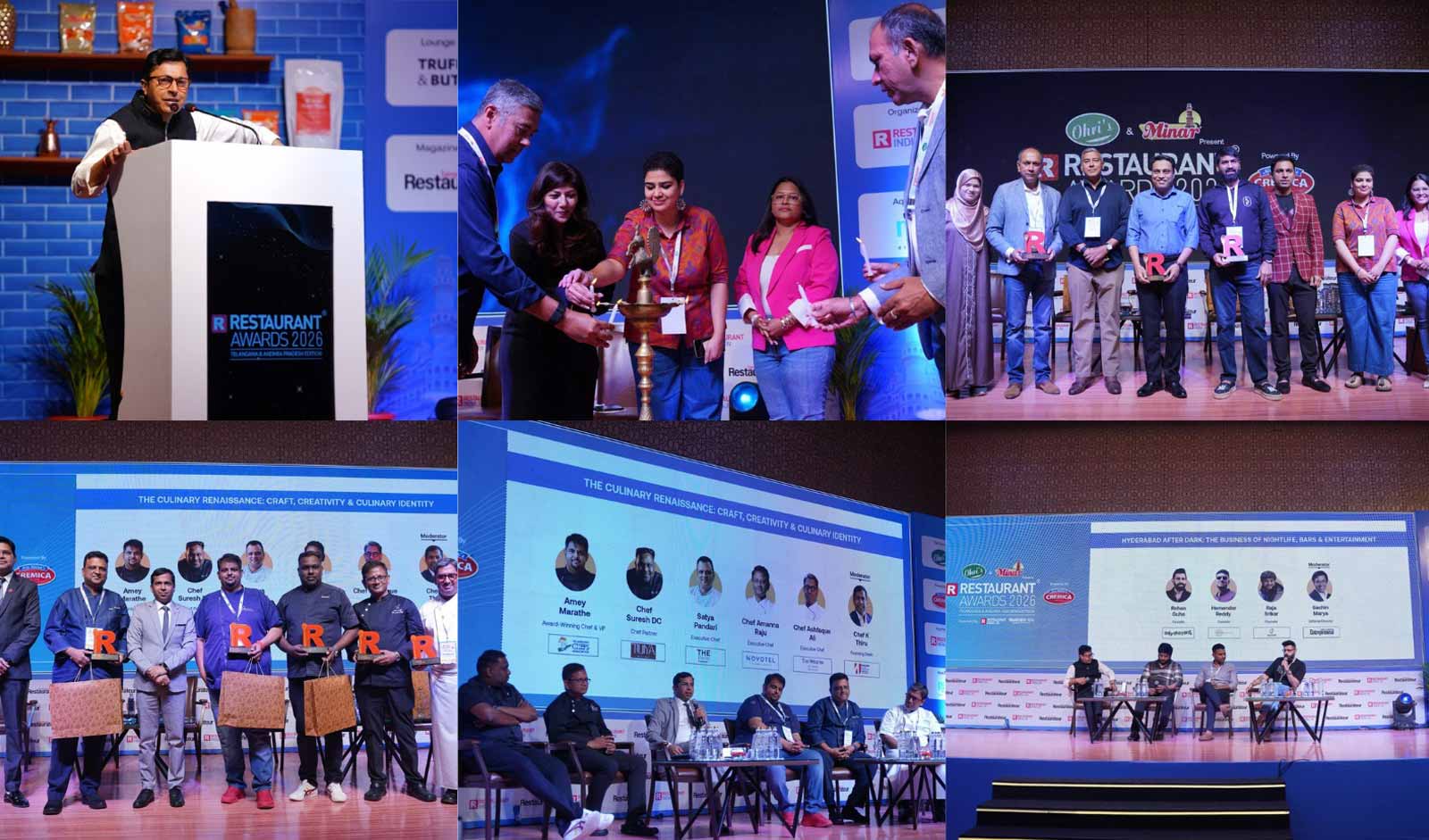
In India, home-cooked food is not just considered healthy but it also gives contentment. For a fair reason, in most households, lunches have a thali-style concept, which is an assortment of vegetables, lentils, rice, yogurt, pickles, bread, and pudding served on a big steel plate or a banana leaf. For decades, this thali-style meal has been an inherent part of the dietary culture in most regions of India for it provides a wholesome meal to an individual.
Food in a tiffin
Gradually, with evolving lifestyles, this concept gave rise to a new pattern of eating. Meals were now available in tiffins or lunchboxes. Soon, it became prevalent among the working population, who lived away from their home and often craved for home-cooked food. Busy work schedules and limited time left most office-goers with little or no time to prepare a full meal before they leave for office. Thereby, the concept of tiffin/lunch delivery services took off, with a growing number of home chefs taking up the foodservice industry in India.
How did times change?
Tiffin culture became popular all over India. However, the core concept of providing nutritious and wholesome meals remained, food served on thali was now being packed in tiffin boxes. The separate compartments in tiffin or a lunchbox resemble the katoris (bowls) in a thali-style lunch.
Certainly, it exemplifies that the concept of foodservice started to grow and in no time emerged as a full-grown industry presently known as the foodservices industry. With time, the method of food production and consumption has evolved phenomenally. The key reason for the evolution of corporate foodservices is the paradigm shift in meal consumption trends of modern-day corporates. The consumer’s eating pattern in an on-the-go world led employees to choose foodservices that are healthy and conveniently available.
India’s foodservice industry
Alongside, we can't turn a blind to the fact that the corporate food services industry has been primarily dominated by unorganized players, which holds more than 80% of the market share and cater without adequate food safety standards. This gave rise to concerns about the quality of the food served in offices and others places. Here is when several organized counterparts came into the picture, striving to transform the country’s unorganized food service market. Moreover, a recent report also highlights that India’s food service industry is rapidly growing and is expected to touch the Rs. 6 trillion mark by 2023. Such factors have led to the emergence of a number of players in the food service industry who are providing nutritious solutions, especially aimed at employees.
Let’s order a box of meal
India is a country where cuisines and tastes are constantly changing as we cross from one border to another. Also, the growing IT hubs in Indian cities bring a mix of people from different communities. This is why the demand for customized food mushroomed in the country. Today, most people look for options that not just fill them up but is packed with proteins and other nutrients necessary for good health and improved immunity. Moreover, the outbreak of the ongoing COVID-19 pandemic has left a large chunk of food lovers wary of what they eat and from where. Therefore, hygiene and food safety have become the top concerns for people. Especially, with offices resuming operations, employees are now avoiding eating from local vendors or from office canteens. Thus, the concept of box meals has become their new favourite. The pandemic has acted as a catalyst in driving a sudden surge in demand for box meals post lockdown. These meals are now slowly replacing the buffet served in office cafeterias, owing to the current situation.
It is also important that food service startups take cognizance of the fact that consumer-purchasing preferences for food have changed over time. People have become conscious about their intake of calories and the quality of the food they consume. The operators in the food service market are realizing the same and providing healthy food in offices. Thus, for several players in the food service industry, these have become major check-points.
Food and tech
Further, technology is playing a pivotal role in bringing rapid changes in the food service industry. From checking the quality of food products and preparation of food in centralized kitchens to tracking food packages and contactless delivery, technology has been a game-changer. Leveraging technological solutions, a line of players have become the front runners to capture the country’s large food service industry. They are offering customized menus, combo meals, food platters boxed for customers as per their choice, thereby enhancing their dining experience at home or office with a newer outlook.
Thus, the food service start-ups have been proactively embracing these changes and transforming this into a positive evolution of the corporate food industry.

Dahi and yogurt look almost the same at first glance. Both are made from milk. Both are thick, white, and slightly sour in taste. In many Indian homes, the two words are used in the same way. Yet, they are not identical foods. Dahi and yogurt belong to different food cultures. They are prepared using different methods. Their taste, texture, and impact on the body also vary. Dahi has been a part of Indian kitchens for generations. It is made at home using natural fermentation. The process depends on climate and local conditions. This makes dahi feel familiar and comforting to Indian digestion. It is often eaten with daily meals and traditional dishes.
Yogurt arrived in India much later. It follows a more controlled process. It uses selected bacterial cultures. The taste is sharper and the texture is more uniform. Yogurt fits well into modern eating habits. Both dahi and yogurt are healthy. But they serve different purposes. Understanding this difference helps people choose better. When food choices are informed, daily eating becomes more balanced and thoughtful.
Same Looking, Not the Same
At first glance, dahi and yogurt seem identical. They are both fermented milk products. They are eaten cold. They are linked with digestion and gut health. Yet their journey from milk to spoon is very different. The key difference lies in how they are fermented, what bacteria are involved, and how the body responds to them. This difference is subtle but important, especially for Indian diets.
What Is Dahi?
Dahi is India’s traditional curd. It is made at home in almost every Indian household. Warm milk is mixed with a spoon of old dahi. This mixture is kept aside for a few hours. The milk slowly thickens. Natural fermentation takes place. No machines are involved. The bacteria in dahi are local. They come from the environment. They change with seasons. Summer dahi tastes different from winter dahi. The texture also varies. Some days it is thick. Some days it is slightly watery. This variation is natural. Dahi holds cultural value in India. It is used in daily meals. It is offered in religious rituals. It is considered cooling for the body. Ayurveda describes dahi as nourishing and grounding when eaten correctly. Dahi is not processed. It is fresh. It is alive with natural microbes.
Read more: White Vinegar Uses and Cooking Hacks: Simple Kitchen Secrets
Baking Soda vs Baking Powder: Same Shelf, Very Different Jobs
What Is Yogurt?
Yogurt comes from Western and Middle Eastern food traditions. It is made using specific bacterial strains. These bacteria are selected in labs. They are added to pasteurised milk. The milk is fermented under controlled temperatures. This process creates uniform results. Every cup of yogurt tastes the same. The texture stays consistent. The sourness is sharper. Commercial yogurt is usually thicker than dahi. Yogurt is commonly sold in packaged form. It is popular in breakfast bowls, smoothies, and desserts. Greek yogurt is a popular variant. It is strained to remove whey. This makes it high in protein and thick in texture. Yogurt is modern. Dahi is traditional.
The Fermentation Process: The Real Difference
Fermentation is where the real difference begins.
Dahi relies on wild and local bacteria. These bacteria include many strains. The exact mix changes based on climate, milk quality, and even the vessel used. This makes dahi more adaptable to Indian digestion.
Yogurt uses two main bacterial strains. These are added in fixed amounts. The temperature is controlled. The environment is sterile. This ensures safety and consistency.
Dahi fermentation is slow and natural. Yogurt fermentation is precise and industrial. This difference affects digestion, taste, and gut response.
Taste, Texture, and Consistency
Dahi has a soft taste. It is mildly sour. The flavour is gentle. It blends well with spices. It works in both sweet and savoury dishes. The texture can be creamy or loose. Yogurt tastes sharper. The sourness is stronger. The texture is thicker and smoother. It feels heavier on the tongue. Because of this, yogurt works better in cold dishes. Dahi works better in Indian cooking.
Probiotics and Health Benefits
Both dahi and yogurt contain probiotics. These are good bacteria that support gut health. They help digestion. They support immunity.
Dahi contains diverse bacteria. These bacteria are familiar to Indian bodies. Many people find dahi easier to digest. It has a cooling effect. It helps balance body heat, especially in summer.
Yogurt contains a known quantity of probiotics. This makes it reliable for people tracking nutrition. Greek yogurt offers high protein. This is useful for fitness-focused diets.
Dahi supports daily digestion. Yogurt supports targeted nutrition.
Know more: High Protein Indian Meals You Should Try
Is Dahi Healthier Than Yogurt?
There is no single answer. Health depends on the person.
Dahi is natural. It is fresh. It suits Indian meals and climates. It works well for people who eat traditional food.
Yogurt is consistent. It is convenient. It suits modern lifestyles and busy schedules. It fits global diets.
Neither is better for everyone. The choice depends on eating habits, digestion, and lifestyle.
How Indians Use Dahi vs Yogurt
Dahi is deeply rooted in Indian food.
- It is used in curd rice.
- It thickens kadhi.
- It balances spicy meals.
- It softens meat in marinades.
- It becomes lassi and chaas.
Dahi reacts well to heat when used carefully. It blends with spices and herbs. It forms the base of many regional dishes.
Yogurt is used differently.
- It goes into smoothies.
- It tops breakfast bowls.
- It thickens dips.
- It appears in desserts.
Yogurt is rarely cooked in Indian kitchens. Heating can change its texture.
Also check: 5 Ways to Use Garden Cress Seeds (Halim) for Stronger Hair and Bones
7 Desi Alternatives to Oatmeal for Weight Loss
Which One Should You Choose?
Dahi and yogurt look alike, but they are not the same. Both are made from milk, yet they serve different needs. In Indian homes, dahi is a daily staple. It pairs well with regular meals. It supports digestion. It feels light on the stomach. Many people find it easier to digest, especially in warm weather. Dahi also balances spices and heavy food. Yogurt suits a different lifestyle. It is thicker. It has a sharper taste. It offers more protein, especially in strained forms. This makes it popular among fitness-focused eaters and busy professionals. Yogurt works well in smoothies and quick meals. Both foods have value. One is traditional and local. The other is modern and convenient. Choosing between them depends on the body and the diet. Food choices are not only about flavour. They are about comfort, habit, and health. When people understand what they eat, daily meals become more mindful and nourishing.

Eating healthy does not mean eating less. It means eating smart. Many people believe low-calorie food is boring or leaves you hungry. That is not true, especially in an Indian kitchen. India already has many foods that are naturally low in calories, high in volume, and full of nutrition. Low-calorie eating is not about dieting or skipping meals. It is about choosing foods that keep you full, light, and energetic. Calories are units of energy. When the body consumes more calories than it uses, the excess gets stored as fat. Over time, this leads to weight gain and lifestyle issues. Low-calorie foods help because they allow you to eat larger portions with fewer calories. This supports portion control without hunger. It also improves digestion and daily energy levels. For Indian households, this approach works well. Traditional Indian meals already focus on vegetables, lentils, curd, and seasonal fruits. The key is balance and cooking style. This article explores the best low-calorie foods you can enjoy guilt-free, without changing your food culture or taste preferences.
What Makes a Food Low in Calories but High in Value
Not all low-calorie foods are equal. Some foods are low in calories but do not fill you up. The best low-calorie foods share three key qualities.
- High water content: Foods with more water add volume to meals. They make you feel full faster.
- High fibre: Fibre slows digestion. It keeps you full for longer and supports gut health.
- Good protein: Protein helps control hunger and supports muscle health.
Foods that combine these factors are ideal for guilt-free eating.
Top Low-Calorie Foods to Enjoy Guilt-Free
1. Cucumber

Calories: Around 16 calories per 100 grams
Cucumber is made up mostly of water. This makes it light, cooling, and refreshing. It fills the stomach without adding many calories. Because of its high water content, it helps reduce bloating and keeps the body hydrated, especially in warm weather. In Indian households, cucumber is a regular part of daily meals. It is commonly eaten as a fresh salad, mixed into raita, or added to simple chaat. Many people enjoy it as a mid-day snack with a pinch of salt and a squeeze of lemon. It is best eaten in the afternoon or early evening for a light, clean feeling.
Read more: High Protein Indian Meals You Should Try
Try These Veg Soups in These Freezing Winters
2. Bottle Gourd (Lauki)

Calories: Around 14 calories per 100 grams
Bottle gourd is rich in water and fibre. It is light on the stomach and easy to digest. It helps people feel full without feeling heavy or uncomfortable. This makes it suitable for regular meals. In Indian homes, bottle gourd is commonly cooked as a simple sabzi. It is also added to dal or prepared as a light soup. When cooked with very little oil and mild spices, it becomes an ideal low-calorie food. It supports balanced eating without compromising taste. Bottle gourd works well for both lunch and dinner, especially for those who prefer light and comforting meals.
3. Spinach (Palak)

Calories: Around 23 calories per 100 grams
Spinach is rich in iron, fibre, and antioxidants. It supports digestion and overall strength. It adds volume to meals without increasing calorie intake. This helps people feel full for longer. In Indian kitchens, spinach is a commonly used vegetable. It is cooked as sabzi, mixed into dal, used in paratha fillings, or added to soups. When spinach is lightly cooked, it retains most of its nutrients and stays easy to digest. Overcooking is usually avoided to keep it light. Spinach works best as part of lunch, as it provides steady energy without feeling heavy on the stomach.
4. Cauliflower (Gobi)

Calories: Around 25 calories per 100 grams
Cauliflower is high in fibre and low in carbohydrates. It helps control hunger and keeps the stomach full for a longer time. This makes it useful for people managing their weight. Cauliflower is easy to cook and fits well into everyday Indian meals. It is often prepared as a dry sabzi, added to soups, or lightly stir-fried with basic spices. Using less oil helps keep the dish light and low in calories. Deep frying is usually avoided. Cauliflower works well for both lunch and dinner, especially when paired with simple dals or rotis.
5. Papaya

Calories: Around 43 calories per 100 grams
Papaya contains natural enzymes that help break down food and support digestion. It is light on the stomach and easy to absorb. The fruit is filling and has a mild natural sweetness. This makes it a good option for those managing their weight without avoiding fruits. Papaya is commonly eaten in the morning or as a light snack between meals. It provides energy without heaviness. Many people include it in their daily routine for better digestion. Papaya works best when eaten fresh and plain. Morning is considered the ideal time to enjoy this fruit for a clean and balanced start.
Know more: Power-Packed Mornings: 8 Protein-Rich Vegetarian Indian Breakfast Idea
6. Watermelon

Calories: Around 30 calories per 100 grams
Watermelon has a very high water content. This makes it refreshing and suitable for hot Indian weather. It helps keep the body cool and hydrated. The fruit is naturally sweet and satisfies sugar cravings without adding many calories. This makes it a better choice than packaged sweets or desserts. Portion control is still necessary, as eating too much can cause discomfort. Watermelon is often eaten fresh and plain. It works well as a light snack between meals. Many people prefer it during mid-morning or in the evening, when the body needs hydration and a quick energy boost.
7. Sprouts

Calories: Around 30–40 calories per 100 grams
Sprouts are rich in protein and fibre. They help the body feel full for a longer time. This reduces frequent hunger and supports muscle health. Sprouts are light and easy to digest when prepared properly. In Indian homes, they are commonly eaten as fresh salad, simple chaat, or lightly sautéed with mild spices. They are a good option for those looking for low-calorie protein in daily meals. Sprouts fit well into a balanced diet without adding heaviness. They are best eaten for breakfast or lunch, when the body needs steady energy and nourishment.
8. Boiled Eggs

Calories: Around 70 calories per egg
Eggs are a strong source of protein. Protein helps control appetite and reduces the urge to overeat. It also supports a healthy metabolism and muscle repair. Boiled eggs are simple to prepare and do not require oil or heavy cooking. This keeps them light and nutritious. They are easy to carry and fit well into busy routines. Many people include boiled eggs in their daily meals for steady energy. They work well as a filling breakfast or a light snack. Boiled eggs are also suitable after workouts, as they help the body recover and stay satisfied.
9. Curd and Buttermilk

Calories: Around 60 calories per 100 grams (curd)
Curd and buttermilk support gut health and improve digestion. They contain natural probiotics that help maintain a healthy stomach. Both are cooling in nature and suitable for daily meals. They help the body feel full without heaviness. In Indian homes, plain curd and unsalted buttermilk are commonly consumed. It is important to avoid added sugar, cream, or flavouring, as these increase calories. When taken in their natural form, they remain light and nourishing. Curd and buttermilk work best during lunch or in the afternoon. They help balance the meal and support comfortable digestion throughout the day.
10. Clear Vegetable Soup

Calories: Around 30–50 calories per bowl
Clear vegetable soups are low in calories and high in water content. They help control portion size and reduce the tendency to overeat during main meals. Soups are light, easy to digest, and provide warmth and comfort. In Indian homes, simple vegetable soups with seasonal vegetables are commonly prepared. They can be served as starters before lunch or dinner, or as a light meal on their own. Minimal use of oil and spices keeps them healthy and low in calories. Vegetable soups are best eaten in the evening or at dinner, supporting digestion and a feeling of fullness without heaviness.
Low-Calorie Indian Snacks That Actually Work
Many Indian snacks can be low in calories if prepared right.
- Roasted chana is crunchy and filling.
- Makhana roasted with little oil is light and satisfying.
- Vegetable chaat without heavy chutneys is refreshing.
- Steamed snacks like idli in moderation work well.
The key is minimal oil and controlled portions.
Also check: 5 Ways to Use Garden Cress Seeds (Halim) for Stronger Hair and Bones
7 Desi Alternatives to Oatmeal for Weight Loss
8 Famous Vegetarian Dishes of Uttar Pradesh and Their Timeless Legacy
How to Build a Guilt-Free Plate
A simple plate rule works well.
- Half the plate should be vegetables.
- One portion should be protein like dal, eggs, or curd.
- A small portion can be carbs like rice or roti.
- Oil should be minimal.
This structure supports fullness without excess calories.
Final Thought!
Low-calorie eating is not just a temporary trend. It is a simple and sustainable habit that can be followed every day. Indian kitchens naturally provide many low-calorie foods that are affordable, tasty, and healthy. Vegetables, fruits, dals, curd, and sprouts are all examples of foods that fill the stomach without adding excess calories. Eating well does not mean eating less or skipping meals. It means choosing the right foods and balancing meals carefully. When meals are light, filling, and nourishing, the body feels energetic and comfortable. Over time, this approach helps maintain a healthy weight and improves overall well-being. Consistency is more important than being perfect every day. Making small, mindful changes in daily eating habits creates lasting results. Simple choices like adding more vegetables, eating fruits at the right time, and reducing oil can make a big difference in the long run.

Fermented food is not a new trend. It is one of the oldest ways humans have prepared and preserved food. Long before refrigerators and packaged foods existed, fermentation helped people store food safely and improve its taste and nutrition. Today, fermented foods are making a strong comeback, especially among people focused on gut health and natural nutrition.
From homemade curd in Indian kitchens to global favourites like kimchi and kombucha, fermented foods are everywhere. But what exactly are they, and are they really good for your health? Let us understand this in a simple and practical way.
What Is Fermented Food?
Fermented food is food that has gone through a natural process where bacteria, yeast, or microorganisms break down sugars and starches. This process changes the food’s structure, taste, and nutritional value. During fermentation, these “good bacteria” grow and multiply. They help preserve the food and make it easier to digest. This is why fermented foods often taste tangy, sour, or slightly sharp.
Common examples include curd, buttermilk, idli batter, dosa batter, pickles made the traditional way, and kanji. Globally, foods like kimchi, sauerkraut, miso, kefir, and sourdough bread are also fermented. In simple words, fermented foods are foods that are alive with beneficial microbes.
How Does Fermentation Work?
Fermentation happens when food is kept in a controlled environment. Natural bacteria or yeast feed on the sugars present in the food. As they grow, they produce acids, gases, or alcohol. These by-products protect the food from harmful bacteria.
For example, when milk turns into curd, bacteria convert lactose into lactic acid. This thickens the milk and gives curd its sour taste. The same idea applies to vegetables, grains, and even drinks. This natural process not only preserves food but also improves flavour and texture. It also increases the availability of nutrients.
Read more: What is Kimchi? Top Veg Kimchi You Can Try at Home
Fermented Foods in Indian Kitchens
India has a long and deeply rooted relationship with fermented foods. Long before nutrition labels and diet trends, fermentation was part of daily cooking. It happened naturally, guided by climate, tradition, and experience. Curd and buttermilk remain everyday essentials in Indian homes. They are cooling, easy to digest, and naturally nourishing. Idli and dosa batter is left to ferment overnight. This process makes the batter light, soft, and easier on the stomach. In North India, kanji is a seasonal favourite during winters. Made from black carrots or rice, it is tangy, warming, and refreshing. Traditional pickles prepared with salt and oil also ferment slowly over time, developing deep flavour and long shelf life. These foods were never designed as health products. They evolved through generations to support digestion and balance the body with the seasons.
Top Fermented foods in Indian diets:
Curd and buttermilk for daily meals
Fermented idli and dosa batter
Seasonal kanji during winters
Naturally fermented pickles
This is why fermented foods feel familiar, comforting, and deeply Indian.
Popular Fermented Foods Around the World
Fermentation is a shared food tradition across the world. Every culture has found its own way to preserve food and improve its taste using natural processes. The ingredients may change, but the method stays familiar. In Korea, kimchi is prepared by fermenting vegetables with spices. It is bold in flavour and deeply rooted in daily meals. Europe has sauerkraut, made by fermenting cabbage. It is simple, sharp, and long-lasting. Japan uses fermented soybeans to create miso. This paste adds depth and warmth to soups and sauces. Kombucha, a fermented tea drink, is now popular across countries for its refreshing taste. Sourdough bread depends on slow fermentation to develop its chewy texture and mild sour note. Each culture treats fermentation differently, yet the purpose remains the same. It enhances food, extends shelf life, and supports digestion.
Popular fermented foods worldwide:
Kimchi from Korea
Sauerkraut from Europe
Miso from Japan
Kombucha tea
Sourdough bread
Fermentation connects kitchens across borders.
Know more: 12 Delicious High-Protein Foods to Eat Daily for a Healthier You
White Vinegar Uses and Cooking Hacks: Simple Kitchen Secrets
Why Are Fermented Foods Considered Healthy?
The biggest reason fermented foods are praised is because of probiotics. Probiotics are live beneficial bacteria that support gut health. A healthy gut helps the body digest food properly. It also supports immunity, nutrient absorption, and even mental well-being. Since fermented foods naturally contain probiotics, they help balance the gut microbiome.
Fermentation also breaks down complex compounds. This makes food easier to digest, especially for people who feel bloated or uncomfortable after meals. Another benefit is nutrient enhancement. Fermented foods can increase the levels of vitamins like B vitamins and vitamin K. Minerals like iron and calcium become easier for the body to absorb.
Fermented Foods and Digestion
Many people struggle with digestion due to modern eating habits. Processed foods, irregular meals, and stress can disturb gut balance. Fermented foods help by introducing good bacteria into the digestive system. These bacteria support smoother digestion and reduce issues like gas and bloating. For people who are lactose sensitive, fermented dairy like curd is often easier to digest than milk. This is because fermentation reduces lactose content. This is one reason why traditional Indian meals often end with curd or buttermilk.
The Gut and Immunity Connection
A large part of the immune system lives in the gut. When gut bacteria are healthy, the body is better prepared to fight infections. Fermented foods support this balance naturally. Regular intake may help reduce inflammation and support overall immunity. This becomes especially important during seasonal changes, stress, or recovery periods when immunity needs extra support.
Fermented Foods and Mental Well-being
Recent research highlights the gut-brain connection. The gut communicates with the brain through nerves and chemical signals. A healthy gut may positively influence mood, focus, and stress levels. While fermented foods are not a cure for mental health issues, they support gut balance, which indirectly supports emotional well-being. This explains why traditional diets that include fermented foods are often linked with overall wellness.
Are Fermented Foods Safe for Everyone?
Fermented foods are generally safe for most people when consumed in moderation. However, balance is important. People with sensitive digestion should start slowly. Too much fermentation at once can cause discomfort. Those with specific medical conditions should consult a doctor before making major dietary changes. It is also important to choose naturally fermented foods. Many store-bought products are pasteurised or contain added sugar, which reduces probiotic benefits. Homemade or traditionally prepared options are usually the best choice.
Also check: Sauteing, Braising, and Stewing: Key Differences Explained Simply
10 Best Open-Face Sandwiches You Must Try
5 Ways to Use Garden Cress Seeds (Halim) for Stronger Hair and Bones
Final Thoughts
Fermented foods have stood the test of time. They are simple in form but strong in impact. Across cultures, they have supported digestion and strengthened the body without the need for complex methods. Their value lies in balance, not excess. These foods work quietly, helping the gut function better and supporting natural immunity over time. Including fermented foods in everyday meals does not demand major changes. Small, regular choices are enough. A bowl of curd, a glass of buttermilk, or a fermented dish with a meal can make a difference. What matters is awareness and consistency, not perfection. Fermented foods also reflect older food habits. Those habits focused on seasonal eating and mindful preparation rather than speed or convenience. In many ways, they reconnect people to slower, more thoughtful ways of eating. Often, the most nourishing foods are not new discoveries. They are familiar foods that have always been part of the table.

Winter alters how the body responds to daily life. Cold air slows digestion. Appetite changes. Energy levels often dip. Immunity becomes weaker. The body naturally looks for warmth, comfort, and nourishment. This is why warm drinks matter more during winter months. They help the body stay balanced and calm from within. In Indian households, herbal teas are not treated as trends. They are everyday essentials. Passed down through generations, these teas are part of regular self-care. They are prepared using simple ingredients like herbs, spices, roots, and flowers. No caffeine. No heaviness. Just gentle support for the body. Herbal teas warm the system slowly. They help ease common winter issues. Cold. Cough. Body stiffness. Sluggish digestion. Low energy. Each cup works quietly, without overpowering the body. That is what makes them reliable.
What also sets these teas apart is ease. Most ingredients are already available in Indian kitchens. Preparation is simple. No complex methods. No fancy tools. These ten herbal tea blends are chosen with winter in mind. They are practical. They are rooted in tradition. And they fit naturally into everyday Indian routines, from early mornings to slow winter evenings.
Explore 10 Herbal Tea Blends
1. Ginger & Tulsi Herbal Tea

This is one of the most common winter teas in Indian households. Ginger produces heat in the body. Tulsi supports immunity and respiratory health. This blend is helpful when the weather is damp or foggy. It can ease throat discomfort and mild congestion. The taste is strong, spicy, and earthy. It works best in the morning or early evening. Drinking it regularly during winter helps the body stay warm and alert.
Read more: 6 Benefits of Drinking Black Coffee
Top Masala Tea Brands in India: Spices, Flavours, and Comfort in Every Cup
2. Turmeric & Black Pepper Tea

Turmeric is a winter staple in Indian kitchens. Black pepper improves its absorption and adds warmth. Together, they support digestion and joint comfort. This tea is especially useful for people who feel stiff during cold mornings. It also supports immunity during seasonal changes. The flavour is warm and slightly pungent. A small amount of jaggery can be added if needed. This tea is best consumed in the afternoon or after meals.
3. Cinnamon & Clove Herbal Tea

Cinnamon and clove are both warming spices. They help improve blood circulation. This makes them ideal for people who feel cold easily. This blend has a naturally sweet and spicy aroma. It feels comforting on cold evenings. It also supports digestion after heavy winter meals. It is best enjoyed in the evening. One cup is enough to feel the warmth spread through the body.
4. Lemongrass & Ginger Tea

This blend combines freshness with warmth. Lemongrass keeps the tea light. Ginger adds heat and helps digestion. It is useful during winter when the body feels heavy or bloated. It also helps clear the head and ease mild congestion. The taste is refreshing with a gentle spicy note. It works well in the morning or as a mid-day drink.
5. Fennel & Carom Seed (Saunf–Ajwain) Tea

Winter often slows digestion. This tea addresses that issue directly. Fennel soothes the stomach. Carom seeds help reduce gas and heaviness. The flavour is mild and comforting. It does not feel sharp or spicy. This makes it suitable even for sensitive stomachs. This tea is best consumed after meals or in the evening. It supports digestion without overstimulating the body.
Know more: 5 Foods to Avoid for Better Cholesterol
6. Mulethi (Licorice Root) Herbal Tea

Mulethi is known for its soothing nature. It is especially helpful during winter when dry cough and sore throat are common. This tea coats the throat and reduces irritation. It also supports respiratory comfort during cold weather. The taste is naturally sweet. No sweetener is required. It is best taken in the evening or before bedtime, especially during seasonal cough.
7. Ashwagandha Herbal Tea

Winter can cause fatigue and low energy. Ashwagandha helps the body adapt to stress and cold weather. This tea supports strength and immunity over time. It is useful for people who feel drained during winter months. The flavour is earthy and calming. It works best at night or after dinner. Regular intake helps maintain energy and balance.
8. Peppermint & Chamomile Tea

Not all winter teas need to be heavy. This blend offers balance. Peppermint supports digestion. Chamomile promotes relaxation. This tea is helpful for people who struggle with sleep in winter. It also helps reduce bloating and mental restlessness. The taste is gentle and floral with a fresh note. It is ideal for night-time consumption.
9. Rosehip & Hibiscus Herbal Tea

Winter air can make skin dull and dry. Rosehip and hibiscus are rich in antioxidants and vitamin C. This tea supports skin health and overall immunity. It also helps maintain hydration during cold months. The taste is tangy and slightly fruity. It can be consumed in the afternoon or early evening. Drinking it warm enhances its comforting effect.
10. Kashmiri Kahwa (Herbal Version)

Kahwa is traditionally consumed in cold regions for a reason. Saffron, cinnamon, and cardamom deeply warm the body. This herbal version avoids caffeine while retaining warmth and aroma. It feels luxurious and grounding. It is best enjoyed in the evening. Especially after sunset. It helps the body relax while staying warm.
Also check: Try These Winter Snacks to Warm Up Your Winter Evening
Top Green Tea Brands in India and Their Benefits: A Complete 2026 Guide
10 Mountain Foods to Keep You Warm While Visiting One
How to Drink Herbal Tea in Winter
Herbal teas work best when consumed warm, not boiling. Very hot tea can irritate the throat and stomach. One to three cups a day is enough for most people. More is not always better. Strong spices, when taken too often, can create excess heat in the body. Each person reacts differently, so awareness matters. Rotating herbal teas through the week helps maintain balance. It prevents the body from becoming too dry or overheated. Paying attention to how the body responds is important. If discomfort appears, the blend should be changed or reduced.
Things to keep in mind:
Drink tea warm, not piping hot
Limit intake to one to three cups daily
Avoid repeated use of very spicy blends
Rotate different herbal teas weekly
Stop if the body feels uneasy
People with medical conditions or pregnant women should seek professional advice before regular use
Happy Winters!
Winter encourages a slower pace. Days feel quieter. Evenings stretch longer. During this season, the body looks for warmth and routine. Herbal teas fit easily into this shift. They do not demand effort. They simply become part of the day. Brewed slowly. Sipped patiently. Always comforting. In Indian homes, herbal tea is more than a response to cold weather. It reflects care. It reflects balance. A warm cup brings calm after a long day. It supports the body without forcing change. Over time, this habit builds comfort and stability. Herbal teas are not meant to cure overnight. They work gently. They support digestion. They ease stiffness. They help the body adjust to seasonal change. Their strength lies in consistency, not intensity.Choosing the right blend matters. So does timing. Morning warmth feels different from an evening cup. When selected with awareness, herbal teas make winter feel softer. More settled. More balanced. One slow sip at a time.

Cooking goes beyond choosing good ingredients. The way food is cooked plays an equally important role. A single vegetable or cut of meat can taste very different when cooked using different methods. Heat, time, and moisture all change the final result. This is why understanding cooking techniques is important for anyone who spends time in the kitchen. In everyday cooking, three methods are used very often. These are sauteing, braising, and stewing. At first glance, they may seem similar. In practice, they work in completely different ways. Sauteing uses high heat and little fat. Braising combines browning with slow cooking in a small amount of liquid. Stewing relies on low heat and plenty of liquid over a long time. Each method handles food differently and creates a distinct texture.
When these differences are understood, cooking becomes easier and more confident. There is less guesswork. Meals turn out more balanced. The right method helps bring out flavour, softness, or freshness as needed. For home cooks who want to improve their skills, knowing when to saute, braise, or stew makes everyday cooking more enjoyable and more successful.
What Is Sauteing?
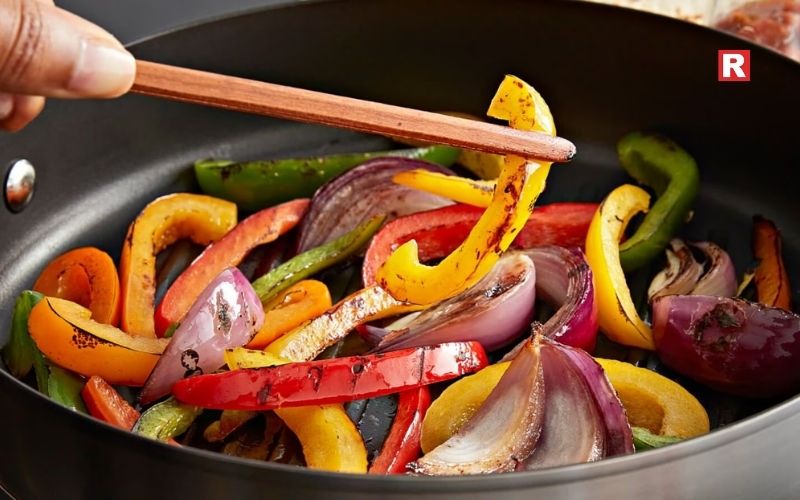
Sauteing is a dry-heat cooking method. It uses a small amount of oil or fat. The food is cooked quickly over medium to high heat. The word sauté comes from a French term meaning “to jump.” This describes how food moves in the pan when tossed. The pan is usually wide. The food is spread out in a thin layer.
Key Characteristics of Sauteing
- High or medium-high heat
- Very little oil
- Fast cooking time
- Food cut into small, even pieces
The goal is quick browning. The outside cooks fast while the inside stays tender.
Best Foods for Sauteing
Sautéing works best with foods that cook quickly.
- Onions, garlic, mushrooms
- Bell peppers, zucchini, beans
- Thin chicken slices
- Fish fillets
- Paneer or tofu cubes
These foods do not need long cooking. They shine with high heat.
Result of Sauteing
Sauteed food has light browning and crisp edges. Flavours stay fresh and bright. Vegetables keep their colour. Meat stays juicy if cooked correctly. This method is perfect for stir-fries, quick curries, pasta toppings, and weekday meals.
Read more: What is Kimchi? Top Veg Kimchi You Can Try at Home
Try These Veg Soups in These Freezing Winters
What Is Braising?

Braising is a combination cooking method. It uses both dry heat and moist heat. First, the food is browned in oil. Then a small amount of liquid is added. The pot is covered. The food cooks slowly over low to medium heat. This slow process breaks down tough fibres. It allows flavours to sink deep into the food.
Key Characteristics of Braising
- Medium heat to start
- Low heat for long cooking
- Covered pot
- Liquid only partially covers the food
The liquid can be water, stock, wine, or gravy.
Best Foods for Braising
Braising is ideal for tough or dense ingredients.
- Tough cuts of meat
- Root vegetables
- Large vegetables like cabbage
- Chickpeas or beans
These foods need time to soften. Braising gives them that time.
Result of Braising
Braising creates very tender food. Meat falls apart easily. Vegetables absorb the cooking liquid. The sauce becomes thick and rich. Many traditional Indian gravies use braising without calling it that. Slow-cooked curries, dals, and masala dishes often follow this method.
Know more: 5 Foods to Avoid for Better Cholesterol
What Is Stewing?
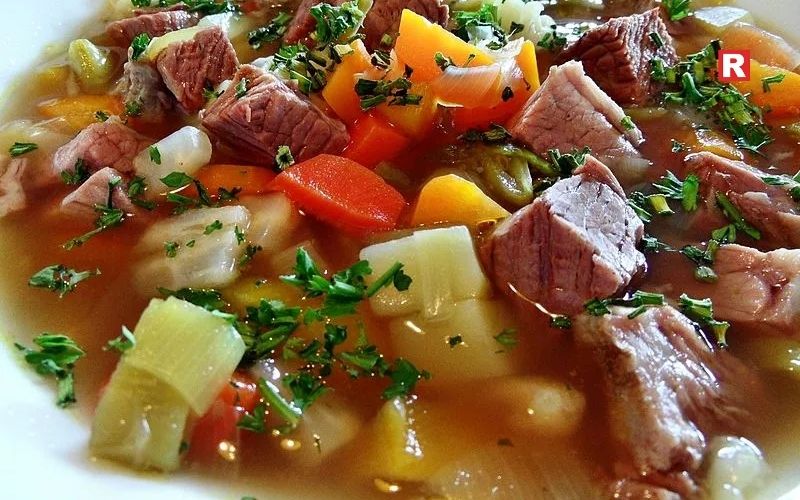
Stewing is a moist-heat cooking method. It uses a large amount of liquid. The food is fully submerged. Everything cooks slowly together in one pot. The heat stays low. The lid remains on. Unlike braising, there is no partial cooking. The liquid is the main cooking medium.
Key Characteristics of Stewing
- Low heat
- Long cooking time
- Large amount of liquid
- Ingredients cut into similar sizes
Stewing is about patience. The longer it cooks, the better it tastes.
Best Foods for Stewing
Stewing suits hearty, filling ingredients.
- Meat chunks
- Lentils and beans
- Potatoes, carrots, pumpkin
- Mixed vegetables
This method works well for one-pot meals.
Result of Stewing
Stews are soft and comforting. Flavours blend deeply. The liquid turns into a rich broth or gravy. Stews are common in winter meals. They feel warm and satisfying.
Key Differences Between Sauteing, Braising, and Stewing
Sauteing: This method uses high heat and very little oil. Food is cooked fast in an open pan. Ingredients are usually cut small so they cook evenly. The result is fresh taste, light browning, and a slightly crisp texture. It works best for quick meals and everyday cooking.
Braising: Braising starts with medium heat and light browning. After that, a small amount of liquid is added and the pot is covered. The food cooks slowly for a long time. This method softens tough ingredients while keeping their shape. Flavours turn deeper and richer.
Stewing: Stewing uses low heat and plenty of liquid. Ingredients are fully submerged and cooked together for hours. Everything becomes soft and well blended. The flavours mix deeply, creating warm and comforting dishes ideal for slow meals.
When to Use Each Cooking Method
Use sauteing when you want speed. It is best for busy days and quick meals. It keeps vegetables fresh and colourful.
Use braising when food is tough. This method is ideal for slow Sunday cooking. It rewards patience.
Use stewing when you want one-pot comfort food. It works well when feeding many people. It also tastes better the next day.
Once you match the method to the ingredient, cooking becomes easier.
Also check: Top 5 States With the Spiciest Food in India
Baking Soda vs Baking Powder: Same Shelf, Very Different Jobs
What to Eat on a Vegetarian Diet: A Simple, Healthy, and Balanced Food Guide
Choosing the Right Method Makes Better Food
Sauteing, braising, and stewing are simple cooking methods used in everyday kitchens. They are not complex techniques meant only for trained chefs. Each method has a clear role and solves a different cooking need. When a cook understands how these methods work, decision-making becomes easier. There is less confusion and less dependence on strict recipes. Cooking starts to feel more natural and controlled. Good cooking does not rely on expensive ingredients or fancy equipment. It depends on how ingredients are handled. High heat works for quick cooking. Slow heat works for tough foods. The right method brings out the best taste and texture. It also reduces mistakes in the kitchen. With basic knowledge, cooking becomes more confident. Meals turn out better and more consistent. Understanding cooking methods is the foundation of good food. It all begins with choosing the right way to cook what is already available.

Baking soda and baking powder often sit next to each other in the kitchen. Many people assume they do the same job. They do not. Using the wrong one can change the taste, texture, and rise of baked food. A cake can turn dense. Cookies can taste bitter. Pancakes may not rise at all.
Understanding the difference between baking soda and baking powder is essential for anyone who bakes, even occasionally. Both are leavening agents. They help food rise. But they work in very different ways. Knowing when to use which one can improve results instantly. This guide explains the difference clearly. It breaks down how each ingredient works, when to use them, and what happens if they are mixed up.
What Is Baking Soda?

Baking soda is a pure chemical compound. Its scientific name is sodium bicarbonate. It is alkaline in nature. On its own, baking soda does nothing. For baking soda to work, it needs an acid. Once it meets an acidic ingredient and moisture, it reacts. This reaction produces carbon dioxide gas. The gas creates bubbles. These bubbles make batters and dough rise. Common acidic ingredients that activate baking soda include lemon juice, vinegar, curd, buttermilk, yogurt, honey, brown sugar, cocoa powder, and molasses. Baking soda reacts immediately. Once mixed, the batter should be baked quickly. If left standing, the gas escapes. The final product becomes flat. Because baking soda is strong, only a small amount is needed. Too much baking soda can leave a bitter or soapy taste.
Read more: 10 Best Open-Face Sandwiches You Must Try
6 Benefits of Drinking Black Coffee
What Is Baking Powder?

Baking powder is a ready-to-use leavening agent. It contains three main components. Baking soda. An acid. And starch. The starch keeps the ingredients dry and stable. The acid is already present, so no extra acidic ingredient is required. Most baking powders sold today are double-acting. This means they work in two stages. The first reaction happens when baking powder meets liquid. The second reaction happens when heat is applied in the oven or pan. This double action gives baked goods a steady and even rise. It also gives more flexibility. Batters can rest briefly before baking without losing all the lift. Baking powder is milder than baking soda. It is commonly used in recipes that do not contain acidic ingredients.
Baking Soda vs Baking Powder: The Core Difference
The biggest difference lies in how they are activated.
- Baking soda needs an acid to work. Baking powder does not.
- Baking soda reacts fast and strong. Baking powder reacts slower and more evenly.
- Baking soda affects taste if not balanced properly. Baking powder is more neutral in flavour.
Because of its strength, baking soda is used in smaller quantities. Baking powder is used in larger amounts. Though they look similar, they are not interchangeable without adjustments.
Know more: 5 Ways to Use Garden Cress Seeds (Halim) for Stronger Hair and Bones
Why the Right Choice Matters in Baking
Baking is not guesswork. It is controlled chemistry.
- If baking soda is used without enough acid, the batter will not rise properly. It may also taste unpleasant.
- If baking powder is used in a recipe that already has acid, the result can be overly airy or dry.
Texture, colour, and flavour all depend on balance. Cookies need to be spread and chewed. Cakes need lightness. Muffins need softness. Each result depends on choosing the correct leavening agent. Experienced bakers read recipes carefully. Beginners often learn through mistakes. Understanding this difference reduces failed bakes.
When to Use Baking Soda
Baking soda works best in recipes that already include acidic ingredients. Chocolate cakes often use baking soda. Cocoa powder is naturally acidic. Baking soda balances it and deepens colour. Banana bread uses ripe bananas. They are slightly acidic. Baking soda helps the loaf rise while keeping it moist. Cookies that include brown sugar benefit from baking soda. Brown sugar contains molasses, which is acidic. Baking soda also helps cookies spread better. Traditional Indian recipes using curd or lemon juice often rely on baking soda for softness and lift. In short, if the recipe includes sour ingredients, baking soda is usually the right choice.
When to Use Baking Powder
Baking powder is ideal for recipes that lack acidic components. Plain vanilla cakes depend on baking powder for lift. There is no acid to activate baking soda. Pancakes and waffles often use baking powder. It ensures a fluffy texture and even browning. Cupcakes rely on baking powder for a gentle rise and soft crumb. Quick breads that do not use yogurt, fruit, or cocoa usually need baking powder. Baking powder is more forgiving. This makes it popular among home bakers.
Can Baking Soda and Baking Powder Be Substituted?
They can be substituted, but only with care. Baking soda is about three to four times stronger than baking powder. This means the quantity must change.
- If replacing baking powder with baking soda, an acid must be added. Without acid, baking soda will not work.
- If replacing baking soda with baking powder, more baking powder is needed. This may affect taste and texture.
Substitution works best in emergencies. It is always better to follow the recipe.
Also check: 5 Foods to Avoid for Better Cholesterol
Try These Veg Soups in These Freezing Winters
Power-Packed Mornings: 8 Protein-Rich Vegetarian Indian Breakfast Ideas
Storage and Shelf Life
- Both baking soda and baking powder lose effectiveness over time.
- Baking soda lasts longer. It can stay active for up to two years if stored well.
- Baking powder has a shorter shelf life. Moisture can reduce its power.
- Both should be stored in airtight containers. Heat and humidity reduce their effectiveness.
An easy test exists. Baking soda should fizz when mixed with vinegar. Baking powder should bubble when mixed with warm water. If there is no reaction, it is time to replace them.
The Bottom Line!
Baking soda and baking powder may look the same, but they work in very different ways. Baking soda needs an acid to activate. Without it, there is no rise. Baking powder already contains acid. It works on its own. One reacts the moment it gets wet. The other reacts twice, once when mixed and again in the oven. This small difference has a big impact on baking. When used correctly, cakes rise evenly. Cookies taste balanced, not bitter. Pancakes turn soft and airy. When used wrong, bakes fall flat or taste off. Good baking depends on simple understanding. Knowing why an ingredient is used matters as much as measuring it right. It helps avoid guesswork. It builds confidence in the kitchen. Once this difference is clear, baking feels easier. Results become consistent. The process feels calm, not confusing. With the right leavening agent in the bowl, baking turns predictable, reliable, and far more enjoyable.

Open face sandwiches are simple yet thoughtfully made. They use just one slice of bread, with toppings placed neatly on top. Nothing is hidden. Every ingredient is seen and tasted. This makes each bite feel well balanced and intentional. Across the world, these sandwiches have found a loyal following. They suit many eating habits. Some are light and fresh. Others are rich and filling. They work well for breakfast, relaxed brunches, quick lunches, or easy dinners. Their flexibility is what makes them so popular.
Cafés favour open face sandwiches for their clean look and strong visual appeal. A single slice topped with fresh ingredients looks inviting and modern. It also allows chefs to focus on quality rather than quantity. At home, cooks appreciate how little effort they need. With basic bread and simple toppings, a complete meal comes together quickly. These sandwiches also allow creativity. They adapt easily to local flavours and seasonal produce. From classic European recipes to modern café-style versions, open face sandwiches continue to evolve. Each style brings its own taste and character. Together, they prove that one slice of bread can deliver comfort, flavour, and satisfaction in the most effortless way.
1. Avocado Toast
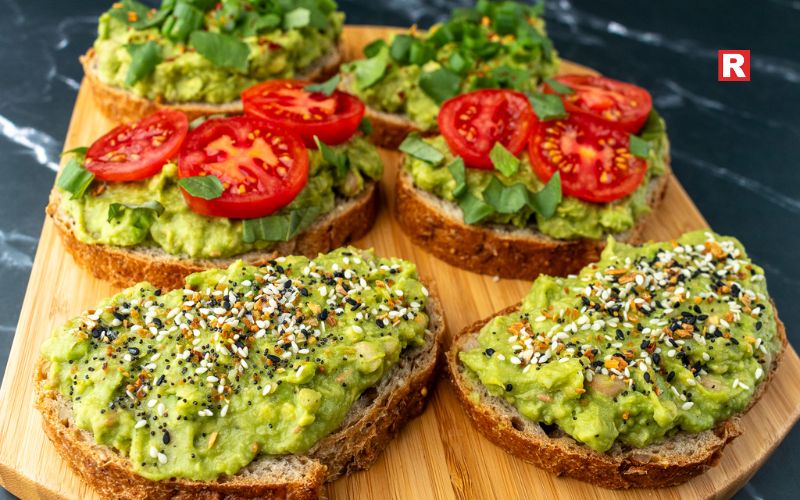
Avocado toast is the most popular open face sandwich today. It started as a café trend and became a global staple. It uses toasted sourdough or multigrain bread. Mashed ripe avocado is spread on top. A little salt, pepper, and lemon juice bring out the flavour. Many people add toppings like cherry tomatoes, chilli flakes, poached eggs, or seeds. The taste is creamy and fresh. The texture is smooth with a crunchy base. It is filling without feeling heavy. Avocado toast is also rich in healthy fats and fibre. That makes it a favourite for breakfast and brunch.
Read more: 8 Famous Vegetarian Dishes of Uttar Pradesh and Their Timeless Legacy
5 Cities That Serve the Best Non-Vegetarian Street Food
2. Smørrebrød

Smørrebrød is a traditional open face sandwich from Denmark. It is known for its balance and neat presentation. The base is dense rye bread. It is topped with butter, meats, fish, cheese, or vegetables. Popular versions include pickled herring, roast beef, eggs, and smoked salmon. Each topping is layered carefully. The flavour is bold and earthy. The rye bread adds depth. The toppings add salt, fat, and freshness. Smørrebrød is often eaten as a proper meal, not a snack. It shows how simple ingredients can feel refined.
3. Tartine

Tartine is the French version of an open face sandwich. It is rustic and comforting. It usually uses country-style bread. The bread is toasted lightly. Toppings can be sweet or savoury. Popular choices include butter and jam, soft cheese with honey, or vegetables with herbs. The taste is subtle and clean. Tartines focus on good bread and fresh toppings. They are perfect for slow mornings or light meals. Many bakeries and cafés serve tartines because they let quality ingredients shine.
4. Crostini

Crostini comes from Italy. It means “little toasts”. These are small slices of bread, toasted until crisp. They are topped with spreads or toppings like ricotta, mushrooms, olives, or meats. Crostini are often served as starters or snacks. The flavour depends on the topping. The base is crunchy and light. Crostini are easy to customise and quick to prepare. They are ideal for gatherings or when you want variety on one plate.
Know more: Top 10 Vegan Street Foods in India Every Indian Loves
5. Bruschetta

Bruschetta is one of the most loved open face sandwiches. It is simple and full of aroma. The base is grilled or toasted bread rubbed with garlic. The classic topping is chopped tomatoes, olive oil, salt, and basil. Some versions add cheese or roasted vegetables. The taste is fresh and juicy. The olive oil adds richness. The garlic adds warmth. Bruschetta works well as a starter or light meal. It celebrates fresh produce and simple cooking.
6. Tuna Open Sandwich

The tuna open sandwich is comforting and familiar. It is popular across many countries. It uses bread like white, brown, or whole wheat. The topping is usually tuna mixed with mayo, mustard, or herbs. Some versions add onions, corn, or boiled eggs. The flavour is creamy and savoury. It is high in protein and very filling. This sandwich works well for lunch or quick meals. It is easy to prepare and uses pantry staples.
7. Mushroom and Cheese Toast

This open face sandwich is rich and indulgent. It starts with toasted bread. Sautéed mushrooms are placed on top. Cheese like mozzarella, cheddar, or cream cheese is added. Herbs like thyme or parsley lift the flavour. The taste is earthy and warm. The cheese melts into the mushrooms. The texture is soft and comforting. This sandwich is perfect for evenings or when you want something hearty without too much effort.
8. Salmon Open Sandwich

Salmon open sandwiches feel light yet luxurious. They usually use rye or sourdough bread. Smoked or cured salmon is placed on top. Cream cheese, lemon, and dill are common additions. Some versions include capers or cucumber. The flavour is fresh and slightly salty. The salmon adds richness without heaviness. This sandwich is popular for brunch and special meals. It also provides omega-3 fats and protein.
9. Egg and Herb Toast

Egg and herb toast is simple and satisfying. The base is toasted bread. The topping can be scrambled eggs, boiled eggs, or poached eggs. Fresh herbs like chives, parsley, or coriander are added on top. The taste is soft and comforting. Eggs make it filling and nutritious. This open-face sandwich works well for breakfast or quick dinners. It is easy to adjust with spices or vegetables.
10. Paneer Open Sandwich

The paneer open sandwich brings Indian flavours into a global format. Toasted bread is topped with spiced paneer. The paneer can be grilled, crumbled, or sautéed with onions and capsicum. Green chutney or yogurt spreads add freshness. The flavour is bold and familiar. It balances spice with creaminess. This sandwich is a great vegetarian option. It shows how open face sandwiches can adapt to local tastes.
Also check: Pani Puri Has Different Names in Different Indian States—Know Them All
High Protein Indian Meals You Should Try
12 Delicious High-Protein Foods to Eat Daily for a Healthier You
Why Open Face Sandwiches Work So Well
Open face sandwiches are more than a passing food trend. They are practical and well balanced. One slice of bread helps keep portions under control. The toppings stay visible, which makes flavours feel planned and purposeful. Nothing feels overloaded.
They are also easy to adapt.
They can be healthy with vegetables, eggs, or grains.
They can be indulgent with cheese, butter, or rich spreads.
Local ingredients fit in naturally.
Leftovers can be turned into a fresh meal with little effort.
For cafés, open face sandwiches are a smart choice. They look clean, modern, and inviting on the plate. For home kitchens, they save time and reduce waste. There is no need for complex cooking or long prep. For the eater, they strike the right balance. They feel filling but not heavy. Light, flexible, and full of flavour, open face sandwiches fit easily into everyday meals.
Happy Eating!
The best open-face sandwiches are built on simplicity. Everything starts with good bread. A strong base gives the sandwich its structure and taste. Fresh toppings matter just as much. When ingredients are clean and well chosen, one slice is enough to satisfy. These sandwiches suit every kind of palate. From creamy avocado spreads to spiced paneer toppings, the options are endless. They adapt easily to local flavours and personal choices. That is why they feel so relevant today. People want food that is quick, flexible, and easy to enjoy. Open-face sandwiches fit modern routines. They take little time to prepare. They feel light yet filling. They work for busy mornings, slow brunches, or simple dinners. There is no need for heavy portions or complex cooking. In one open slice, there is balance. Taste, texture, and comfort come together. That is what makes an open-face sandwich a reliable choice, any time of the day.

Mountain travel has its own rhythm. The air feels cleaner. The pace feels slower. The silence feels deeper. But the cold is real. It settles into the bones. In such places, food becomes more than pleasure. It becomes protection. In the hills, meals are planned with care. Taste matters, but warmth matters more. Food must give energy. It must keep the body strong against wind and low temperatures. That is why mountain cooking relies on local grains, dairy, and slow methods. Nothing is rushed. Nothing is wasted. Every ingredient has a role. Across Indian mountain regions like Himachal Pradesh, Uttarakhand, Ladakh, Sikkim, and Arunachal Pradesh, people eat with the climate in mind. The food is simple. It is heavy enough to last. It comforts without being complicated. Hot soups, fermented dough, lentils, ghee, and warm drinks appear on every table.
These dishes are shaped by daily life in the mountains. Long winters. Limited produce. High altitude. Hard work. The result is food that nourishes deeply and keeps the body warm from within. For travellers, eating local is not just a choice. It is a necessity. These ten mountain foods offer warmth, strength, and a true taste of life in the hills.
1. Thukpa – The Ultimate Mountain Comfort Soup

Thukpa is one of the most popular mountain foods in India. It comes from Tibetan cuisine. It is widely eaten in Ladakh, Sikkim, and Arunachal Pradesh. Thukpa is a hot noodle soup. It is made with vegetables, meat, or both. The broth is slow-cooked. Garlic, ginger, and mild spices add warmth. The steam itself feels healing in cold air. This dish keeps you full for hours. It also helps with hydration at high altitudes. Locals prefer it during evenings and winters. Travellers love it for its warmth and simplicity.
Read more: 8 Famous Vegetarian Dishes of Uttar Pradesh and Their Timeless Legacy
5 Cities That Serve the Best Non-Vegetarian Street Food
2. Siddu – Himachal’s Winter Favourite
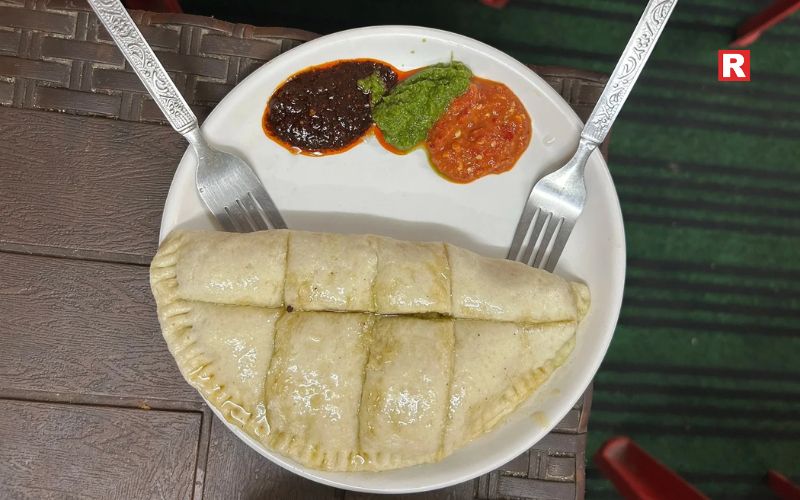
Siddu is a traditional food from Himachal Pradesh. It is made from wheat flour. The dough is fermented and then steamed. Siddu is usually stuffed with poppy seeds, walnuts, or paneer. It is served hot with ghee or dal. The fermentation helps digestion. The ghee provides heat and energy. This dish is heavy. It is slow to digest. That is why it works so well in cold mountain weather. One serving is enough to keep you warm for a long time.
3. Butter Tea (Po Cha) – Ladakh’s Cold-Weather Drink

Butter tea is not a regular tea. It is a survival drink. It comes from Ladakh and Tibetan regions. This tea is made using tea leaves, salt, water, and yak butter. It tastes salty, not sweet. It is thick and rich. Butter tea helps prevent dehydration. It also provides fat, which is essential in extreme cold. Locals drink it several times a day. For travellers, it may taste unusual. But it works wonders in freezing temperatures.
4. Dal Bhat – The Mountain Staple Meal

Dal Bhat is eaten across many mountain regions. It is simple food. It includes lentils, rice, vegetables, and sometimes ghee. This meal provides balanced nutrition. Dal gives protein. Rice gives energy. Ghee adds warmth. Vegetables add minerals. In mountain areas, people eat dal bhat daily. It keeps the body strong. It supports long hours of physical work. For travellers, it is a safe and nourishing option.
Know more: Pani Puri Has Different Names in Different Indian States—Know Them All
5. Momos – Steamed and Warming
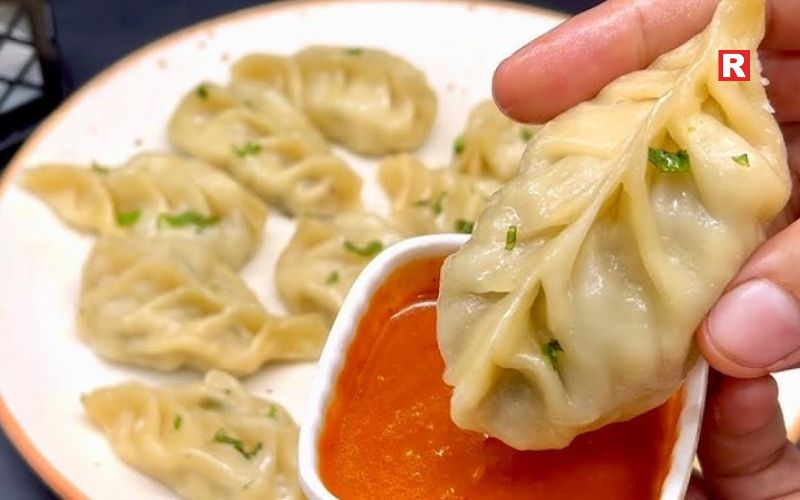
Momos are famous across hill stations. They are steamed dumplings filled with vegetables or meat. Steaming makes momos easy to digest. They do not feel heavy. But they still provide warmth. The fillings are usually cooked with garlic and ginger. These ingredients naturally warm the body. Momos are best eaten hot. Street-side stalls in mountain towns serve them fresh. They are affordable. They are comforting. And they suit cold weather perfectly.
6. Chhang – Traditional Fermented Drink

Chhang is a traditional drink found in Sikkim, Ladakh, and parts of Himachal. It is made by fermenting millet, barley, or rice. It is served warm in winter. Chhang produces mild heat in the body. Locals drink it during social gatherings and cold evenings. This drink is not very strong. But it should still be consumed carefully, especially at high altitude. In moderation, it helps the body stay warm and relaxed.
7. Gahat Dal – Uttarakhand’s Heat-Giving Lentil

Gahat dal, also known as horse gram, is popular in Uttarakhand. It is known for its warming nature. This dal is cooked slowly. It has a thick texture. It is usually eaten with rice or mandua roti. Gahat dal is high in protein and iron. It is especially eaten in winters. Locals believe it produces heat in the body. That is why it is avoided in summer.
Also check: Try These Veg Soups in These Freezing Winters
8. Phapar Roti – Buckwheat Bread for Cold Days

Phapar roti is made from buckwheat flour. It is common in Uttarakhand and Himalayan regions. Buckwheat grows well in cold climates. It is rich in fibre and minerals. Phapar roti is dense and filling. It is usually eaten with ghee, dal, or vegetable curry. This combination helps maintain body temperature. It also keeps hunger away for longer hours.
9. Thenthuk – Thick Hand-Pulled Soup
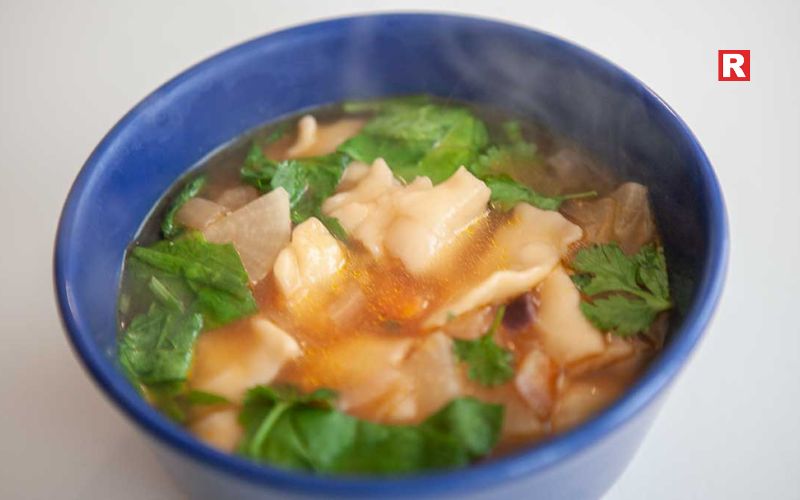
Thenthuk is a traditional Ladakhi soup. It is thicker than thukpa. Pieces of wheat dough are hand-pulled and added to the soup. This dish is slow-cooked. It includes vegetables and sometimes meat. The thick broth provides warmth and strength. Thenthuk is commonly eaten during harsh winters. It helps the body fight cold winds and low temperatures.
10. Local Ghee and Cheese – Mountain Essentials

Dairy plays a big role in mountain food. Cow and yak milk are widely used. Ghee, butter, and cheese are everyday items. These dairy products are high in fat. Fat helps the body retain heat. It also provides long-lasting energy. Yak cheese in Ladakh and local butter in Himachal are not luxury foods. They are daily nutrition. Travellers should try these in small amounts. They help adjust to cold climates.
Check more: 5 Ways to Use Garden Cress Seeds (Halim) for Stronger Hair and Bones
Must-Try 20 Famous Local Foods of Madhya Pradesh That Define the State’s True
Explore 15 Famous Vegetarian Kerala Dishes for an Authentic Taste
Final Thoughts
When people travel to the mountains, food becomes as important as warm jackets and sturdy shoes. The body reacts differently at high altitudes. The cold is sharper. Energy drops faster. Local food helps the body adjust. It provides warmth from within. It supports movement and stamina throughout the day. Mountain food is not about decoration or trends. It is honest and practical. These meals are built on experience passed down over generations. Every dish exists for a reason. To fight the cold. To fill the stomach. To give strength after long hours in harsh weather. Across regions like Himachal Pradesh, Uttarakhand, Ladakh, and Sikkim, people still eat what the land provides. Grains grown in cold soil. Dairy made fresh. Slow-cooked dishes that hold heat longer. These foods carry stories of survival, patience, and daily life in the hills. For travellers, choosing local meals is a form of respect. It brings comfort. It brings balance. And it helps the body feel at home, even in the coldest mountains.

If 2025 was defined by matcha, boba tea, and visually striking cafe beverages, 2026 is shaping up to be far more restrained. Across cafes and specialty coffee spaces, consumer demand is moving away from sweet, indulgent flavours toward simpler, more functional beverages that prioritise balance, drinkability, and repeat consumption.
This change is reflected in the numbers. Functional beverages globally are expected to cross USD 215–220 billion by 2025, with mushroom- and adaptogen-based drinks growing steadily. In India, kombucha is gaining traction, with the market valued at USD 102.6 million in 2024 and expanding at 16–17 per cent CAGR, a sign of consumers moving toward more purposeful, less spectacle-driven choices.
Matcha Grows Up
Matcha’s dominance in 2025 was driven by both social media trends and increasingly health-driven consumption habits. Search data shows matcha searches in India have grown nearly four times over five years, largely powered by Gen Z and social media virality. But cafe operators now believe matcha’s next phase will be far more grounded.
“Matcha resonated strongly in 2025 because it sat at the intersection of wellness, visual appeal, and versatility,” said Ayush Saxena of Caracoco Roasters and Sukoon Cafe in Delhi, adding, “Going forward, I see matcha evolving beyond being a ‘trend drink’ into a core alternative caffeine category, closer to specialty coffee than novelty.”
At the cafe level, this means fewer flavoured matcha concoctions and greater focus on ceremonial-grade quality, unsweetened profiles and subtle botanical pairings. The shift mirrors how specialty coffee itself matured from flavoured syrups to origin, process and craft.
Hanumanth Rao Naineni, Founder of Roast CCX, Hyderabad, echoed this sentiment. “Matcha didn’t try too hard. People only connected with the sense of ritual it brings. Now the curiosity is moving toward quality, origin and preparation rather than constant flavour additions,” he added.
Sweetness Dials Down
Across cities, cafes report that customers are returning more often to clean, familiar flavours. Comfort-led profiles such as cocoa, brown sugar, vanilla and caramel remain popular, but with reduced sweetness and simpler taste profiles.
“At Sukoon Cafe, customers are increasingly returning to beverages where the base ingredient shines. Over the past couple of years, there’s been a clear move away from artificially flavoured syrups toward natural sweetness and subtle complexity. In non-coffee beverages, flavours that feel fresh, herbal, or lightly spiced are performing well, especially when they’re positioned as refreshing or functional,” explained Saxena.
At Roast CCX, this maturity is also visible in how guests approach experimental coffees. “Process-led coffees, particularly anaerobic and fruit-fermented profiles, are seeing strong repeat response but only when they’re clean and well-executed,” shared Naineni, adding, “People want to taste intention, not just indulgence.”
This shift aligns with broader global data. Around 64 per cent of consumers say they look forward to trying new food and beverage trends, but flavour forecasters note that experimentation today is more about balance than excess, with sweet flavours no longer driving choices.
Function Becomes Baseline
Functional beverages are no longer positioned as niche wellness add-ons. From adaptogen blends to digestive and low-acidity options, they are increasingly being built into core menus and everyday drinking habits.
Low- and no-caffeine beverages are becoming central to this shift as caffeine fatigue grows. Cafes are expanding menus to support all-day consumption, with coffee substitutes and caffeine alternatives now a multi-billion-dollar global category.
“Non-coffee beverages that feel fresh, herbal or lightly spiced are performing well,” Saxena pointed, particularly when positioned as refreshing or functional rather than dessert-like.
Alongside this, Indian-origin beverages such as buttermilk and sharbat are expanding at four to six times the overall beverage category, prompting cafes to reinterpret these traditional formats with modern flavours, textures and formats on their menus.
The Next Trending Flavours
India’s cafe menus are also becoming more globally fluent. Flavour houses point to growing adoption of yuzu, elderflower, lavender, black sesame and tart berry profiles, with black currant identified as a key flavour for 2026. These are no longer niche experiments but increasingly accepted as everyday options.
“We’re seeing a rise in demand for umami-forward flavours and fermented beverages across categories,” added Harika Ganeshni Bommana, Founder of Grumpy Girl Coffee. “Think matcha, sesame, yuzu, and even kombucha culture influencing cafe menus. India is getting more adventurous,” she added.
Fermentation, in particular, is shedding its alternative image. With kombucha and related formats growing rapidly, sour and complex flavour profiles are finding a wider audience, not as health tonics, but as sophisticated beverages in their own right.
Beverage Innovation in 2026
Despite the talk of new flavours, operators agree that 2026 will not be about endless invention. Instead, it will be defined by better execution of familiar ideas like cleaner fermentations, lighter sweetness, improved texture and stronger narratives around origin and process.
“The ingredient sets the rules. Sweetness is always the final step, never the starting point. The goal is not to mask flavours but to let them land the way they’re meant to. Citrus will continue to show up, but more as a supporting note than a headline flavour,” explained Naineni.
Texture, too, is emerging as a key differentiator. From creamy iced coffees to foamy cold drinks and light emulsions, mouthfeel is becoming as important as flavour. According to Saxena, cafés that succeed will be those that combine layered but restrained flavour experiences with storytelling and authenticity.
Beyond changing tastes, this move toward grounded, grown-up beverages also makes commercial sense. Functional, fermented and low-sugar drinks offer more stable input costs, stronger margins and higher repeat consumption, allowing cafés to expand menus and drinking occasions without relying on discounting or constant limited-time launches.

Food in India has always been more than taste. It is linked to health, mood, and discipline. Long before modern nutrition plans existed, Indian philosophy explained food through Ayurveda and yoga. One such way of eating is the Sattvic diet. It is simple. It is clean. And it focuses on balance. Today, many people are turning back to the Sattvic diet for mental peace, better digestion, and mindful living.
The Sattvic diet comes from ancient Indian philosophy, especially Ayurveda and yogic texts like the Bhagavad Gita. The word Sattva means purity, clarity, and harmony. Sattvic food is believed to nourish both the body and the mind. This diet focuses on fresh, natural, and seasonal food. It avoids anything that causes heaviness, restlessness, or laziness. The idea is simple. What you eat affects how you think, feel, and act. Sattvic food is light on the stomach. It is easy to digest. It keeps the mind calm and alert. This is why yogis, monks, and spiritual seekers often follow a Sattvic diet.
Why Is the Sattvic Diet Important Today?
Modern diets focus on speed and convenience. Packaged food. Preservatives. Excess oil and sugar. Over time, this leads to low energy, poor digestion, and mental stress. The Sattvic diet offers a slower and more mindful approach. It encourages people to eat with awareness. It teaches respect for food.
A Sattvic diet helps improve digestion. It supports gut health. It also helps reduce anxiety and restlessness. Many people report better sleep and improved focus after following this diet. In India, this diet also aligns with traditional home-cooked meals. Simple dal, rice, sabzi, and ghee form the base of many Sattvic meals.
Core Principles of a Sattvic Diet
The Sattvic diet is not about strict rules. It is about intention and quality. Food should be freshly cooked. Leftovers are avoided. Food should be eaten warm and at regular times. Ingredients should be natural and unprocessed. Seasonal vegetables and fruits are preferred. Artificial flavours and preservatives are avoided. Spices are used in moderation. The aim is balance, not strong stimulation. Another important principle is how food is prepared. Cooking should be done in a calm and clean environment. Food is believed to carry the energy of the person who cooks it.
Read more: High Protein Indian Meals You Should Try
12 Delicious High-Protein Foods to Eat Daily for a Healthier You
Explore Top Sattvic Food Items to Include
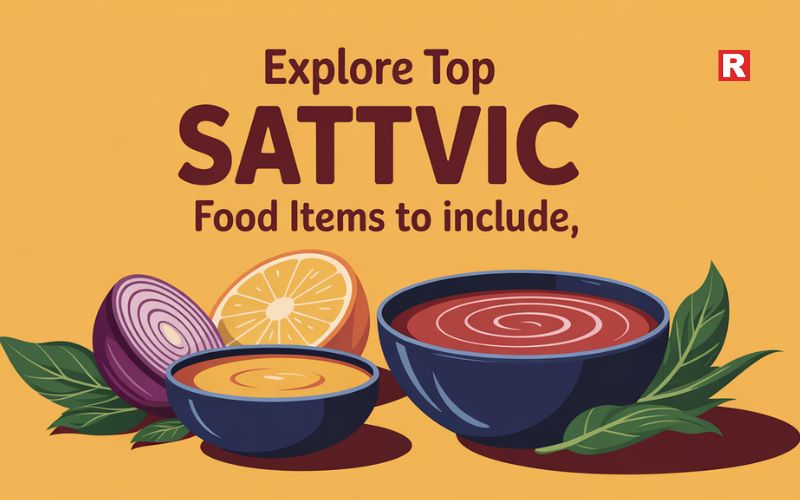
A Sattvic food list is simple and familiar to most Indian households.
Grains and Cereals: Whole grains form the base of the Sattvic diet. Rice, especially unpolished rice, is commonly used. Wheat, barley, and millets like jowar and bajra are also included. These grains provide energy without heaviness.
Fruits: Fresh and ripe fruits are considered highly Sattvic. Apples, bananas, papaya, pears, and mangoes are good examples. Fruits should be eaten fresh and in season. Overripe or stored fruits are avoided.
Vegetables: Most vegetables are allowed in the Sattvic diet. Bottle gourd, pumpkin, carrot, cucumber, ash gourd, and spinach are commonly used. These vegetables are light, cooling, and easy to digest. Vegetables should be cooked gently. Overcooking or deep frying is avoided.
Dairy Products: Dairy plays an important role in a traditional Sattvic diet. Fresh milk, homemade curd, and buttermilk are allowed. Ghee is considered especially pure and beneficial when used in small amounts. Dairy should be fresh and not processed.
Nuts and Seeds: Soaked almonds, walnuts, sesame seeds, and pumpkin seeds are allowed in moderation. They provide healthy fats and energy. Soaking helps improve digestion.
Natural Sweeteners: Refined sugar is avoided. Instead, natural sweeteners like jaggery and raw honey are used in small quantities.
Foods to Avoid in a Sattvic Diet
The Sattvic diet avoids foods that disturb the body or mind. These foods fall into two categories. Rajasic and Tamasic.
Rajasic Foods: Rajasic foods increase restlessness and stimulation. Onions and garlic fall under this category. Excess spices, chillies, and very salty foods are also avoided. Tea and coffee are discouraged because they overstimulate the nervous system.
Tamasic Foods: Tamasic foods cause heaviness and dullness. Meat, fish, and eggs are avoided. Alcohol, tobacco, and intoxicants are strictly avoided. Packaged and processed foods are considered Tamasic. So is stale food. Food kept overnight or reheated loses its freshness and energy.
Know more: Try These Veg Soups in These Freezing Winters
Sattvic Diet vs Modern Diet Trends
Most modern diets revolve around numbers. Calories are counted. Portions are measured. Results are expected fast. The focus often stays on weight loss and physical change. The Sattvic diet works differently. It is not designed for quick results. It is meant to be followed over time. The goal is balance, not control. Instead of counting calories, attention is given to how food affects the body and the mind. There is no pressure to hit protein targets or track macros. Food is chosen for its freshness and simplicity. Meals are light, clean, and easy to digest. This helps the body feel calm and steady. Modern diets often judge success by appearance. The Sattvic diet measures progress through energy levels, mental clarity, and emotional stability. It is less about looking different. It is more about feeling better every day.
A Simple Sattvic Meal Plan
A Sattvic meal plan does not need to be complicated. Breakfast can include fresh fruits and soaked almonds. Warm milk can be added if suitable. Lunch is usually the heaviest meal. Rice or roti, dal, seasonal sabzi, curd, and a little ghee make a balanced plate. Dinner should be light. Khichdi, vegetable soup, or lightly cooked vegetables work well. Eating before sunset is often recommended.
Also check: Power-Packed Mornings: 8 Protein-Rich Vegetarian Indian Breakfast Ideas to
Top 5 States With the Spiciest Food in India
7 Desi Alternatives to Oatmeal for Weight Loss
Final Thoughts
The Sattvic diet is not built on rules or restrictions. It is based on awareness. It helps people understand how food influences the body, the mind, and emotions. Every meal has an impact. What is eaten shapes energy levels, focus, and inner calm. In a fast-moving world, the Sattvic diet brings simplicity. It asks people to slow down. To cook fresh food. To eat at the right time. To choose meals that feel light and nourishing. There is no rush and no excess. This way of eating values cleanliness and balance. Ingredients are natural and close to their original form. Meals are prepared with care and eaten with attention. Over time, this creates a sense of stability and clarity. The Sattvic diet is not about changing appearance. It is about improving daily life. Simple food. Clean choices. Balanced living. That is its true essence.

Mumbai is not just a city. It is an emotion shaped by everyday life. And that emotion is deeply connected to food. From early morning vada pav near railway stations to late-night kebabs on crowded streets, Mumbai eats all day. Food here moves as fast as the people. The city’s food reflects its spirit. Quick. Diverse. Honest. Every dish tells a story of migration, hard work, and shared spaces. Office workers eat standing by carts. Students share plates after class. Families bond over evening chaat.
Authentic Mumbai taste does not live in luxury restaurants. It lives on footpaths, in small lanes, and inside old cafés that time forgot. These places have served the same flavours for years. Some for decades. Recipes remain unchanged. So does the love for food. Street stalls, Irani cafés, local eateries, and neighbourhood joints keep the real taste alive. Butter-soaked pav bhaji. Spicy misal pav. Tangy bhel puri. Each bite feels familiar. This guide explores such places. Places where Mumbai’s true flavours still exist. Simple food. Strong taste. Real stories. This is Mumbai on a plate.
Find Your Top Places to Visit for Authentic Mumbai Taste
1. Khau Galli – Where Mumbai Truly Eats
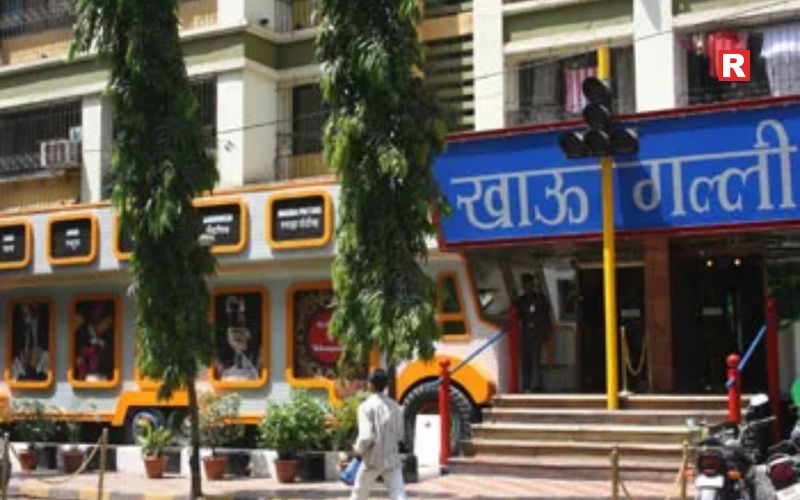
Khau Galli is the soul of Mumbai street food. Almost every suburb has one. Ghatkopar, Churchgate, Kandivali, Borivali, and Vile Parle are some popular areas. Here, food is quick and full of flavour. Pav bhaji is buttery and spicy. Tawa pulao is smoky. Frankies are rolled fresh. Cheese may be extra, but flavour is never missing. Khau Galli represents daily Mumbai life. Students, office-goers, families, and night-shift workers all eat here. Prices are affordable. Portions are filling. This is where Mumbai eats without pretence.
Read more: Try These Veg Goan Dishes On Your Next Visit
5 Cities That Serve the Best Non-Vegetarian Street Food
2. Mohammad Ali Road – A Timeless Food Trail

Mohammad Ali Road is one of Mumbai’s most iconic food destinations. It is especially famous during Ramzan, but the area is active all year. The food here is rich and traditional. Kebabs are soft and well-spiced. Nihari cooks slowly for hours. Biryani is aromatic and filling. Desserts like malpua and firni end the meal perfectly. This area represents old Bombay flavours. Recipes are passed down through generations. Eating here is not just about taste. It is about culture, history, and community.
3. Ashok Vada Pav, Dadar – The City’s Favourite Snack

Vada pav is Mumbai’s most loved food. And Ashok Vada Pav in Dadar is one of its most trusted names. The menu is simple. Vada pav. Chutney. Fried chilli. That is it. The vada is crisp outside and soft inside. The garlic chutney adds heat. The pav is fresh. Located near Dadar station, this place serves thousands every day. Office workers, college students, and locals swear by it. This is authentic Mumbai food in its purest form.
4. Girgaon Chowpatty – Street Food by the Sea

Girgaon Chowpatty is more than a beach. It is a food memory for many Mumbaikars. Evenings here are special. Families walk along the shore. Children play. And food stalls come alive. Bhel puri is light and tangy. Sev puri is crisp. Pani puri bursts with flavour. Eating chaat while watching the sea is a classic Mumbai experience. The taste is simple. The setting makes it unforgettable.
Know more: Top 10 Vegan Street Foods in India Every Indian Loves
5. Britannia & Co., Fort – Parsi Food from Old Bombay
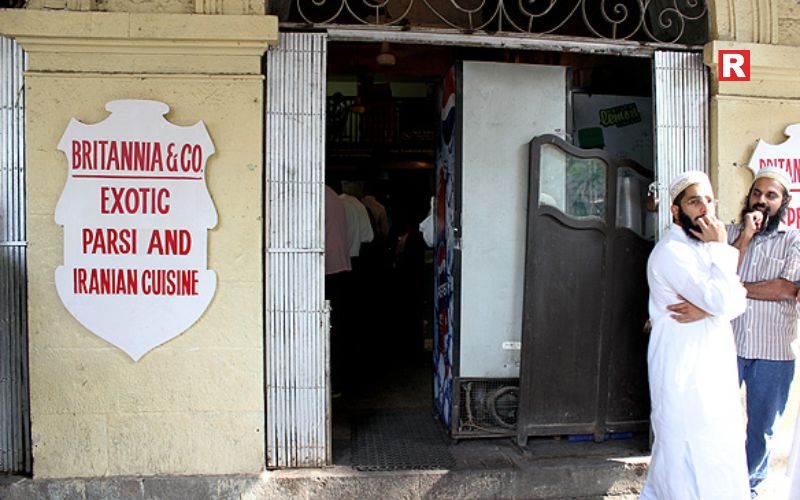
Britannia & Co. is one of Mumbai’s oldest Irani cafés. Located in Fort, it has remained unchanged for decades. The most famous dish here is berry pulao. It is mildly sweet, aromatic, and unique. Other favourites include dhansak and caramel custard. This place reflects Mumbai’s Parsi community and its contribution to the city’s food culture. The food is comforting. The atmosphere feels like stepping into history.
6. Leopold Cafe, Colaba – A Mumbai Landmark

Leopold Cafe is known worldwide, but it still holds a special place in Mumbai’s food scene. Located near the Gateway of India, it attracts tourists and locals alike. The menu is wide. Indian dishes, café food, and continental meals are all available. Leopold represents Mumbai’s global side. It shows how the city blends cultures while keeping its local identity strong.
7. Aaswad and Prakash, Dadar – Maharashtrian Food at Its Best
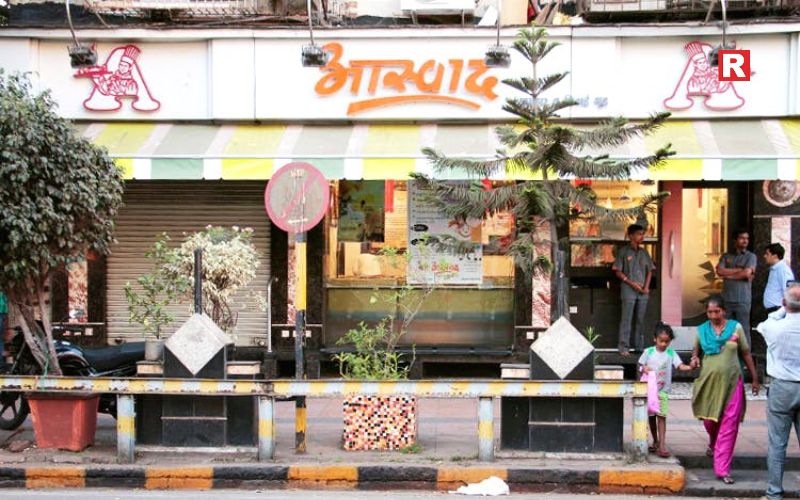
For authentic Maharashtrian vegetarian food, Aaswad and Prakash are must-visits. These places serve food that feels like home. Misal pav is spicy and satisfying. Sabudana khichdi is soft and comforting. Thalipeeth is hearty and filling. Located in Dadar, these restaurants attract people from across the city. They show how traditional Maharashtrian food is an important part of Mumbai’s taste identity.
8. Crawford Market Food Lanes – Old-World Street Snacks

Around Crawford Market, food stalls serve simple and honest snacks. Fresh fruit juices, sandwiches, kebabs, and local sweets are common. Workers, traders, and shoppers eat here daily. This area shows Mumbai’s working-class food culture. Meals are quick. Flavours are strong. Food is made to keep the city moving.
Why Mumbai Food Feels So Personal
Mumbai food is personal because it fits into real life. People eat on the go. They share tables. They stand and eat. Food is not an event. It is a routine.
Every area has its favourite spots. Every family has memories linked to certain foods. From school-time bhel puri to office lunch vada pavs, food grows with the city’s people.
- Visit early morning or late evening for the best street food
- Eat where locals eat
- Do not look for luxury. Look for crowds
- Try small portions at multiple places
- Respect local food traditions
Also check: Top Famous Veg Street Foods in Kolkata That You Must Try Once in Your Life
Top Maharashtra Famous Veg Food to Explore
Rajma Chawal: Know the Benefits Behind Delhi’s Famous Comfort Dish
Final Thought!
Authentic Mumbai taste is not driven by trends. It is built on consistency. It comes from places that have served the same food for years. Sometimes for decades. These spots do not change with fashion. They stay true to flavour. From busy Khau Gallis to quiet old cafés, Mumbai’s food lives everywhere. Street stalls serve food with speed and care. Small eateries cook recipes passed down through families. Legendary joints continue to draw crowds without promotion. Mumbai’s food speaks for the city. It tells stories of hard work, long days, and shared meals. People eat standing, walking, or sitting close together. Food fits into daily life, not the other way around. To understand Mumbai, one must eat like Mumbai. Eat simply. Eat locally. Choose flavour over presentation. There is no fuss here. No excess. Just honest food made well. This is the real taste of Mumbai. Straightforward. Filling. Memorable. A city explained through every bite.

Maharashtra is known for its rich culture, strong traditions, and bold flavours. Its food reflects this heritage in the most honest way. From the crowded streets of Mumbai to quiet village homes, Maharashtrian vegetarian food remains simple, comforting, and full of character. Each dish carries the story of the land, the weather, and the people who cook it every day. Unlike heavy and creamy gravies seen in many Indian cuisines, Maharashtrian veg food follows a balanced approach. The flavours are clear and natural. Spice, sweetness, sour notes, and earthy tones come together in every meal. Local ingredients play a key role. Jowar and bajra are common staples. Peanuts add richness. Coconut brings softness. Jaggery adds mild sweetness. Regional spices give depth without overpowering the dish.
The food is designed to nourish and satisfy. It feels filling but never heavy. Meals are often seasonal and made with what grows locally. This keeps the cuisine rooted and practical. For anyone looking to understand real Indian vegetarian cooking, Maharashtra offers a wide range of authentic dishes that are simple, flavourful, and deeply connected to everyday life.
Explore Top Maharashtra Famous Veg Food to Explore
1. Pithla Bhakri
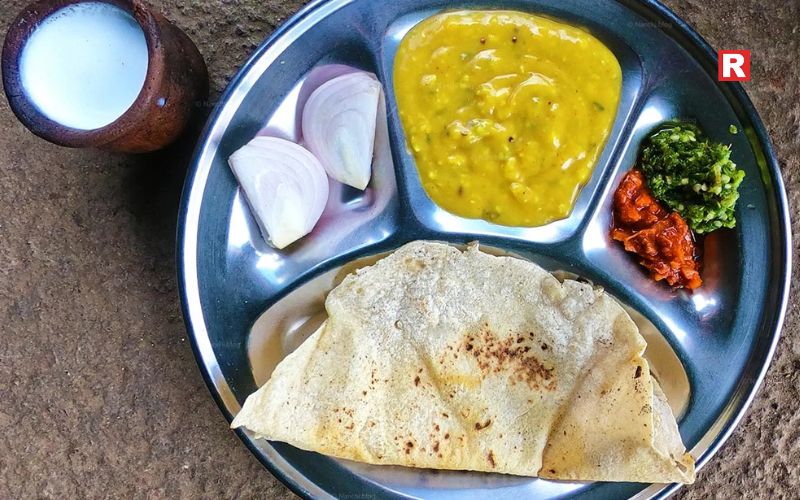
Pithla Bhakri is often called the comfort food of rural Maharashtra. It is simple, filling, and deeply rooted in everyday life. Pithla is prepared using besan cooked with garlic, onion, green chillies, turmeric, and mustard seeds. The texture is soft and slightly thick. The flavour is strong but balanced. Bhakri is a rustic flatbread made from jowar or bajra. It is cooked on a hot tawa and eaten fresh. Together, they form a complete and nourishing meal. This dish is common in village homes and farm households. Over time, it has found its place in cities like Pune and Kolhapur. Many traditional restaurants now include it in Maharashtrian thalis.
- Staple rural dish
- Uses local grains
- Affordable and filling
- Strong cultural identity
Read more: 8 Famous Vegetarian Dishes of Uttar Pradesh and Their Timeless Legacy
5 Cities That Serve the Best Non-Vegetarian Street Food
2. Misal Pav (Vegetarian)
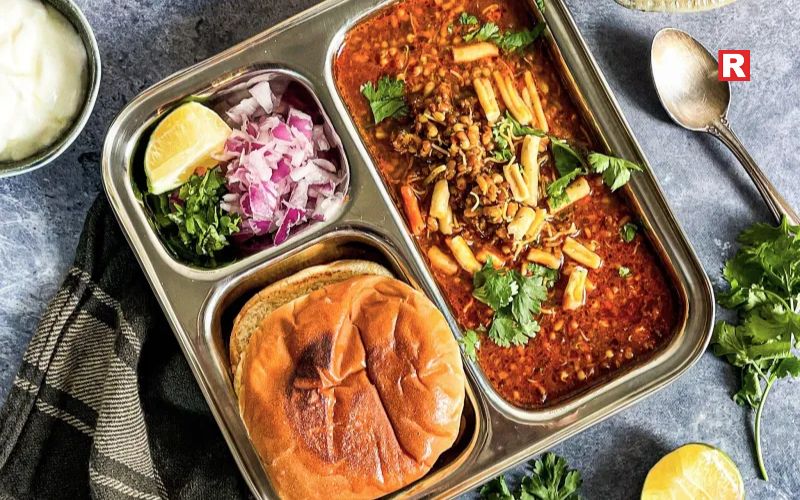
Misal Pav is one of Maharashtra’s most iconic vegetarian dishes. It is bold, spicy, and full of layers. The base is made from sprouted moth beans cooked in a fiery gravy. It is topped with farsan, chopped onion, coriander, and a squeeze of lemon. Soft pav is served on the side. Some people add curd to reduce the heat. Every region has its own style. Kolhapur is known for extra spice. Nashik offers a milder and balanced version. For many Maharashtrian families, misal pav is a weekend favourite. It is often eaten for breakfast or brunch.
- High-protein dish
- Famous across cities
- Spicy and textured
- Popular breakfast option
3. Vada Pav

Vada Pav holds a special place in Maharashtra, especially in Mumbai. It is simple street food with a strong identity. A spicy potato vada is placed inside a soft pav. Dry garlic chutney and green chilli complete the dish. It is quick, affordable, and satisfying. Vada pav is found everywhere. Railway stations, offices, colleges, and roadside stalls sell it fresh throughout the day. It reflects Mumbai’s fast-moving lifestyle. Though the ingredients are basic, the taste is bold and memorable. For many locals, it is a daily habit rather than an occasional snack.
- Mumbai’s most famous street food
- Budget-friendly
- Easy to eat on the go
- Loved by all age groups
4. Thalipeeth

Thalipeeth is a traditional and nutritious Maharashtrian dish. It is a savoury flatbread made using a mix of flours such as jowar, bajra, rice, and wheat. Onion, spices, and coriander are mixed into the dough. The flatbread is cooked slowly on a tawa. Thalipeeth is usually eaten with curd or white butter. It is common for breakfast or lunch. Many Maharashtrian homes prepare it regularly. The dish is filling without being heavy. It reflects the practical and health-focused side of the cuisine.
- Multigrain dish
- High in fibre
- Home-style food
- Balanced and wholesome
5. Bharli Vangi

Bharli Vangi is a classic dish from Maharashtrian home kitchens. It is mainly prepared during festivals, family gatherings, and special meals. Small brinjals are carefully slit and filled with a rich masala. The stuffing is made using roasted peanuts, coconut, sesame seeds, jaggery, and goda masala. This gives the dish a deep and balanced flavour. The taste is mildly sweet, spicy, and nutty at the same time. The brinjals are slow-cooked on low heat. This helps them absorb the masala fully. Bharli vangi is usually served with bhakri or chapati. It is an important part of a traditional Maharashtrian thali and reflects the richness of regional cooking.
- Festive home-style dish
- Uses local spices
- Sweet and spicy balance
- Slow-cooked for flavour
Know more: Top 10 Vegan Street Foods in India Every Indian Loves
6. Zunka
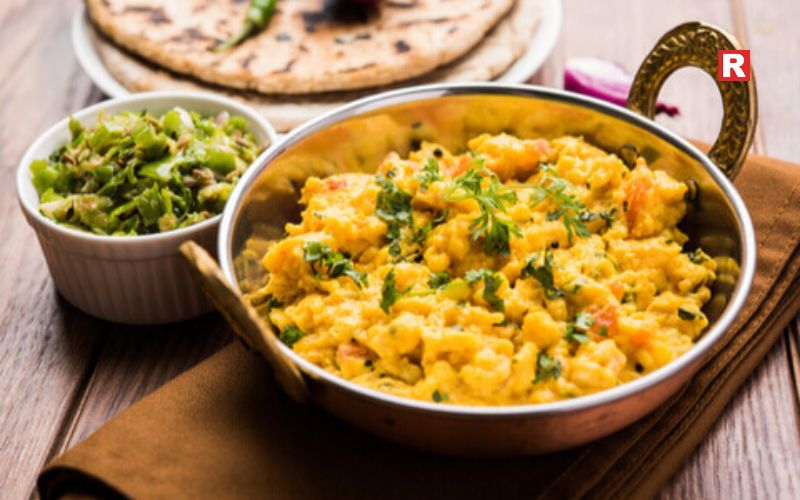
Zunka is a simple yet powerful dish from Maharashtra. It is a dry preparation made using besan, onion, garlic, green chillies, and basic spices. The texture is crumbly and rustic. The flavour is strong and satisfying. Zunka gained popularity during hard times because it was affordable and easy to prepare. It is usually eaten with jowar or bajra bhakri and raw onion. The combination is filling and nourishing. Over time, zunka bhakri became a symbol of Maharashtrian pride. Today, it is served in traditional restaurants and during social and political events.
- Dry besan-based dish
- Budget-friendly food
- Strong rural roots
- Cultural symbol of Maharashtra
7. Sabudana Khichdi
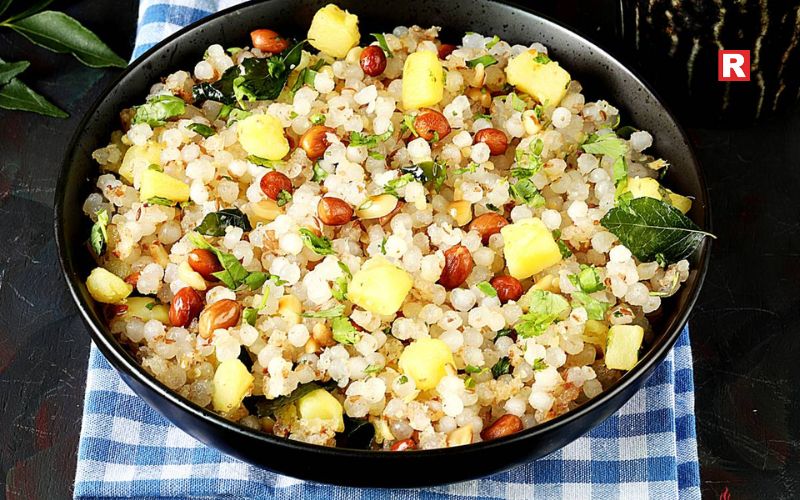
Sabudana khichdi is one of the most popular fasting foods in Maharashtra. It is made using soaked sabudana, roasted peanuts, cumin seeds, green chillies, and boiled potato. The dish is light but gives good energy. It is commonly eaten during fasting days like Ekadashi and Navratri. Many people also enjoy it for breakfast on regular days. The key to good sabudana khichdi is proper soaking and slow cooking. When done right, each pearl remains soft and separate. The dish is simple, comforting, and easy on the stomach.
- Fasting-friendly dish
- Gluten-free
- Light yet filling
- Popular breakfast option
8. Puran Poli

Puran Poli is a traditional Maharashtrian sweet made during major festivals. It is especially prepared on Gudi Padwa, Holi, and Diwali. The filling is made from cooked chana dal and jaggery. Cardamom and nutmeg add aroma and warmth. This sweet filling is stuffed into soft wheat dough and rolled into a flatbread. It is cooked on a tawa and served hot. Puran poli is usually eaten with ghee or milk. It stands for celebration, family bonding, and tradition. Every Maharashtrian festival feels incomplete without this dish.
- Festive dessert
- Made with dal and jaggery
- Soft and aromatic
- Strong cultural value
Why Maharashtrian Veg Food Is Unique
Maharashtrian vegetarian food is deeply connected to the land. Coastal areas use coconut and rice. Dry regions use millets and pulses. The food respects seasons and local produce.
Spices are used carefully. Goda masala gives warmth. Coconut and peanuts add richness. Jaggery balances heat. Meals are simple but satisfying. This cuisine proves that vegetarian food can be bold without being heavy.
Also check: Top Famous Veg Street Foods in Kolkata That You Must Try Once in Your Life
Try These Veg Soups in These Freezing Winters
Top Famous Veg Dishes to Try This Christmas from Around the World
Happy Eating!
Maharashtra’s famous vegetarian food is more than something to eat. Each dish carries meaning and memory. Simple street food like vada pav shows the fast pace of city life. Festive dishes like puran poli represent celebration, family, and tradition. Every recipe has grown over time and is linked to local customs and seasons. Maharashtrian vegetarian cuisine focuses on balance. The flavours are clear and natural. Meals are filling but never heavy. Ingredients are local and familiar. This makes the food honest and comforting. It suits both daily meals and special occasions. For anyone who wants to understand real Indian flavours, this cuisine offers a perfect starting point. It does not rely on richness alone. It values simplicity and taste. Maharashtrian veg food leaves a lasting impression because it feels warm, rooted, and deeply satisfying.

Christmas food stands for warmth, comfort, and time spent together. For many families, it is also deeply connected to tradition. While meat-based dishes often receive attention, vegetarian Christmas food has a strong place in celebrations across the world. In many countries, festive tables are filled with vegetarian dishes that are baked, steamed, slow-cooked, or served as sweets. These recipes are not new. They have been passed down through generations and hold cultural value. Across Europe, Asia, and the Americas, vegetarian food is part of Christmas customs. Vegetable roasts, rice dishes, dumplings, casseroles, and puddings are prepared with care. These dishes bring rich flavours without the need for meat. They also suit long festive meals and large family gatherings.
For Indian readers, global vegetarian Christmas dishes feel both fresh and familiar. Many recipes use simple ingredients like potatoes, rice, lentils, mushrooms, dairy, and seasonal spices. These are already common in Indian kitchens. This makes the dishes easy to follow and comfortable to try at home. Vegetarian Christmas food also allows flexibility. It can be adapted to local tastes. Trying global veg dishes during Christmas adds variety to the menu while keeping the festive spirit alive.
Discover Top Famous Veg Dishes to Try This Christmas
1. Pierogi with Sauerkraut and Mushrooms – Poland

Pierogi are traditional Polish dumplings. During Christmas Eve, meat is avoided, and vegetarian pierogi become the star dish. These dumplings are stuffed with sauerkraut, mushrooms, or mashed potatoes. They are boiled and sometimes lightly pan-fried in butter. The taste is mild, tangy, and comforting. Mushrooms add depth, while fermented cabbage gives a festive sharpness. This dish is a reminder that Christmas food does not need to be rich to be special. Simple ingredients and slow preparation make it meaningful.
Read more: 8 Famous Vegetarian Dishes of Uttar Pradesh and Their Timeless Legacy
5 Cities That Serve the Best Non-Vegetarian Street Food
2. Potato Gratin – France

Potato gratin is a classic French Christmas side dish. Thin slices of potatoes are layered with garlic, cream or milk, and cheese. The dish is baked until golden and soft inside. It is creamy, warm, and perfect for cold winter nights. In many French homes, potato gratin is served alongside vegetables and bread during Christmas meals. Indian readers often connect with this dish because potatoes and dairy are common in festive cooking. It pairs well with salads or baked vegetables.
3. Vegetarian Lasagna – Italy

Christmas in Italy is a family affair, and lasagna is a key part of the celebration. Vegetarian lasagna is layered with pasta sheets, tomato sauce, grilled vegetables, béchamel sauce, and cheese. Vegetables like spinach, zucchini, mushrooms, and bell peppers are commonly used. The dish is baked slowly and served in large portions for sharing. It is filling, colourful, and perfect for big gatherings. For Indian families hosting Christmas lunches, veg lasagna works well as a main dish that everyone can enjoy.
4. Stuffed Peppers – Spain

In Spain, stuffed vegetables are popular during festive meals. Bell peppers are filled with rice, vegetables, nuts, herbs, and sometimes cheese. They are baked until soft and slightly charred. The flavours are fresh and balanced. This dish is lighter compared to heavy baked meals but still feels special. Stuffed peppers are also easy to customise. Indian spices like cumin or paprika can be added without changing the core recipe.
5. Mushroom Wellington – Global Christmas Favourite

Mushroom Wellington is a modern vegetarian Christmas dish popular in many countries. It is inspired by the traditional Beef Wellington but uses mushrooms as the main ingredient. A mix of mushrooms, garlic, herbs, and sometimes spinach is wrapped in flaky puff pastry and baked until crisp. The inside stays juicy and flavourful. This dish is often the centrepiece of a vegetarian Christmas table. It looks festive and tastes rich. For urban Indian homes, this has become a popular Christmas party dish.
Know more: What is Kimchi? Top Veg Kimchi You Can Try at Home
6. Vegetarian Tamales – Mexico

Tamales are a Christmas tradition in Mexico. Families gather to prepare them together. Corn dough is filled with vegetables, beans, cheese, or chillies. The mixture is wrapped in corn husks and steamed. Vegetarian tamales are soft, mildly spiced, and comforting. They are eaten during Christmas and New Year celebrations. The use of corn and steaming makes this dish feel wholesome. It is similar to Indian steamed snacks, which makes it relatable for Indian food lovers.
7. Vegetarian Bibimbap – South Korea

Bibimbap is a rice-based dish topped with seasonal vegetables, fermented sauces, and sometimes tofu. While it is eaten year-round, vegetarian versions are popular during winter family meals. The dish includes spinach, carrots, mushrooms, bean sprouts, and pickled vegetables. Everything is mixed together before eating. Bibimbap is nutritious, colourful, and balanced. It reflects how festive food can also be healthy. This appeals strongly to modern Indian readers who prefer light but satisfying meals.
8. Plum Pudding – United Kingdom

No Christmas list is complete without dessert. Plum pudding is a classic British Christmas sweet. It is made with dried fruits, flour, spices, and vegetarian suet alternatives. The pudding is steamed for hours and allowed to mature. It is served warm with custard or cream. The rich flavours of cinnamon, nutmeg, and dried fruits make it perfect for winter. Indian readers often enjoy this dessert because it feels similar to festive fruit-based sweets.
Why Vegetarian Dishes Are Popular at Christmas
Vegetarian Christmas food is gaining popularity across the world. More people are choosing plant-based meals for health, sustainability, and personal beliefs. Vegetarian dishes are also easier to share and lighter on the stomach during long celebrations. In India, where vegetarian food is widely accepted, global veg Christmas dishes fit naturally into festive menus.
Most vegetarian Christmas dishes use seasonal and comforting ingredients. These include potatoes, mushrooms, rice, lentils, root vegetables, dairy, nuts, dried fruits, and winter spices. These ingredients are affordable, easy to find, and suitable for large family meals.
Also check: High Protein Indian Meals You Should Try
Try These Veg Soups in These Freezing Winters
Top Famous Veg Street Foods in Kolkata That You Must Try Once in Your Life
Final Thoughts
Christmas food is not only about meat. Around the world, vegetarian dishes hold a special place in festive traditions. These dishes bring comfort, warmth, and rich flavours to the table. Many families choose vegetarian food during Christmas for cultural, health, or personal reasons. In countries like the UK, vegetarian roasts are served with vegetables and gravy. In Italy, vegetable lasagna is a popular Christmas meal enjoyed with family. Mexico celebrates Christmas with vegetarian tamales made from corn and vegetables. Each dish reflects local ingredients and long-standing traditions. For Indian households, these global vegetarian dishes feel familiar. They often use vegetables, grains, dairy, and spices that are already part of everyday cooking. At the same time, they add a new festive touch to Christmas celebrations. Trying vegetarian Christmas dishes from different countries adds variety to the menu. It also connects people through shared food traditions. A global vegetarian dish can make Christmas meals more meaningful and memorable.

India’s beverage market is entering a new growth phase, powered by 23 million new legal-age consumers each year and rapidly evolving tastes. From premium gin and craft mixers to new-age, low-alcohol and functional drinks, experimentation is rising fast. Health consciousness, premiumization, and local flavors are reshaping choices. Digital-first brands and experiential consumption are accelerating adoption. These shifts set the stage for six defining trends to watch in 2026.
A shift toward a sharper, more defined cocktail landscape: As experimentation matures, cocktail programs are moving from novelty to clarity. Bartenders are refining flavor profiles, techniques, and storytelling. The result is a more intentional, recognizable, and elevated cocktail landscape in 2026.
“As 2025 draws to a close, the cocktail world resonates with a symphony of flavours, presenting a full-bodied experience that tantalizes the senses. Bartenders have masterfully explored an array of combinations, balancing sweet, bitter, sour, salty, umami, and spicy notes to craft cocktails that cater to every palate,” shared Yangdup Lama, Co-Founder, India Bartender Show and Sidecar by adding that as we look ahead there's hope for a more defined and sophisticated landscape in the coming year, where innovation and tradition will continue to intertwine in pursuit of the perfect sip.
Agave Spirits Set to Take India by Storm: India’s beverage scene has evolved from casual, everyday drinking to a taste for premium and exceptional spirits. Consumers are increasingly seeking quality, craft, and unique experiences. With innovation, experimentation, and growing sophistication, the industry is poised for continued dominance in the years ahead.
“Agave spirits are rapidly emerging as one of the most exciting categories in India. The growth rate is phenomenally high, at almost triple digits. Its versatility and depth of flavour are capturing the imagination of both new and experienced drinkers alike, making it a category that’s here to stay,” shared Rakshay Dhariwal, Founder and Managing Director of Maya Pistola Agavepura and PassCode Hospitality.
At the same time, consumers are gravitating towards premium, craft-driven experiences that combine exceptional taste with authenticity and purpose. Alongside this rise, there’s a growing awareness of sustainability and conscious drinking, with people looking for brands that offer not just exceptional spirits but experiences they can feel good about.
Craft Innovation on the Rise: India’s gin and rum market is expanding rapidly, driven by growing interest in premium and craft variants. Consumers are gravitating toward unique botanicals, artisanal techniques, and locally inspired flavors. Craft producers are redefining standards, making cocktails more inventive and experiences more memorable. The trend points to a vibrant, flavor-forward future for these spirits.
“Gin in India has matured; it’s moved past the initial boom into a phase of steady, confident growth. Consumers know what they like, and Indian gins have earned their place on that list. Rum, on the other hand, feels like it’s having its own craft revolution. You’re seeing distilleries experiment with everything from jaggery-based rums to agricole styles, and bartenders are finally giving rum the kind of creative attention that gin once had. The bigger shift, though, is in how people are drinking it, not just with cola, but with water, soda, or even neat,” pointed Anand Virmani, Co-Founder & Master Distiller, Nao Spirits & Beverages.
India’s Beer Boom: India’s beer market is experiencing strong growth, driven by young, urban consumers and rising disposable incomes. Valued at approximately ₹444.6 billion in 2024, the market is projected to reach ₹802.5 billion by 2033, growing at a CAGR of around 6.7%. Annual consumption is also set to rise sharply, from about 350 million cases in 2022 to nearly 596 million by 2030, as per reports. While lagers continue to dominate, premium and craft beers are gaining traction, reshaping the landscape toward higher quality and greater variety.
“India is adding 23 million new legal-age consumers every year, giving it a growth runway that mature markets like the US and UK no longer have. With a young population and rapidly shifting attitudes, the country is only at the beginning of its beer curve and is now at the centre of a lager renaissance. Craft beer is also evolving from a taproom-led culture to scaled production, supported by globally benchmarked brewing equipment now manufactured in India itself,” mentioned Narayan Manepally, Co-Founder and CEO of Geist Brewing Co.
Bar Scene Expand Beyond Metro: "When I was growing up in Indore, we didn't really talk about cocktails. We went out for dinner, maybe had a drink, but there wasn't this sense of craft or storytelling behind it. That has changed now. People want to experience that same creativity and care in their own neighbourhoods, not just when they travel, and that mindset is shaping everything from how bars are designed to the kind of menus chefs create,” added Vedant Newatia, Founder and Head Chef, Atelier V & Masala Code.
Across India, farm-to-table dining, local ingredients, and single-cuisine menus are all part of this larger shift. But even with this growing appetite for experimentation, people still come back to the classics, to comfort and familiarity.
Low-ABV Spirits Lead: Bartenders are reworking classics into lighter serves, and menus are giving more space to low-alcohol cocktails — showcasing a clear shift towards low-ABV options.
“If there’s one word I would use to describe the 2025 spirit landscape, it would be moderation. Along with moderation, people have also started looking inwards, choosing homegrown labels over imported ones. It’s given a real push to India’s craft spirits movement. If this year is any indication, the years ahead will continue to celebrate craft and authenticity, shaping a new kind of drinking culture that’s proudly and distinctively Indian,” commented Adarsh Gadvi, Founder, Davana Vermouth Indica.
Hence, there’s no denying that India’s beverage scene is at an inflection point, with experimentation, craftsmanship, and conscious choices ushering in a new era of drinking. From premium gins and agave spirits to low-ABV cocktails and craft beers, consumers are seeking quality, authenticity, and memorable experiences. 2026 promises a vibrant, innovative, and distinctly Indian drinking landscape, celebrating creativity, tradition, and the pursuit of the perfect sip.

Eggs are an important part of everyday food in many Indian households as they offer good nutrition at a low cost. They are simple to use. They cook quickly. From boiled eggs in lunchboxes to omelettes for breakfast and egg curries for dinner, eggs fit easily into daily meals. They suit all age groups. They also suit different eating habits and budgets. Over the years, the way people buy eggs has started to change. Earlier, price was the main factor. Today, buyers look at more than just cost. Hygiene has become a key concern. People want eggs that are clean and safely handled. Nutrition also matters more now. Families prefer eggs that are fresh and rich in protein.
Another growing concern is how eggs are produced. Many consumers want to know where their food comes from. They care about farm practices. They care about animal welfare. They care about quality checks and packaging. Because of this shift, branded eggs are gaining popularity across India. These brands offer better handling and clearer information. They follow set quality standards. They also provide consistency in taste and freshness. For many households, branded eggs now feel like a safer and smarter daily choice.
Discover Top Egg Brands in India
1. Eggoz

Eggoz is one of India’s well-known modern egg brands. The brand was started with a clear purpose. To make eggs safer for daily use. To improve quality and freshness. Eggoz follows a strong farm-to-home system. Eggs are sourced directly from partner farms and reach stores within 24 hours of laying. This process helps maintain taste and nutrition. The brand focuses on hygiene and careful handling at every stage. Eggoz eggs are clean and well packed. They are easy to find on quick commerce and online grocery platforms. The brand has a strong presence in major cities. It is especially popular among young families and working professionals who value convenience, freshness, and trusted food choices.
Why Eggoz Stands Out
- Antibiotic-free eggs
- Vitamin D and protein-rich variants
- QR-based traceability in select packs
- Strong presence in metro cities
Read more: Top Masala Tea Brands in India: Spices, Flavours, and Comfort in Every Cup
Best Ghee Brands in India: A Complete Guide to Taste, Purity, and Health
2. Nutricharge Eggs by IB Group

Nutricharge is a well-known name in India’s poultry industry. The brand is backed by IB Group, one of the country’s largest poultry companies. Nutricharge eggs are developed with a focus on everyday nutrition. They are enriched with essential vitamins and minerals that support regular dietary needs. These eggs are made for families who want more nutrition without paying a high premium. The brand maintains consistent quality and wide availability across many cities and towns. Nutricharge eggs suit daily consumption. They are especially preferred by households with children and active adults. For those looking for value, nutrition, and trust, Nutricharge offers a practical and reliable choice.
Key Features
- Fortified with Vitamin D, B12, and Omega-3
- Good for growing children and active adults
- Strong distribution in Tier 2 and Tier 3 cities
3. Happy Hens
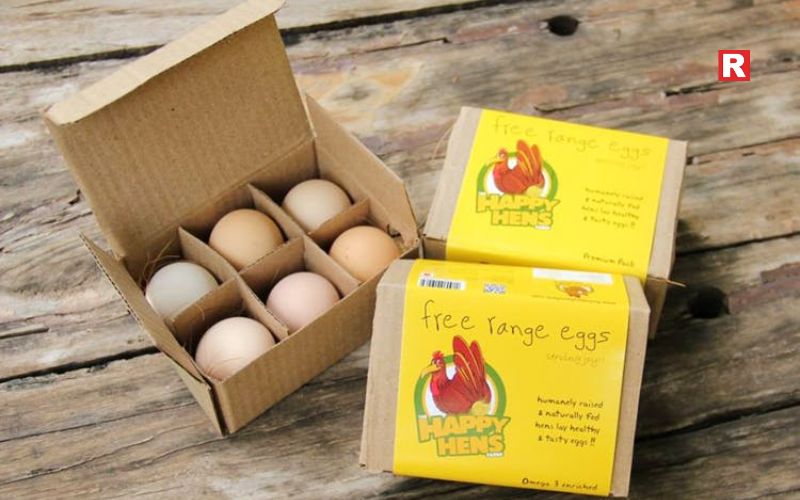
Happy Hens is a brand that focuses on ethical and responsible farming. It is best known for its free-range and organic eggs. The hens are not kept in cages. They are allowed to move freely in open spaces. They are fed natural and organic feed. This approach helps improve egg quality and supports better animal care. The brand follows clean farming practices and clear sourcing methods. Happy Hens has built a strong presence in major urban markets. It is especially popular in cities like Mumbai, Bengaluru, and Delhi. The brand appeals to consumers who value clean eating, sustainability, and mindful food choices in their daily diets.
Why People Choose Happy Hens
- Certified organic eggs
- Cage-free and cruelty-free farming
- Rich yolk colour and natural taste
4. Licious Eggs

Licious is one of India’s most trusted fresh food brands. The brand is widely known for meat and seafood. It has also built a strong presence in the egg category. Licious follows a controlled sourcing system. It uses a cold-chain process to maintain freshness and safety. Eggs are carefully selected and packed under hygienic conditions. The brand focuses on quality at every stage. This ensures consistent taste and freshness. Licious eggs are delivered fresh to homes in major cities. They are a preferred choice for urban households. Families and working professionals trust the brand for its convenience, clean handling, and premium grocery experience with assured quality.
Brand Strengths
- Strict quality checks and cold-chain handling
- Clean, hygienic, and tamper-proof packaging
- Strong presence in major Indian cities
- Trusted brand for protein-rich foods
Know more: Benefits of Consuming Pink Salt and Top Pink Salt Brands in India
5. Fresho Eggs by Bigbasket

Fresho is the in-house brand of Bigbasket. It is designed to meet the needs of modern urban shoppers. The brand focuses strongly on freshness and convenience. Fresho eggs are sourced from trusted farms that follow basic quality checks. The eggs are cleaned and graded before packing. This helps maintain hygiene and uniform size. Clear packaging and date labels make selection easy. Fresho eggs are delivered through Bigbasket’s online platform. This suits consumers who prefer doorstep delivery. The brand fits well into busy daily routines. It is a reliable choice for households that want consistent quality, easy access, and stress-free online grocery shopping.
What Makes Fresho Popular
- Easy online availability
- Multiple options like white, brown, and cage-free eggs
- Clear packaging and expiry dates
6. Humpy A2 Organic Eggs

Humpy Farms is widely known for its organic dairy products. The brand follows the same values in its egg range. Humpy eggs come from desi hens raised on certified organic farms. The birds are fed natural feed without chemicals or artificial additives. This helps maintain the natural quality of the eggs. The brand focuses on traditional farming methods and clean food practices. Humpy eggs are often preferred by consumers who believe in simple, natural diets. They are popular among people who follow traditional Indian food habits and holistic wellness lifestyles. For those seeking organic and naturally produced eggs, Humpy Farms offers a trusted option.
Key Highlights
- Organic and desi eggs
- Focus on natural farming
- Popular among health-conscious buyers
Brown Eggs vs White Eggs: Which Is Better?
This is a common question in India. The colour of the egg shell does not decide nutrition. Brown eggs come from different hen breeds. White eggs come from others. Free-range and organic eggs may have slightly higher nutrient levels. But regular eggs are also healthy if sourced properly.
What matters more is:
- The hen’s diet
- Living conditions
- Farm hygiene
Also check: Top Premium Dark Chocolate Brands in India
Dal Baati Churma: The Famous Comfort Dish of the Indian Subcontinent
Best Organic Honey Brands in India: Pure, Natural, and Worth Your Money
Stay Healthy!
Eggs may look like a basic food item. But the choice of eggs plays an important role in daily health. In recent years, Indian consumers have started paying closer attention to what they eat. This shift has changed the way eggs are bought across the country. Well-known brands such as Eggoz, Nutricharge, Happy Hens, Licious, Fresho, and Humpy are reshaping the egg market in India. These brands focus on food safety. They follow hygiene standards. They offer better handling and packaging. Many of them also provide options like nutrient-rich, cage-free, or organic eggs. Today, buyers can choose eggs based on their needs. Some prefer affordable eggs for daily use. Others look for premium or organic options. Both are now easily available. Price is no longer the only factor. Quality matters. Freshness matters. Trust matters. The next time eggs are added to the shopping list, looking at the brand and the pack can make a real difference to everyday nutrition.

Masala tea is more than just a drink in India. It is warmth, aroma, and culture poured into a cup. For decades, this spiced tea has been part of everyday life. From bustling railway stations to quiet homes, from office tables to street corners, masala chai connects people across the country. The magic of masala tea lies in its simplicity. Tea leaves, milk, sugar, and a mix of aromatic spices create a flavour that is rich and comforting. Ginger, cardamom, cloves, cinnamon, and black pepper are some of the most common ingredients. Each spice adds its own touch. Some soothe, some energize, and all bring warmth to your day.
In India, masala tea is not just a drink. It is a ritual. Many enjoy it during mornings, evenings, or even after meals. The aroma of spices fills the air and creates a sense of comfort that no other beverage can match. Over time, several brands have mastered the art of making masala tea. They offer blends that suit every taste and preference.
Why Masala Tea is Loved
Masala tea has won hearts for many reasons. One is its taste. The combination of tea leaves and spices gives a bold, refreshing, and slightly sweet flavour. It is strong enough to energize but smooth enough to enjoy slowly.
Another reason is health. Many spices used in masala chai have medicinal benefits. Ginger can improve digestion and fight cold. Cardamom helps with metabolism and adds a sweet aroma. Cloves and black pepper can improve immunity and circulation. This makes masala tea a drink that is both comforting and beneficial. Masala tea also carries a cultural connection. Every region has its version. In Maharashtra, chai is often strong and aromatic. In Gujarat, it may be slightly sweet with more spices. In North India, ginger and cardamom dominate. This regional diversity makes exploring masala tea exciting.
Explore Top Masala Tea Brands in India
1. Tata Tea Premium
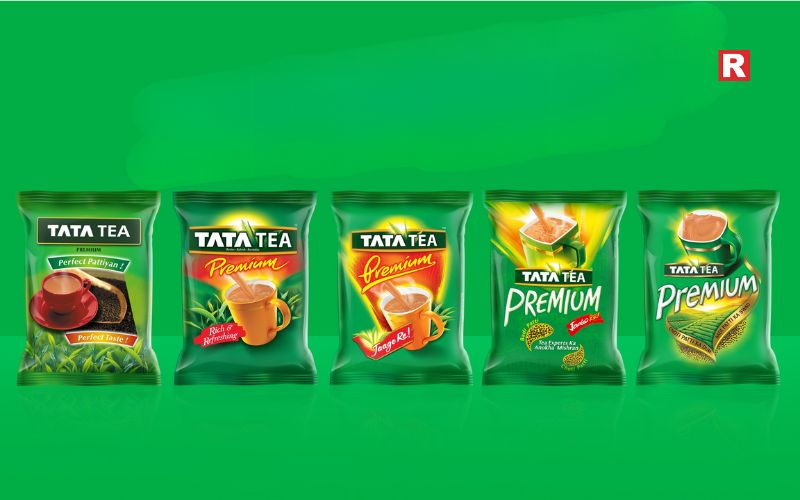
Tata Tea has been part of Indian homes for many decades. It is a brand built on trust and everyday comfort. Tata Tea Premium is known for its strong taste and bold character. It suits Indian mornings well. The tea wakes the senses and sets the tone for the day. The masala blend is warm and familiar. Spices like ginger and cardamom add depth without overpowering the tea. The flavour feels balanced and consistent. Tata Tea Premium works well for families with different taste choices. It pairs easily with milk and sugar. The aroma feels comforting and homely. Its wide availability makes it a daily staple across cities and towns. From small kitchens to office pantries, it fits everywhere. Tata Tea Premium reflects routine, reliability, and the simple joy of a well-made cup of masala chai.
Read more: What is Kimchi? Top Veg Kimchi You Can Try at Home
6 Benefits of Drinking Black Coffee
2. Brooke Bond Red Label Masala Tea

Brooke Bond Red Label is one of India’s most recognised tea brands. It has been trusted across generations. Red Label masala tea is known for its strong and full-bodied taste. The flavour is bold and instantly familiar. The spice mix adds warmth and aroma to every cup. It suits people who enjoy a powerful chai experience. The tea leaves brew well and hold their strength with milk. Red Label masala tea works for quick tea breaks and long conversations alike. It is often served to guests without second thought. The taste feels comforting and reliable. Many Indian households associate it with togetherness and routine. The aroma fills the room quickly. Red Label continues to remain relevant because it delivers what people expect. A strong cup. A rich taste. And the feeling of home.
3. Society Tea Masala
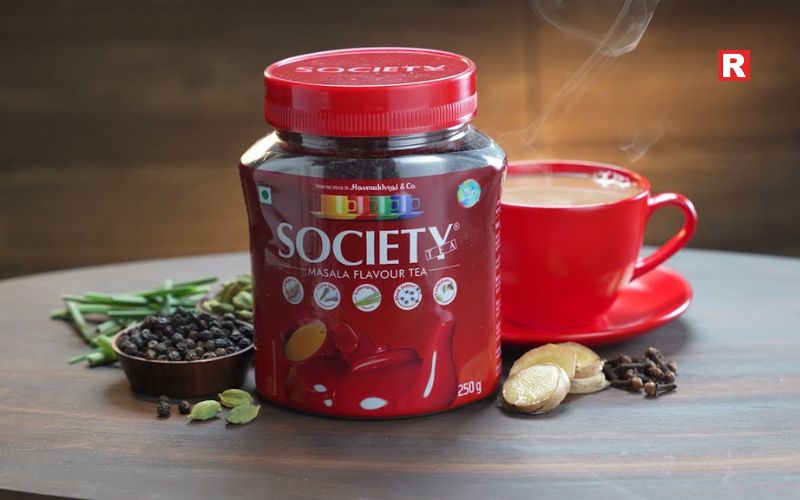
Society Tea holds a special place in Maharashtra. It is a brand with a loyal following. Society Tea masala is known for its distinct aroma and smooth finish. The flavour feels strong but never harsh. The spice balance is carefully crafted. It enhances the tea without masking its natural taste. Society Tea focuses on freshness at every step. The tea leaves feel rich and clean. The masala blend suits daily consumption. It works well for early mornings and evening breaks. Many tea lovers prefer it for its consistent quality. The taste remains stable across batches. Society Tea masala pairs well with snacks like biscuits or farsan. It reflects the everyday chai culture of western India. Simple. Honest. And full of character. For many households, Society Tea is not a choice. It is a habit.
4. Wagh Bakri Masala Tea

Wagh Bakri is a well-loved tea brand across Gujarat and beyond. It stands for quality and care. Wagh Bakri masala tea offers a rich and smooth experience. The flavour feels rounded and comforting. The spice mix is warm but not sharp. It blends easily with milk and sugar. The tea leaves brew evenly and release a pleasant aroma. Wagh Bakri focuses on balance. Neither the tea nor the spices dominate the cup. This makes it suitable for regular drinking. Families often choose it for its gentle strength. The taste appeals to different age groups. It feels refined yet familiar. Wagh Bakri masala tea fits both relaxed mornings and quiet evenings. It reflects consistency and trust. A cup that feels thoughtful. And one that keeps people coming back.
Know more: 7 Desi Alternatives to Oatmeal for Weight Loss
5. Organic India Masala Chai

Organic India masala chai is made for mindful tea drinkers. The brand focuses on purity and wellness. It uses organic tea leaves and natural spices. The ingredients are carefully sourced. The taste feels clean and soothing. The spice mix is gentle and aromatic. It supports digestion and overall comfort. Organic India avoids artificial flavours. This makes the tea feel light and natural. The flavour does not feel heavy. It suits people who prefer softer masala notes. The tea works well for slow sipping. It is often enjoyed during calm moments of the day. Health-conscious consumers trust the brand for its values. Organic India masala chai proves that taste and wellness can go together. It offers warmth without excess. And flavour without compromise. A cup that feels thoughtful and balanced.
6. Tea Trunk Masala Chai
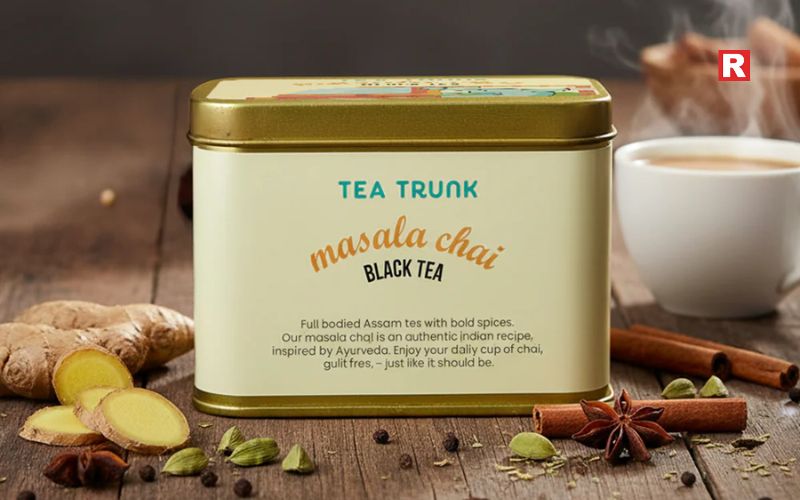
Tea Trunk represents modern artisanal tea culture. It focuses on quality and craft. Tea Trunk masala chai is a premium blend. It combines fine tea leaves with traditional Indian spices. The flavour feels layered and rich. Each sip reveals depth. The spices are bold yet refined. The tea feels fresh and aromatic. Tea Trunk sources its ingredients from select gardens. This ensures consistency and quality. The masala chai suits those who enjoy slow, mindful brewing. It is often chosen for special moments. The experience feels indulgent but authentic. Tea Trunk brings a contemporary touch to a classic drink. It respects tradition while adding finesse. For tea lovers seeking something unique, this masala chai stands out. It turns a simple cup into a memorable ritual.
How to Enjoy Masala Tea Like a Pro
Brewing masala chai is an art. Here are some tips to get the perfect cup:
- Use fresh water and good quality milk.
- Adjust spice mix and sugar according to taste.
- Let the tea simmer for a few minutes to release full aroma.
- Pair with snacks like biscuits, namkeen, or pakoras for a true chai-time experience.
- Experiment with regional variations—add more ginger, cardamom, or even fennel seeds.
A well-brewed cup of masala tea is more than a drink. It is a sensory experience. The aroma fills the room, the warmth comforts the hands, and the flavours dance on the palate.
Also check: Try These Veg Soups in These Freezing Winters
Top 10 Vegan Street Foods in India Every Indian Loves
Best Ghee Brands in India: A Complete Guide to Taste, Purity, and Health
Find Your Favourite Brew
India’s masala tea scene is rich and diverse. Each brand offers something special. From traditional favourites like Red Label and Society Tea to premium blends from Tea Trunk and Organic India, there is a chai for every taste. Finding your favourite may take some tasting, but every cup is worth it. Masala tea is not just about flavour. It is culture, comfort, and care in a cup. Whether for mornings, evenings, or gifting to loved ones, these top masala tea brands deliver quality, aroma, and the true taste of India. So, brew a cup, take a moment, and enjoy the magic of masala chai. Every sip tells a story of tradition, craftsmanship, and the love of tea that India has cherished for generations.

Winter in India has its own charm. Mornings are foggy. Nights are cold. The body naturally craves warm and nourishing food. This is the season when digestion slows down and immunity needs extra care. A hot bowl of vegetable soup fits perfectly into this routine. It is light. It is comforting. It is full of nutrients.
Vegetable soups can be a complete meal on cold days. They keep the body warm. They help in hydration. They are easy to digest and suitable for all age groups. From busy professionals to elderly family members, veg soups work for everyone during winter. In Indian homes, soups are slowly becoming a winter staple. Seasonal vegetables are easily available. Indian spices add warmth. And the recipes are simple enough to make on weekdays.
Here are some of the best vegetarian soups to try this winter.
1. Tomato Soup
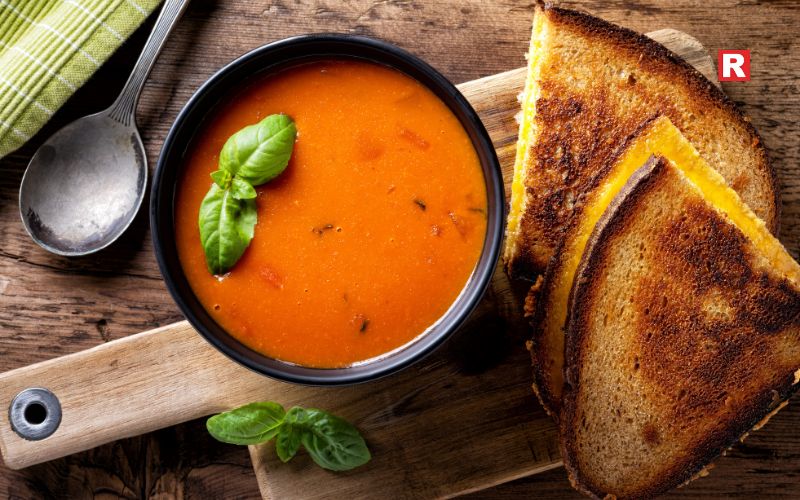
Tomato soup is a classic winter favourite. It is light but flavourful. Tomatoes are rich in lycopene, an antioxidant that supports immunity and heart health. During winter, fresh tomatoes are easily available and taste better. A warm bowl of tomato soup helps fight seasonal cold. Adding garlic, black pepper, and a pinch of cumin increases its warming effect. Many Indian households prefer a slightly spicy version rather than the sweet café-style soup. Tomato soup works well as an evening snack or a light dinner. It pairs well with whole wheat toast or roasted makhana.
Read more: 5 Cities That Serve the Best Non-Vegetarian Street Food
7 Desi Alternatives to Oatmeal for Weight Loss
2. Sweet Corn Vegetable Soup

Sweet corn soup is one of the most loved winter soups in India. It is comforting and filling. Corn provides natural sweetness and energy, which helps the body stay active in cold weather. This soup usually includes carrots, beans, and spring onions. These vegetables add fibre and vitamins. It is easy on the stomach and suitable for children and elderly people. Sweet corn vegetable soup is especially popular during cold evenings. It is often served hot with a dash of pepper and a little ginger for extra warmth.
3. Mixed Vegetable Soup
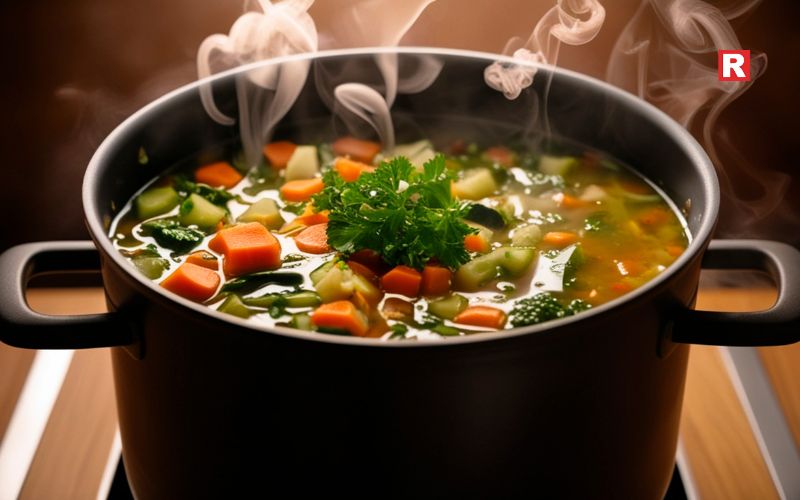
Mixed vegetable soup is a nutrition-packed winter bowl. It uses seasonal vegetables like carrot, cabbage, cauliflower, beans, peas, and spinach. Winter vegetables are fresher and richer in nutrients. This soup is high in fibre, vitamins, and minerals. It supports digestion and helps keep immunity strong. It is ideal for those looking for a healthy daily meal option. For Indian kitchens, mixed vegetable soup can be flavoured with bay leaf, pepper, garlic, and mild Indian spices. It can be enjoyed as a light lunch or dinner.
4. Mushroom Soup
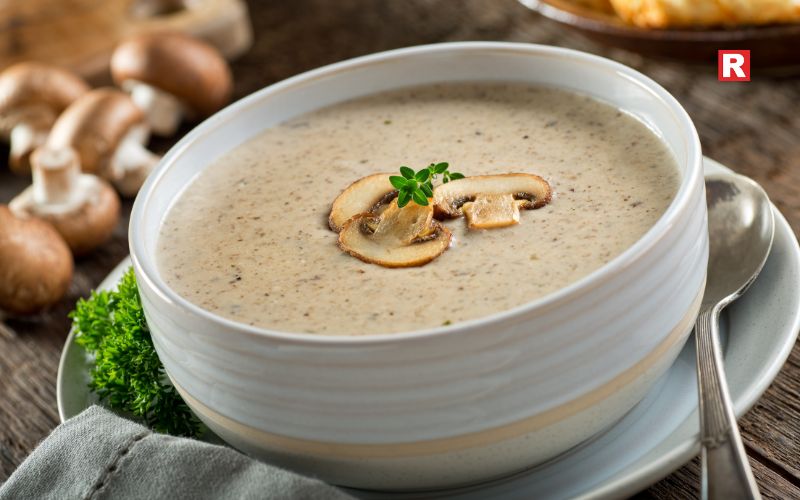
Mushroom soup is rich and satisfying. Mushrooms are high in protein, B vitamins, and antioxidants. They help keep you full for longer and support gut health. During winter, mushroom soup feels extra comforting. Its earthy flavour works well with garlic and pepper. Many people prefer a slightly thick consistency without heavy cream. This soup is a good choice for those looking for a hearty yet vegetarian winter meal. It works well for dinner, especially when paired with multigrain bread.
5. Spinach Soup (Palak Soup)

Spinach soup is light but highly nutritious. Spinach is rich in iron, vitamin C, and folate. These nutrients help fight winter fatigue and weakness. Palak soup is easy to digest and soothing for the stomach. It is ideal for people recovering from cold or flu. Adding garlic, cumin, and pepper enhances both taste and health benefits. In Indian households, palak soup is often preferred over heavy meals during winter nights. It keeps the body warm without feeling heavy.
Know more: 5 Ways to Use Garden Cress Seeds (Halim) for Stronger Hair and Bones
6. Pumpkin Soup

Pumpkin soup is naturally creamy and mildly sweet. Pumpkin is rich in beta-carotene, which supports eye health and immunity. It is also low in calories and high in fibre. This soup does not need cream to taste rich. Slow cooking brings out the natural flavour of pumpkin. Ginger and pepper add warmth and depth. Pumpkin soup is perfect for cold winter nights. It is filling yet light and suitable for those watching their weight.
7. Lentil Vegetable Soup

Lentil vegetable soup is one of the most nourishing winter soups. Lentils provide plant-based protein and iron. When combined with vegetables, they create a complete meal. This soup keeps the body warm for longer. It is ideal for people who need sustained energy during winter days. Lentil soups are also great for digestion. Indian-style lentil vegetable soup can include moong dal or masoor dal with carrots, tomatoes, and mild spices. It is wholesome and comforting.
Why Veg Soups Are Ideal for Indian Winters
Vegetable soups suit the Indian climate and lifestyle. They use local and seasonal produce. They are budget-friendly and easy to prepare. Most importantly, they support the body during seasonal changes.
Hot soups improve digestion, which tends to slow down in winter. They also help maintain hydration, as people often drink less water in cold weather. Soups provide fluids in a warm and comforting form. Vegetarian soups are also versatile. They can be made spicy or mild. Ingredients can be adjusted based on availability and taste. This makes them suitable for everyday meals.
Health Benefits of Eating Veg Soups in Winter
Veg soups help boost immunity. Seasonal vegetables are rich in vitamins and antioxidants. Warm liquids soothe the throat and reduce cold symptoms. They are easy on the stomach and help reduce bloating. Soups also help in weight management, as they are filling but low in fat. For working professionals, soups make quick and healthy dinners. For families, they are a great way to include more vegetables in daily meals.
- Use fresh, seasonal vegetables.
- Avoid excess cream or butter.
- Add Indian spices like ginger, garlic, and pepper.
- Use homemade vegetable stock when possible.
These small steps make soups more nutritious and flavourful.
Also check: Top 5 States With the Spiciest Food in India
5 Foods to Avoid for Better Cholesterol
10 Dry Fruits You Should Eat After Menopause—Natural Boosters for Stronger Bones
For A Warm Winter!
Winter is the best season to enjoy vegetable soups. Cold mornings and chilly nights make the body crave warm food. A hot bowl of soup brings instant comfort. It also helps the body stay nourished and hydrated during winter. Vegetable soups suit Indian winters well. They are light on the stomach and easy to digest. Seasonal vegetables add natural flavour and higher nutrition. Tomato soup offers warmth and immunity support. Sweet corn soup feels filling and soothing. Mixed vegetable soup provides fibre and daily nutrition. Lentil vegetable soup works as a complete meal and keeps the body warm for longer. Veg soups are simple to prepare and budget-friendly. They fit easily into busy routines. They are suitable for all age groups. In Indian homes, soups are more than starters. They are a source of comfort, care, and warmth. Served hot, they make winter meals healthier and more satisfying.

Dal Baati Churma tells the story of India’s culture, climate, and traditions. The dish originated in Rajasthan, a desert state where life was tough and resources were limited. Despite its simple ingredients, it is rich in taste and has become one of the most loved dishes across the Indian subcontinent. Dal Baati Churma reflects how food in India is influenced by the land and lifestyle. Baati, a hard wheat ball, could be baked and stored for long periods. Dal, made with lentils and spices, provided protein and warmth. Churma, sweet and crumbly, balanced the flavours. Together, they created a complete and satisfying meal.
In a country where food changes every few kilometres, this dish stands out as a symbol of strength, hospitality, and warmth. It is filling, comforting, and perfect for sharing. From royal kitchens to village homes, Dal Baati Churma has travelled through generations without losing its essence. It remains a dish that brings people together, celebrates tradition, and honours the ingenuity of Indian cooking.
The Origin of Dal Baati Churma
Dal Baati Churma was born in the desert regions of Rajasthan. Life in the Thar Desert was tough. Water was scarce. Fresh vegetables were not always available. People needed food that could last long and give high energy. This is where baati came in. Hard wheat balls were baked until firm. They did not spoil easily. Warriors and travellers carried them on long journeys. Dal was cooked slowly using lentils that were easy to store. Churma added sweetness and balance. Many food historians believe Rajput warriors relied on this meal during battles. The use of ghee gave strength and stamina. Over time, what began as survival food became a royal delicacy.
Cultural Importance in Indian Homes
Dal Baati Churma holds a special place in Rajasthani culture. It is served during weddings, festivals, and family gatherings. No traditional Rajasthani thali feels complete without it. In villages, it is still cooked using traditional methods. Baatis are roasted over firewood or cow dung cakes. This gives them a smoky flavour that modern ovens cannot fully match. Serving Dal Baati Churma is also a sign of respect. Guests are offered extra ghee and warm dal. Refusing it is often seen as impolite. The dish reflects the generous spirit of Rajasthan.
Read more: 8 Famous Vegetarian Dishes of Uttar Pradesh and Their Timeless Legacy
5 Cities That Serve the Best Non-Vegetarian Street Food
Understanding the Three Elements
Dal Baati Churma is not one dish. It is three different preparations that come together beautifully.
Dal: The Heart of the Meal
The dal is thick, rich, and full of flavour. It is usually made using a mix of lentils. Common choices include toor dal, chana dal, moong dal, and urad dal. The lentils are slow-cooked until soft. Garlic, cumin, red chilli, and asafoetida are added. Ghee is used generously. The result is a dal that is spicy but balanced. Each household has its own dal recipe. Some like it very spicy. Others keep it mild. This flexibility makes the dish personal and comforting.
Baati: The Rustic Bread
Baati is made from coarse wheat flour. The dough is firm and shaped into round balls. Traditionally, baatis are baked in open fire or buried in hot sand. Once cooked, the baati is hard on the outside and soft inside. It is cracked open and soaked in desi ghee. This step is essential. Without ghee, baati feels incomplete. Baati represents simplicity. No yeast. No fermentation. Just flour, water, and patience.
Churma: The Sweet Balance
Churma adds sweetness to the meal. It is made by crushing baked baatis or using wheat flour dough fried in ghee. The crushed mixture is blended with jaggery or sugar. Dry fruits like almonds and raisins are added. Cardamom gives a light aroma. Churma balances the spicy dal and rich baati. It turns the meal into a complete experience.
Dal Baati Churma Across the Indian Subcontinent
While the dish belongs to Rajasthan, it is now popular across India. In Gujarat, baati is often served with a slightly sweeter dal. In Madhya Pradesh, the dish is a staple in many homes.
In cities like Delhi, Mumbai, and Jaipur, Dal Baati Churma is a star attraction in Rajasthani restaurants. It is also common at wedding buffets and food festivals. Modern kitchens now offer baked versions with less ghee. Some restaurants experiment with millet baatis or stuffed baatis. Yet, the traditional version remains the most loved.
Know more: Pani Puri Has Different Names in Different Indian States—Know Them All
Best Way to Serve Dal Baati Churma
Dal Baati Churma is a traditional Rajasthani dish best enjoyed fresh and hot. The baati, a round baked wheat ball, is first broken into pieces. Warm dal is poured over the baati, and a generous amount of ghee is added on top, making it rich and flavorful. Churma, the sweet element of the meal, is served separately. Many people enjoy eating small portions of churma between bites of dal and baati to balance the spice and savouriness. The meal is often accompanied by simple sides that enhance its taste and aid digestion:
- Garlic chutney – adds a spicy kick
- Onion salad – offers freshness and crunch
- Buttermilk – helps soothe the palate and aids digestion
Dal Baati Churma is not just food; it is a celebration of flavours, textures, and tradition. Every bite reflects the rich culinary heritage of Rajasthan and its simple yet hearty cooking style.
A Dish That Reflects Indian Food Wisdom
Dal Baati Churma shows how Indian food is deeply connected to geography and lifestyle. It proves that simple ingredients can create rich flavours. The dish teaches balance. Spicy, sweet, crunchy, and soft elements come together in harmony. In today’s fast food world, Dal Baati Churma reminds us of slow cooking and mindful eating. It encourages sharing and togetherness.
Also check: 7 Desi Alternatives to Oatmeal for Weight Loss
Top Famous Veg Street Foods in Kolkata That You Must Try Once in Your Life
What is Kimchi? Top Veg Kimchi You Can Try at Home
Your Desi Comfort!
Dal Baati Churma is more than just a dish. It is a symbol of India’s rich heritage. The meal originated in the deserts of Rajasthan, where people needed food that was filling, long-lasting, and easy to make. Over time, it became a favourite in royal kitchens and village homes alike. Dal Baati Churma is made of three parts: spicy dal, baked baati, and sweet churma. Each element tells a story of tradition and care. The baati is hard on the outside and soft inside, while the dal is warm and comforting. Churma adds sweetness to balance the flavours. Today, the dish is celebrated across India. It is served at festivals, weddings, and in restaurants. Every plate reflects survival, celebration, and togetherness. For anyone who wants to experience Indian food culture, Dal Baati Churma is the perfect introduction. Its taste, history, and warmth make it unforgettable.

In cities like Delhi and Bengaluru, the cafe market is not just booming; it has reached saturation. New spots open every week, and offering a good cup of coffee is no longer enough to guarantee footfall or loyalty. As competition intensifies and customer’s behaviour shifts, founders across the industry are steadily moving away from beverage-first formats and leaning toward cafés built around fuller, more substantive food menus.
Estimates from October 2025 suggest India now operates 60,000 and 70,000 cafés, with 92.59 per cent being single-owner operations. Another report from September 2025 notes that the branded coffee shop market reached 5,339 outlets, growing 12.7 per cent in the previous year. With so many cafés clustered in the same neighbourhoods, standing out has become harder and food is emerging as one of the most effective differentiators.
Sagar Kukreja, co-founder of Green Door Café in Bengaluru, sees this shift clearly. “I would say that sales for us is almost 50–50 when it comes to food and beverages,” he said. Even single customers rarely come in for just a drink. “A coffee may be priced at an average of Rs 250, but food is priced at an average of around Rs 350-400. So, it obviously doubles and increases your average order value,” he added.
This reflects broader consumer behaviour. About 24 per cent of Indians visit coffee shops daily, and 57 per cent do so weekly. Cafés have become workspaces, meeting points, and evening hangouts.
For Kukreja, food is also what keeps people coming back. “Food definitely becomes a reason for customer retention,” he said, adding, “Customers today are very conscious of what they're eating, and that has changed the entire cafe industry.” At Green Door, food is positioned as “a meal,” not just an add-on. Dishes like pastas and toasties often replace lunch or dinner, contributing significantly to higher ticket sizes.
Operating a kitchen, however, changes the cost equation. “The cost of running a full kitchen is definitely higher. It’s almost 1.5 times the cost of running a beverage-only setup,” he mentioned. But despite higher costs, food drives more revenue. Kukreja estimated his ratio is roughly 40:60 in favour of food.
From Coffee Shop to All-Day Breakfast Destination
For Nathan Lee Harris, owner of Bengaluru’s iconic Hole in the Wall Café, food has always been central. “Well, I think at least for us personally, the food sells more than the beverages. We simply didn’t want to be known as a beverage-first brand,” he said.
When he opened 15–16 years ago with just four or five tables, many assumed the place was a coffee shop. That perception pushed him to take a deliberate approach. “We had to intentionally stay away from doing beverages like lattes and cappuccinos in our menu because we never wanted to be a beverage-first cafe,” he remembered.
Over time, Bengaluru’s breakfast culture helped redefine the cafe’s identity. “We just didn’t think people woke up early enough to come out for breakfast. But we were very wrong about that. We’ve managed to wake Bangalore up early,” Harris recalled. Hole in the Wall’s evolution into a popular all-day breakfast spot mirrors a broader shift: consumers increasingly seek substantial meals even in a more casual café setting.
The Big Picture
India’s cafés and bars market, projected to grow from USD 18.8 billion in 2025 to nearly USD 30 billion by 2030, continues to expand as consumers seek accessible “third spaces.” But rapid growth also means tougher competition.
In this environment, beverage-only formats struggle with lower upsell, smaller ticket sizes, and shorter dwell times. As Kukreja noted, “In a one-kilometre radius, you already have 35 cafes. So, you know they’re all serving good coffee, but how do you compete?”
More cafés are finding their edge in stronger food identities and focused menus. Harris added, “Small restaurants work brilliantly well, especially when they offer focused menus and full meals, not vast lists of drinks.”
As expectations rise and margins tighten, India’s café boom is becoming less about the brew and more about the plate beside it.

France is known for food that is rich, elegant, and full of history. Many Indian travellers assume that French cuisine is mostly about meats, seafood, and wine. But the truth is different. France has a strong vegetarian side rooted in its local farms, regional traditions, and family-style cooking. From warm cheese dishes to vegetable-based meals, France offers unique flavours that can fit perfectly into a vegetarian lifestyle.
This guide highlights the top French vegetarian dishes that are both authentic and easy to find. These dishes are ideal for travellers who want to experience local food without worrying about ingredients. Each dish has its own regional story, cooking style, and comfort factor. For Indian travellers who love fresh vegetables, warm flavours, and creamy textures, these five dishes offer a memorable taste of France.
Explore Top French Vegetarian Dishes You Can Try
1. Ratatouille: The Heart of Provence

Ratatouille is one of the most famous vegetarian dishes in France. It comes from Provence, a sunny region in the south known for herbs and fresh produce. The dish is made with simple vegetables: tomatoes, zucchini, eggplant, bell peppers, garlic, and olive oil. The vegetables are cooked slowly until they blend into a soft, flavourful mix. For Indian travellers, Ratatouille feels familiar. The cooking style is somewhat similar to Indian sabzi, especially dishes where vegetables are gently simmered with spices. The herbs used in Ratatouille—thyme, rosemary, and basil—give it a fresh aroma that reminds many people of Mediterranean food. It can be enjoyed as a main dish, a side, or even with bread. In France, each household has its own way of cooking Ratatouille. Some chop the vegetables finely. Others slice them neatly, just like the modern-style Ratatouille shown in films. No matter the style, the dish remains a celebration of vegetables.
Read more: 5 Main Types of French Wine You Must Know
8 Famous Vegetarian Dishes of Uttar Pradesh and Their Timeless Legacy
2. French Onion Soup (Vegetarian Version): A Warm Parisian Classic

French Onion Soup is one of the most iconic dishes in Paris. Traditionally, it is made with beef broth. But most restaurants today offer vegetarian versions made with vegetable stock. This makes it a great choice for vegetarian travellers who want to try an authentic French classic. The dish is simple but deeply comforting. Onions are slow-cooked until they turn golden and sweet. They are then mixed with vegetable broth and simmered to create a rich, warm flavour. A slice of toasted bread is placed on top, and the soup is finished with melted cheese. Indian travellers often appreciate this dish because it feels like a warm winter meal. The sweetness of the onions and the creamy layer of cheese create a balance of textures. It is especially popular during cold evenings in Paris, Lyon, or Strasbourg. When ordering, you can simply ask for “soupe à l’oignon végétarienne,” which means vegetarian onion soup.
3. Quiche aux Légumes: A Perfect French Brunch Dish

Quiche is a staple of French cafés and bakeries. It is a savoury tart with a buttery crust and a soft, creamy filling. The vegetarian version, called Quiche aux Légumes, is filled with seasonal vegetables such as mushrooms, spinach, tomatoes, leeks, or broccoli. The filling is made with eggs, cream, cheese, and spices. When baked, it becomes soft on the inside and slightly golden on top. It is often served with a small salad, making it a light but satisfying meal. Indian travellers will find this dish refreshing because it combines vegetables with a flaky crust that is different from typical Indian snacks. The dish is gentle and mild, which makes it easy for those who prefer lighter flavours. It is perfect for breakfast, lunch, or a quick snack while exploring French markets or small towns. In many French homes, quiche is a weekend favourite. It is one of the easiest dishes to find in restaurants and bakeries across France.
4. Tartiflette (Vegetarian Version): Comfort from the French Alps

Tartiflette is a warm, creamy potato dish from the French Alps. It is usually made with bacon. But many restaurants also offer a vegetarian version, which keeps the original flavours but removes the meat. The main ingredients are potatoes, reblochon cheese, onions, cream, and butter. The dish is baked until the cheese melts through the potatoes, creating a rich and comforting texture. The result is soft, creamy, and deeply satisfying. This dish is perfect for Indian travellers visiting cold regions like Chamonix or Annecy. It is ideal after long days of sightseeing, skiing, or walking through snow-covered streets. Tartiflette has a homely feeling, similar to Indian comfort dishes that rely on warmth and richness. Reblochon cheese may taste new to Indian palates, but its creamy texture makes the dish smooth and memorable.
Know more: Top Mexican Dishes You Must Try on Your Next Visit
5. Gratin Dauphinois: A Timeless French Favourite

Gratin Dauphinois is one of the simplest and most loved dishes in French homes. It is made with thinly sliced potatoes baked with cream, garlic, and butter. Some versions include cheese, while others rely entirely on cream for texture. The dish has a soft inside and a slightly crispy top. It is mild, elegant, and full of flavour. Many people compare it to layered potato dishes from other parts of the world, but the French version stands out because of its delicate balance of garlic and cream. For Indian travellers, this dish can feel like a gentle, creamy comfort food. It pairs well with salads, breads, and soups. It is widely available across France, especially in traditional restaurants and countryside inns. Gratin Dauphinois is often served during family meals, holidays, and celebrations. It reflects the warm and homely side of French cooking.
Why French Vegetarian Food Is Worth Exploring
France may not be known globally as a vegetarian destination, but the country offers a wide range of options. Many French dishes use fresh vegetables, herbs, cheese, and high-quality dairy. These ingredients make the meals rich in flavour without needing meat. For Indian travellers, French vegetarian food can be enjoyable because it offers both comfort and variety. The dishes are not spicy, but they have deep flavours created from slow cooking and fresh herbs. Many restaurants now offer clear vegetarian menus. You can look for the word “végétarien” or simply ask the staff. French locals are very helpful when it comes to explaining ingredients.
Check more: Top Veg Japanese Dishes You Must Try on Your Next Visit
Top Veg Dishes in Bhutan You Must Try on Your Next Visit
Top Famous Veg Street Foods in Kolkata That You Must Try Once in Your Life
Final Thought
On a trip to France, travellers can discover a variety of vegetarian dishes that are full of flavour. Ratatouille is a colourful vegetable stew from Provence. It is made with tomatoes, zucchini, eggplant, peppers, and herbs. French Onion Soup, in its vegetarian version, offers a warm and comforting experience with caramelised onions, vegetable broth, and melted cheese. Quiche aux Légumes is a classic savoury tart with a buttery crust and seasonal vegetables, perfect for breakfast or lunch. Tartiflette, from the French Alps, combines potatoes, cream, onions, and reblochon cheese for a rich and satisfying meal. Gratin Dauphinois is a simple yet elegant dish made with thinly sliced potatoes, cream, and garlic, baked to perfection. Each dish reflects the local traditions and ingredients of its region. Together, they provide travellers a taste of authentic French cuisine while exploring the country’s diverse culinary culture.

Mexican food stands out for its strong flavours, bright colours, and long traditions. Each dish carries a story from local streets, home kitchens, and lively markets. Many Indian travellers enjoy Mexican cuisine because it feels new yet slightly familiar. The use of spices, corn, beans, fresh herbs, and slow cooking gives every plate a rich and lasting taste.
The flavours are bold but balanced. The dishes are simple but full of character. These qualities make the cuisine easy to enjoy for travellers of all ages. This guide brings together seven must-try dishes that show the real spirit of Mexico. Each dish opens a small window into the country’s culture and everyday life. For travellers who want to taste something true and memorable, these dishes offer the best start. They help visitors understand why Mexican cuisine is loved across the world and why it stays in memory long after the trip ends
Find Top Mexican Dishes You Must Try
1. Tacos

Tacos are the heart of Mexican street food. They are simple, fresh, and full of flavour. A taco uses a soft corn tortilla as the base. It is then filled with meat, vegetables, or seafood. Some stalls and shops serve tacos with grilled chicken, slow-cooked beef, or spicy pork.
The most famous one is Taco al Pastor. It is made with spit-roasted pork, pineapple slices, and mild spices. This mix creates a sweet and smoky taste. Fresh onion, cilantro, and lime juice are added before serving. Travellers love it because it feels light yet satisfying. Tacos are available everywhere in Mexico. They are quick to eat, very affordable, and full of local flavours.
Read more: What is Kimchi? Top Veg Kimchi You Can Try at Home
Top 10 Vegan Street Foods in India Every Indian Loves
2. Quesadillas
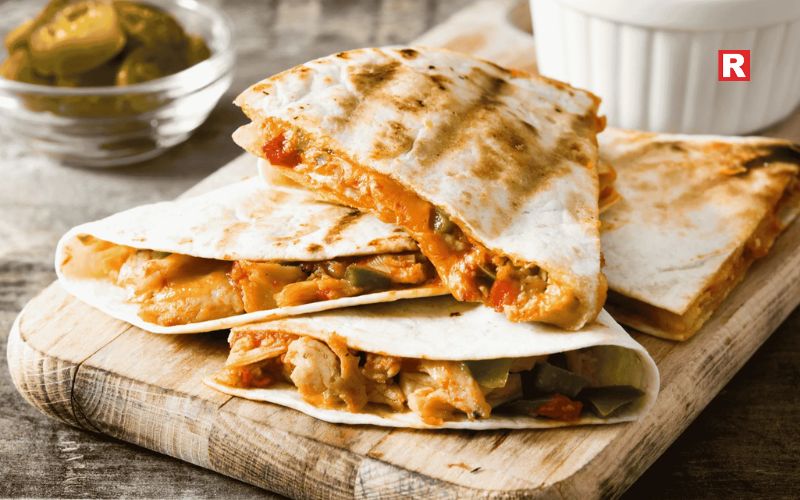
Quesadillas are another favourite. They are warm, crispy, and full of cheese. A quesadilla has a tortilla filled with cheese and grilled on a hot plate until the cheese melts. It becomes soft on the inside and crisp on the outside.
Some regions add chicken, mushrooms, peppers, or squash blossoms for extra taste. The dish is simple but comforting. It is perfect for travellers who want something mild yet flavourful.
Quesadillas are also great for people who are trying Mexican food for the first time. They offer a mix of familiar ingredients and authentic Mexican style.
3. Enchiladas

Enchiladas offer a rich and colourful experience. They are made by rolling tortillas with fillings like chicken, beans, or cheese. These rolls are then covered in chilli sauce. The sauce can be red, green, or brown depending on the region and ingredients used.
The dish is baked with cheese and topped with onion, cream, or fresh herbs. Enchiladas have deeper flavours compared to tacos and quesadillas. The chilli sauces add warmth and a mild kick. Travellers who enjoy layered and saucy dishes often pick enchiladas as their favourite.
4. Guacamole

Guacamole is one of the most popular Mexican dishes worldwide. But the authentic version in Mexico is fresh, fragrant, and very different from what most restaurants elsewhere serve. It is made with ripe avocados, lime juice, cilantro, salt, and chopped jalapeño. Some places also add onion or tomato.
The dish is creamy and bright. It is usually served with tortilla chips, tacos, or grilled foods. Indian travellers enjoy guacamole because it feels clean and refreshing. It also pairs well with spicy dishes. Guacamole is considered a must-try for anyone visiting Mexico.
Know more: 5 Cities That Serve the Best Non-Vegetarian Street Food
5. Tamales

Tamales connect visitors to old Mexican traditions. This dish has been part of Mexican culture for hundreds of years. A tamale is made with corn dough, known as masa. The dough is filled with chicken, pork, beans, cheese, or even sweet corn. The filled dough is wrapped in a corn husk and steamed.
This makes the dish soft and earthy. The taste is mild but rich. Each region in Mexico has its own version of tamales. Some are spicy, some are sweet, and some use colourful masa.
Travellers who enjoy unique and traditional foods often find tamales very memorable.
6. Pozole

Pozole is a classic Mexican soup. It is slow-cooked for hours to build deep flavour. The soup includes hominy, which is a special type of corn. It also has chicken or pork. The broth turns rich and thick as it cooks.
Before serving, locals top the bowl with lettuce, radish, lime, onion, and chilli flakes. Each addition adds crunch and freshness. Pozole feels comforting, especially on cooler days or evenings. Travellers looking for a filling and traditional dish often enjoy pozole. It shows how simple ingredients can create something bold and satisfying.
7. Churros

Churros are a popular Mexican dessert. They are long dough sticks, fried until golden and crisp. After frying, they are rolled in cinnamon sugar. Some stalls serve them with hot chocolate, caramel, or thick chocolate sauce.
Churros are warm, sweet, and soft on the inside. They are perfect for travellers who like desserts that feel familiar but still offer a local twist. Many visitors enjoy churros while exploring markets or evening streets. This dessert brings a light, joyful ending to a day of eating Mexican dishes.
Check more: Top Veg Japanese Dishes You Must Try on Your Next Visit
8 Cheesy Foods Like Lasagna That Melt in Your Mouth
Understanding the Flavours of Mexico
Mexican cuisine uses ingredients that shape its identity. Corn is the most important. It is used in tortillas, tamales, and many other dishes. Beans add protein and texture. Chillies bring heat and flavour. Fresh herbs like cilantro add brightness. Lime juice balances spicy and savoury notes. Slow cooking brings depth. Every dish uses these elements in different ways.
Travellers from India often appreciate Mexican food because it shares a similar love for spices, layers, and comfort.
How to Choose the Most Authentic Dishes
Choosing the right places to try Mexican dishes can make a big difference.
- Look for small street vendors or family-run kitchens.
- Choose dishes served with corn tortillas instead of wheat.
- Try regional specials whenever possible.
- Avoid places that use heavy processed ingredients or too much fusion.
Eating local helps travellers understand the true taste of Mexican cuisine.
Regional Mexican Flavours Worth Knowing
Mexico has diverse regions, each offering something special:
- Oaxaca is famous for mole, a rich sauce made with spices, nuts, and cocoa.
- Puebla is known for cemitas and colourful food traditions.
- Yucatán uses citrus, spices, and slow-roasted meats.
These regions show how wide and creative Mexican food can be.
Taste Of Mexico!
Mexican cuisine blends colour, warmth, and long history in every dish. Each bite offers new textures and bold flavours. These seven dishes give travellers a real taste of the country. They show how simple ingredients can turn into strong and memorable flavours. The food is easy to enjoy and fits all budgets. Street stalls, small cafés, and local homes serve these dishes with pride. Each recipe comes from old traditions that have been passed down for many years. Travellers who try these dishes understand the spirit of Mexico better. The meals highlight everyday life, family cooking, and regional styles. For anyone planning a trip, this list makes the journey easier. It helps them know what to order and what not to miss. These dishes bring the true taste of Mexico to the table in a direct and honest way.

Garlic is a bulbous vegetable, closely related to onions, leeks, and chives. Growing underground, it normally comes as clusters of tiny cloves wrapped by a papery skin. Its pungent aroma, combined with the sharp taste, has been cultivated for thousands of years and is held in high regard in many cuisines all over the world, particularly in India.
In the kitchen, garlic is a big multitasker: It can be fresh, roasted, powdered, or used as a paste to bring depth and aroma to an immense number of dishes. Whether it's added to flavor curries, marinades, breads, and quick stir-fries, it enhances taste and fragrance, turning simple meals into extraordinary ones.
This article will share with you seven delightful ways to use this ingredient in your cuisine, its health benefits, and some tips for growing and storing garlic in or around the house.
Read more: 10 Genius Ways to Peel Garlic Like a Pro
7 Ways to Use Garlic in Your Kitchen
1. Garlic-Infused Oils and Condiments

Making garlic-infused oils at home is simple, and they give a great, rich taste to lots of foods. Gently cook some peeled garlic cloves in oil (such as mustard or olive oil) over low heat. Then, strain it and keep it in a sealed bottle. You can use this oil on salads, when stir-frying veggies, or to marinate meat.
Garlic butter is another favorite. Spread it on bread or mix it into cooked veggies. Also, garlic chutneys or pickles, often prepared with local spices, go great with Indian food. These things can be used in many ways and make many dishes taste and smell better. Make sure to keep them in a cool, dry spot and use them within about a week to get the best taste.
Know more: 10 Best Snacks without Onion and Garlic you can order today
2. Roasted Garlic for a Milder, Sweet Flavor

Roasting garlic turns a sharp, pungent flavor into a sweet one. In the oven, roast entire bulbs wrapped in foil for approximately 30-40 minutes. Softened cloves can be squeezed out and spread on bread or blended into soups and sauces for a subtle garlic nuance.
Roasted garlic works perfectly in mashed potatoes, soups, and even pasta dishes with its complex, comforting flavor without overwhelming heat. In case you are sensitive to the raw intensity of garlic, then roasted garlic will be a better option for you.
3. Garlic in Indian Curries and Gravies
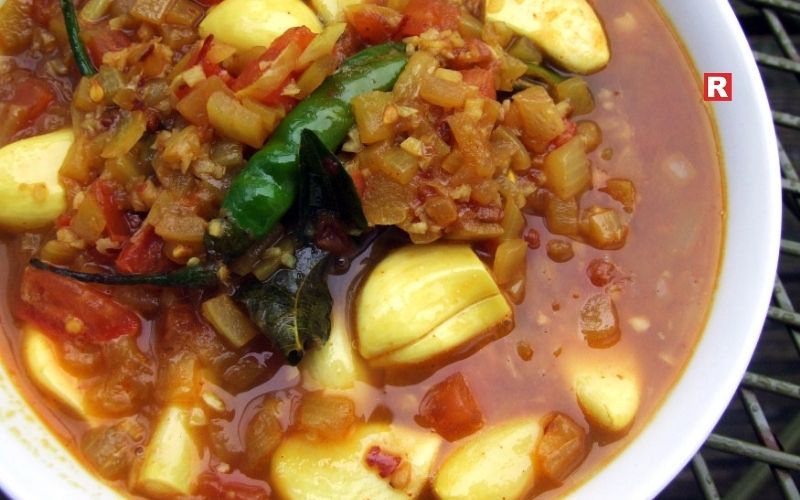
Garlic paste is a basic Indian curry recipe ingredient that has a strong base flavor of spices like cumin, coriander, and turmeric. The dishes might differ from region to region due to the different styles of ingredients used in each region, for instance, using garlic-heavy masalas for North Indian recipes or using it alongside mustard seeds and curry leaves in South Indian dishes.
Balanced use of garlic with other spices makes good gravies, while the aroma of garlic gives value to lentil-based dals. Experimenting with the amount of garlic and cooking time in your curries can help you develop your ideal flavor.
4. Garlic as a Marinade Ingredient

Garlic adds a great tenderness and flavor to the marinade. Mix crushed or powdered garlic with yogurt, lemon juice, turmeric, chili powder, and salt, and you have a nice paste ready for marinating chicken, paneer, or vegetables.
Marinate for at least 30 minutes or longer for tougher meats, which allows for deep penetration of garlic and spices. This technique gives the dish aroma and makes it juicy and tender after cooking.
5. Garlic in Quick Stir-Fries and Sautéed Dishes

Quick dishes, like stir-fries, are usually much enhanced by the aroma of freshly chopped or sliced garlic when sautéed early in cooking. Garlic releases flavor quickly into hot oil to make a tasty base for vegetables, tofu, or chicken.
Be sure not to let the heat get too high, because burned garlic is bitter and ruins the dish. Use it moderately, according to your preference for either light or strong flavors, and appreciate the freshness it brings to quick weeknight dinners.
What's new: Why Gluten-Free Is Becoming the New Trend + 10 Gluten-Free Meal Ideas
6. Garlic-Infused Breads and Snacks

Garlic bread is not limited to Western cuisine; its Indian versions, such as garlic naan, bring fusion flavors to your table. Brushed with garlic butter and baked after being rolled out, these breads pair wonderfully with dal and curries.
Then there are garlic pakoras, snacks of fried garlic-flavored fritters, or even namkeen flavored with garlic. These are generally made for teatime or any festive occasion, where every bite fills the mouth with a garlicky taste.
7. Garlic for Health and Medicinal Uses in the Kitchen

In most Indian homes, garlic has traditionally been regarded for its healing properties, improving digestion, boosting immunity, and lowering the chances of heart disease.
Garlic teas and broths are consumed during colds and flu to soothe symptoms. Some people take raw garlic with honey or warm water for infections as a remedy. Adding garlic to daily food gives medicinal advantages and also improves the taste and aroma of the food.
Scientific Health Benefits of Garlic
- Rich in Bioactive Compounds: Garlic contains allicin, a sulfur-containing compound responsible for many of its health benefits.
- Antibacterial and Antiviral Properties: Some studies prove that garlic helps fight infections by enhancing immune functioning.
- Anti-inflammatory Effects: Garlic is anti-inflammatory, and its consumption decreases the risk of several chronic diseases.
- Heart Health: Regular garlic consumption is related to the reduction of blood pressure and cholesterol levels.
- Improved Immunity: White blood cells are stimulated by garlic. This helps the body against sicknesses.
- Antioxidant Properties: It acts to combat one of the major causes of aging and a wide variety of diseases, oxidative damage.
- Recommended Intake: About 1-2 cloves a day could assure health benefits, but as too much of it may invite digestive discomfort, it is best to consume in moderation.
Check out: Your Simple Guide to 7 Vitamin C-Rich Foods
11 Benefits of Eating Chia Seeds
Growing and Storing Garlic at Home
Growing Garlic in Indian Climates
- Garlic is easily grown during the cooler months in most areas of India.
- Select healthy garlic bulbs that have large cloves to plant.
- Plant cloves individually in well-draining soil, installing them about 2 inches deep and 4-6 inches apart.
- Garlic should be kept moist but never waterlogged.
- Defoliation usually occurs at 8-10 months after planting. This is when leaves start to turn yellow and dry.
- Growing your own garlic ensures both a fresh supply and the joy of home gardening.
Storing Garlic to Maximize Freshness
- Keep garlic bulbs in a cool, dry, and well-ventilated place to prevent mold and sprouting.
- Avoid refrigerating unless garlic is peeled, as cold temperatures will encourage cloves to sprout prematurely.
- Keep garlic away from direct sunlight, as this speeds up the depletion.
- For ventilation, use mesh bags or open containers instead of plastic bags.
- Whole bulbs can last for up to 3 months under proper storage conditions. Peeled cloves, on the other hand, will last about a week.
Learn more: 10 Vegan Side Dish Ideas That Complete Any Meal
Garlic Summed Up
Garlic really is the unsung kitchen hero, bringing unmatched flavor and aroma while also packing some pretty amazing health benefits. From infused oils and roasted garlic spreads, to the backbone it provides in so many curry and marinade recipes, there are truly a million ways to make use of garlic in the kitchen. Be it for cooking magic or simple medicine, there's just no way to go wrong with adding garlic to any meal for an extra boost of natural vitality. Growing your own garlic and storing it properly will guarantee that this powerful ingredient is always at your fingertips. Enjoy the following uses for garlic and find out how this modest bulb can make a difference in your kitchen.

A gluten-free lifestyle has gained popularity in recent years, evolving from a small trend to a relatively common health choice, even in India. Gluten is a protein that's in wheat, barley, and rye. All the stuff that a lot of Indian food is based on. Since more people are learning about gluten intolerance and celiac disease, they’re starting to understand how gluten can affect their bodies.
What used to seem like a Western phenomenon is now gaining popularity in Indian homes and restaurants. People in cities here are trying out gluten-free diets not just to deal with health problems, but also because they want to eat healthier and cleaner. Everyone from gym-goers to regular families is starting to see going gluten-free as a way to eat smart and take care of themselves.
In this article, we’ll look at why gluten-free is becoming such a big deal in India. There’s also a list of 10 tasty gluten-free meal ideas that suit Indian tastes, so you can easily add them to your everyday meals.
Read more: 10 Biscuit Brands in India That Pair Perfectly With Chai or Coffee
Understanding Gluten and Its Impact
What is Gluten?
Gluten is a naturally occurring protein mainly found in wheat, barley, and rye. It acts as a binding agent, helping dough stick together, providing elasticity and chewiness. Indian food staples like chapati, paratha, bread, and lots of snacks contain gluten, so it's a normal component of India’s diverse cuisine.
Impacts of Gluten on Health
- Celiac Disease: People with celiac disease cannot eat gluten, because it triggers their immune system to attack the lining of their small intestine. This makes it hard for the body to absorb nutrients and can lead to health problems.
- Non-Celiac Gluten Sensitivity: Some people get symptoms like bloating, stomachaches, headaches, and tiredness when they eat gluten, but they don't have the intestinal damage that comes with celiac disease.
- Common Symptoms of Gluten Intolerance: These can include tummy troubles, skin rashes, headaches, joint pain, and trouble concentrating.
- Commonality: While gluten intolerance doesn't affect a huge number of people, lots of people go gluten-free to deal with symptoms or just feel better.
- What to Do: If you have celiac disease, stay away from gluten. Try cutting back on gluten to see if the symptoms get better. Before you start a gluten-free diet, it's a good idea to talk to a doctor to make sure you don't cut out foods you need or mess up your nutrition.
Know more: Your Simple Guide to 7 Vitamin C-Rich Foods
Why Is Gluten-Free Becoming the New Trend in India?

Increasing Health Awareness
More people in India are getting diagnosed with gluten issues like celiac disease because they have better access to medical info and tests. People are starting to notice symptoms like tummy troubles, feeling tired, and skin problems that could be due to not being able to handle gluten well. Because of this, a lot of people are trying out gluten-free diets to either prevent problems or help them feel better.
Changing Dietary Preferences
In India, the wellness trend is causing people to choose healthier, less processed foods. People in cities are starting to eat less wheat and are trying out other natural foods like millets and pulses because they think these are better for them. Since everyone wants food that has good nutrition and fewer additives, gluten-free choices are becoming more popular.
Rising Cases of Lifestyle Diseases
More and more people are dealing with autoimmune issues and digestive problems like IBS. Because of this, gluten-free diets are getting a lot of attention as a way to relieve symptoms. Some research shows that gluten might cause inflammation in people who are sensitive to it. That's why many are trying to cut out gluten to see if it helps them feel healthier overall.
Influence of Social Media and Celebrities
Indian celebrities and fitness influencers are openly sharing their gluten-free journey online, which is getting this lifestyle a lot of attention. You can find gluten-free recipes and advice on Instagram and YouTube, making it easier for people to try it out. Social media is really helping these health trends spread fast to lots of different people.
Availability of Gluten-Free Products
It's way easier now to find gluten-free food products. Supermarkets and online stores have things like besan, millet, and rice flour, which are good alternatives to wheat. Plus, there are also many gluten-free snacks. Even Indian restaurants are joining the trend, with more gluten-free items on their menus. So, you can stick to your gluten-free diet without missing out on your favourite tastes or traditions.
What's new: 10 Vegan Side Dish Ideas That Complete Any Meal
10 Gluten-Free Meal Ideas for Indian Palates
Breakfast Ideas

- Besan Chilla (Gram Flour Pancake): This tasty pancake is made with chickpea flour, so it's gluten-free. It's packed with protein, and you can easily toss in some grated veggies like carrots, spinach, or onions. You can also pair it with mint chutney or yogurt for a good breakfast.
- Poha with Nuts and Vegetables: Poha is flattened rice, so it's gluten-free. You can stir-fry it with mustard seeds, curry leaves, peanuts, and whatever veggies are in season. It's a light and healthy way to start your day, especially when you're short on time.
Lunch/Dinner Ideas
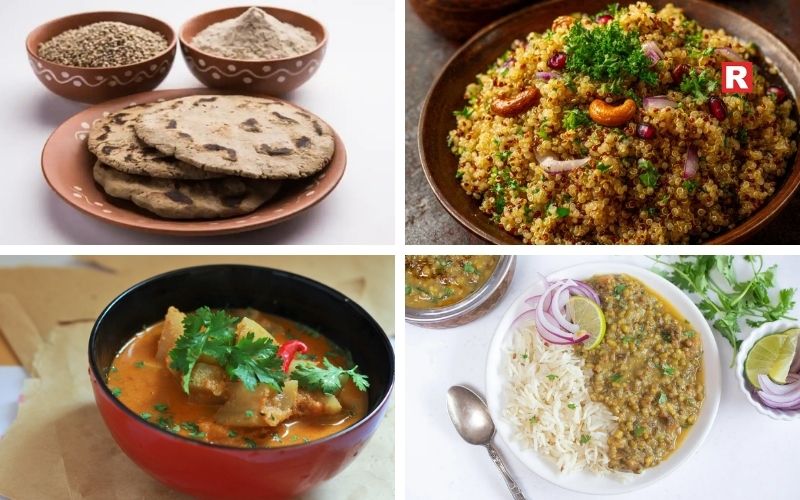
- Millet Rotis (Bajra, Jowar, Ragi): Traditional millets don't have gluten and are full of fibre, vitamins, and minerals. Bajra and jowar rotis are eaten a lot in some Indian regions and are good options if you want to avoid wheat bread or roti. They taste great with dals, veggies, and chutneys.
- Quinoa Pulao with Vegetables: Quinoa is originally from South America, but it's becoming popular in India as a gluten-free grain with lots of protein. When you cook it with veggies and spices, it turns into a tasty and healthy pulao that Indians enjoy.
- Lauki (Bottle Gourd) Curry with Rice: Lauki curry is easy to digest and doesn't have gluten, so it's great for lunch or dinner. It's a nice and healthy choice when you eat it with rice or millet.
- Chickpea or Moong Dal Curry: Pulses don't have gluten naturally and are a big part of Indian vegetarian food. Chickpeas and moong dal cooked with spices give you protein and fibre without any gluten.
Snacks/Appetizers

- Masala Chana (Spiced Chickpeas): Roasted or boiled chickpeas, seasoned with chaat masala, cumin, and chilli powder. They're crunchy, full of fibre, and a great gluten-free snack for anyone.
- Masala Corn: Boiled or roasted corn mixed with butter, lemon juice, and some spices. You can find them a lot on the street, and it's really easy to make at home, and also it's naturally gluten-free.
Check out: 10 Healthy Spreads Ideas That Turn Bread Into a Better Snack
10 Veg Chicken Substitutes for High-Protein, Balanced Meals
Desserts

- Millet or Quinoa Kheer: Although rice is already gluten-free, you can still try swapping it with millet or quinoa in your kheer for a healthier version. Cook it in milk and add cardamom, nuts, and saffron for a tasty and healthy dessert.
- Coconut Ladoo with Jaggery and Nuts: These sweet balls made from grated coconut, jaggery, and nuts require no wheat or gluten-containing ingredients and are popular during festivals and everyday treats.
Tips for Adopting a Gluten-Free Diet in India
- Read Product Labels Carefully: When buying packaged foods, watch out for gluten hiding under names like maida (refined wheat flour), rava (semolina), malt, and certain starches.
- Choose Naturally Gluten-Free Flours: When you're cooking or baking, try using gluten-free flours, such as besan (gram flour), millet flour (bajra, jowar, ragi), rice flour, or cornflour. They're also a healthier choice than maida or wheat.
- Shop at Specialized Stores: For more gluten-free choices that you can trust, check out stores or websites that specialize in gluten-free products.
- Prevent Cross-Contamination: In your kitchen, keep your gluten-free stuff away from everything else. Use different spoons, pots, and pans so you don't mix gluten-free food with food that has gluten.
- Explore Traditional Indian Recipes: Lots of Indian foods that use grains, beans, and rice don't have gluten anyway. Try adding some of these to what you eat, so you still get great flavor without the gluten.
- Use Indian Spices and Herbs: Make sure your meals are still tasty by using the spices you already have. That way, you don't have to give up food that tastes good just because you're eating gluten-free.
- Consult Healthcare Professionals: before you stop eating gluten completely, have a chat with a dietitian or your doctor. This makes sure you're still getting all the stuff you need and that you change your diet in a good way that you can keep up with.
Learn more: 10 Vegetarian Indian Foods That Help You Gain Weight the Healthy Way
Enjoy Gluten-Free Living
Going gluten-free in India isn't just a passing trend. It shows people are paying more attention to their health and how well they digest food. It helps some feel better when they have long-term health problems. Other people see it as a way to get healthier. And now, it's much easier to switch because you can find gluten-free food. You can still enjoy tasty and healthy gluten-free meals that taste Indian just by changing some ingredients and coming up with clever recipes, like millet rotis and quinoa pulao. As with any diet change, seeking professional guidance is important to thrive on this trend safely and happily.
Disclaimer: This article is intended for general informational purposes only and should not be considered a substitute for professional medical advice, diagnosis, or treatment. Readers are advised to consult a qualified healthcare professional before making any dietary, health, or lifestyle changes.

Indian’s love for biscuits is something that cannot be comprehended by words alone. But this love is incomplete without the chai, or in some cases, coffee. When you imagine having a tea or coffee break, biscuits are always included. And there isn’t any biscuit you can pair with your chai or coffee. Certain brands have power over half the biscuit industry just because they are a perfect pair with chai.
This is why the biscuit market in India has taken a step up, with numerous options available for everyone. You can find many different varieties from classic butter biscuits to chocolate ones. And, as more and more people in India are becoming health-conscious, lots of brands have launched biscuits with oats, nuts, and jaggery. This is great for both people who prefer taste and the ones that prefer health.
This article is intended to list 10 biscuit brands found in India that are great with chai or coffee. So that you can find your next choice of biscuits for your tea and coffee time.
Read more: 10 Best Tea and Dessert Pairings for Café Enthusiasts
The Biscuit Market of India
The biscuit market in India is at a level where it is thriving, with a value of around USD 4.76 5.05 billion in 2024, and is expected to grow at an annual rate of (CAGR) of 5.88% to 9.61% over the next few years. Indian biscuit brands dominate the market more than foreign ones, which have a smaller share in the market. What makes the Indian biscuit market interesting is that there is a constant innovation in flavors and textures. There are also health-focused options, like multi-grain or sugar-free, which cater to the evolving demands of customers. Many brands have unique biscuits made with desi ghee or regional specialties. This makes biscuits a versatile and popular snack choice across the country.
The Top 10 Biscuit Brands For Your Chai and Coffee
1. Parle

India’s most famous brand, which every Indian must have heard of, Parle, became popular because of its flagship product, Parle-G. Its tagline, "G Mane Genius," is a great marketing tool. Parle-G is known for its sweet taste and crunchy texture, which, if dipped in chai or coffee, becomes soft and mushy. It is like the perfect match for chai and coffee. Whether it is morning or evening, tea or coffee time, Parle-G is there to complete the experience. It has also become a household staple due to its affordability and availability. Parle, the brand, also offers biscuits like Krackjack and Monaco, which are salty, making them perfect for people who like a salty snack with their chai. This brand’s quality has remained consistent over the years, making it a favorite for many.
Know more: Top 10 Tea Brands in India That Every Chai Lover Swears By
2. Britannia
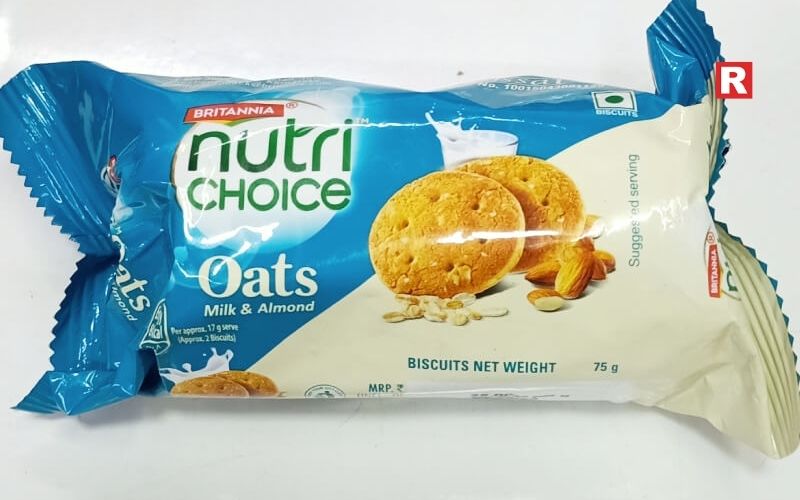
Britannia is well-known for its wide range of biscuits, including Good Day, Marie Gold, and Bourbon. Good Day biscuits are buttery and nutty, oftentimes coming in different flavors like Pista Badam, Cashew, Butter Jeera, etc. They offer a more premium tea time experience if you’re having chai or coffee in a middle-class Indian household. Marie Gold, on the other hand, is light and crisp. It doesn’t soak in chai well after dunking, but it is preferred by people who want to get the taste of biscuits more clearly. Bourbon, which has a chocolate layer between two biscuits and sweet sugar sprinkled on top, is a perfect choice for coffee, especially the less sweet ones. Britannia’s biscuits are widely available across the country and loved for their quality and taste.
3. Sunfeast

Sunfeast is known for tasty and new flavors and good quality, so tea and coffee fans love it. Dark Fantasy cookies are a popular choice with coffee drinkers. They have a rich chocolate taste that pairs well with a strong cup of coffee. Sunfeast Marie biscuits are light and crispy, just right with chai, for those who like to taste the biscuit without it getting too soggy. Sunfeast also has digestive and multigrain choices for people watching their health, who want a good snack with their drinks. People like Sunfeast biscuits because they taste good, are of good quality, and can go with anything. This makes them a go-to for tea time in Indian homes.
4. Oreo

Oreo, a cream biscuit introduced by Cadbury, is famous not just in India but in other countries as well. It comes in two fillings, white and brown chocolate. This biscuit is a good choice for pairing with coffee and provides a sweet and indulgent experience. With black coffee or americano, its flavor is perfect to balance out the coffee’s bitterness. It might not be a good choice with a sweet milk tea, though. It has a unique texture that goes beyond just normal snacking. Oreo, rather than just being a biscuit, has become an ingredient and a flavor in itself. You can find Oreo Shakes at any juice stall, or Oreo cakes, and even Chocolate with Oreo filling. This biscuit is popular among young adults and families that are looking for a premium biscuit option.
What's new: 10 Most Popular Coffee Blends in India
5. Bourbon (Britannia)

These biscuits are so good that they need a separate section from their brand’s other varieties. Bourbon is known for its creamy center of chocolate and crisp exterior, making it a good choice for pairing with coffee. The chocolate center isn’t too sweet and pairs well with the crunch exterior. When you take a bite of this biscuit, you experience a flavor that is sweet but not overwhelming, rich, gentle, and lingers on your taste buds. Bourbon is also a popular choice with chai for those people who enjoy a sweeter snack. The biscuit’s rich taste and quality have made it a favorite for tea and coffee lovers across India.
6. Anmol

Anmol biscuits are known for their good quality and classic taste, which is why Indian families have trusted them for years. Their Glucose biscuits taste great with chai and give you a light, sweet crunch that is perfect with a warm cup of tea. They’re made with simple ingredients, so you get a good snack without any artificial ingredients. Anmol has other biscuits, too, like cream, butter, and digestive ones, so there’s something for everyone. People love the brand because the biscuits always taste good and don’t cost much, making them perfect for tea every day. You can find Anmol biscuits in stores and supermarkets all over India. Their simple, classic flavors have made them a favorite with both kids and grown-ups. They also have other items besides biscuits, like chai-friendly Rusk, waffles, and mini-cakes.
7. Priya Gold

Priya Gold biscuits are pretty good, with both classic and new flavors for people who care about taste. Their Cheese Cracker is a hit if you like something cheesy with your tea or coffee. They have a strong cheese flavor and a nice crunch. Marie Lite biscuits are another common choice. They're light and crispy, good for dipping in your chai or coffee without getting mushy. Priya Gold also has other biscuits, like fruit and nut types, if you want something a bit fancier with your tea. The brand cares about good ingredients and great taste. People pick these biscuits for celebrations or when they want a treat. You can find Priya Gold biscuits in most stores and online. So, if you're in India and love biscuits, you can easily get your favorites.
Check out: Top Flavour Coffee Brands in India That Every Coffee Lover Must Try
Best Cookie Brands in India: A Complete Guide for Cookie Lovers
8. Googly (Bisk Farm)

Googly biscuits, produced by Bisk Farm, are pretty popular because they have unique flavors and an innovative texture. People especially like their cream-filled biscuits with coffee. The cream makes the coffee taste even better. If you like chai, the plain Googly biscuits are a good match. They don’t take away or overpower the flavor of teamaking them suitable for people who like a more subtle pairing with their tea or coffee. Googly also experiments with different kinds of biscuits, and makes biscuits like flavored and multigrain ones, so everyone can find something they like. Basically, Googly biscuits are made to be versatile, so they can go with whatever you're drinking, whether it's coffee in the morning or tea at night. They're known for being creative and yummy. Popular choice for those who love to try new flavors and textures with their favorite drinks.
9. Patanjali
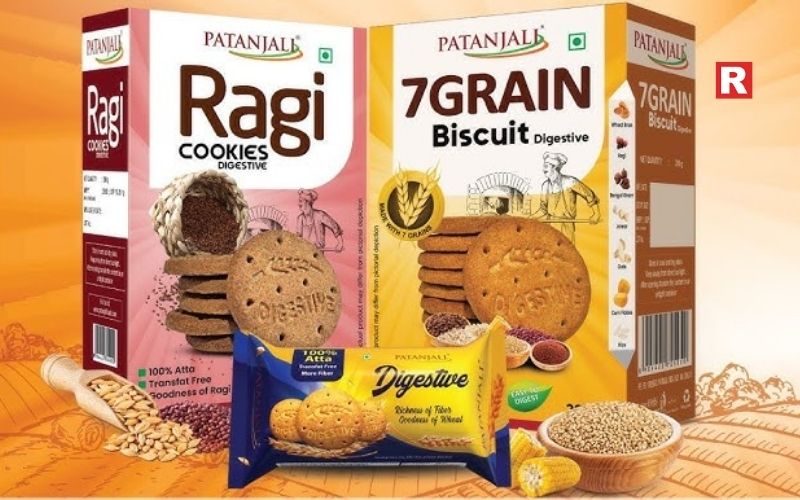
Patanjali is a popular Indian brand that's known for its natural and Ayurvedic products, and their biscuits are no different. They sell unique biscuit varieties such as Doodh Biscuits and Nutty Delite, which contain stuff like milk, oats, and nuts. These biscuits don't have artificial flavors or preservatives, so they're a great choice for people who care about their health and for families who want snacks without the guilt. Their biscuits taste great with both chai and coffee, giving you a nice crunch and a bit of sweetness that goes well with a warm tea or a rich coffee. Because the brand uses natural ingredients and keeps prices low, their biscuits are liked by people in cities and villages. You can eat them for a fast breakfast, an afternoon snack with tea, or a small evening treat. Patanjali biscuits give you a good experience that fits with today's health ideas while still feeling like a classic Indian biscuit.
10. Unibic
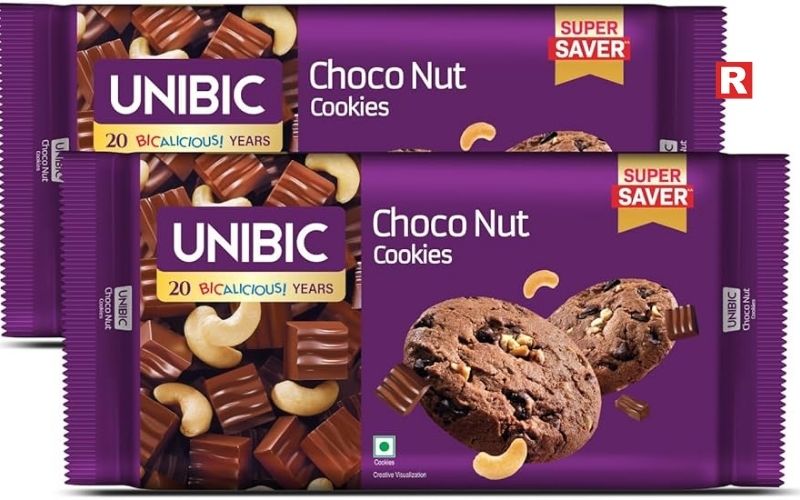
Unibic is known for its gourmet biscuits. They offer a wide variety of premium choices like chocolate chips, fruit, or nuts. They’re made to give you an indulgent experience, especially for people who like something sweet with their coffee. These biscuits also work well with chai. Their strong flavors and crunch make your tea time even better. Young people and families who like high-quality biscuits love Unibic because of their good quality and ability to elevate their tea or coffee time. Unibic uses quality ingredients and also comes up with innovative recipes, which is why people who love tea and coffee enjoy them. Whether you're having coffee or chai, Unibic biscuits make any moment feel a little special, so they're a popular pick if you like fancy biscuits.
Learn more: India's Famous Namkeen Brands: The Top 10
Finding the Perfect Pair
In India, there's nothing quite like dipping a biscuit into your chai or coffee. It's a simple pleasure that brings happiness to homes everywhere. These little treats make everyday moments better, with a yummy mix of tastes and textures that go perfectly with both sweet and savory drinks. You can find all sorts of biscuits these days, from the old favorites to fancier ones and even some healthy choices. They're not just snacks, they're a key part of India’s tea-time tradition and happy memories of many. Whether you're taking a quick break or settling in for a cozy evening, biscuits and tea or coffee are a beloved Indian custom that celebrates good taste, tradition, and spending time together.

Vitamin C is a nutrient that's common in our diets. People like it because it boosts immunity, keeps skin healthy, and enhances their well-being. Most people try to get Vitamin C in their meals, whether it's from fruits, veggies, or drinks. However, your body can't store it for long, so you need to get it regularly.
In India, there are lots of foods that are a great source of Vitamin C. You can find them easily at local markets and stores. They're good for any region and don't take much work to add to your meals. Because of this, Indian families have been eating these things for a long time, no matter the season.
This article will list seven foods that are loaded with Vitamin C. Also, it’ll explain why they are good for you, how you can eat them, and why you should include them in your daily diet.
Read more: 12 Foods Like Avocado That Are Creamy, Healthy, and Tasty
Why Your Body Needs Vitamin C
- Supports iron absorption: Vitamin C helps your body absorb iron from plant-based foods. This can really help with keeping your energy up and fighting off tiredness, especially if you're a vegetarian.
- Strengthens immunity: Getting enough Vitamin C can also help your immune system. Many find they feel better during seasonal changes when they get enough of it.
- Protects cells: It also protects your cells from damage caused by things like stress, pollution, and not eating properly, which helps keep your body in good shape.
- Aids collagen production: Vitamin C is used by the body to make collagen, which is important for healthy skin, comfortable joints, and healing wounds.
- Easy to obtain: It's actually easy to get Vitamin C. Even though people talk about it a lot, it's one of the simplest nutrients to find in everyday foods.
- Must be taken through diet: Your body can’t make Vitamin C on its own, so it’s important to get it daily from the food you eat.
Lots of fruits and veggies used in Indian cooking have Vitamin C. Here are seven great examples.
7 Vitamin C-Rich Foods
1. Amla

Amla is packed with Vitamin C. People eat it raw, pickled, or drink it as juice. It's been a go-to in Indian diets for ages. Amla helps your immune system, makes your skin look better, and keeps your stomach happy. Plus, it has nutrients that fight off damage from the environment.
You can grate Amla into salads, mix it with water and honey, or eat it as murabba. Some like them sun-dried because it's not as strong. Since you can find it in most Indian markets, it's easy to eat a little bit regularly. Just one piece gives you a good dose of Vitamin C, so it's a simple choice.
Know more: 10 Vegetarian Indian Foods That Help You Gain Weight the Healthy Way
2. Oranges

Oranges are a favorite all over the country, especially in winter. They taste great, with a mix of sweet and sour, and they're full of Vitamin C. They help you stay hydrated, keep your immune system strong, and just make you feel good. A lot of people like them as a quick afternoon snack because they're easy to eat.
You can eat oranges as they are, or juice them. The sections have fiber and natural sugars that give you a steady energy boost. Kids usually love them, so they're great for family meals. Since you can find different types of oranges in different areas, most families can get them during the winter.
3. Guava

In India, guava is known as a super-nutritious fruit because it has more Vitamin C than a lot of citrus fruits. People like it because it's good for your digestion, tastes sweet, and has a nice, firm feel. If you eat it with the skin on, you get fiber and other small nutrients that are good for your gut.
You can just slice up a guava and eat it, put it in fruit salad, or blend it into a juice. Whether it's pink or white inside, it's packed with Vitamin C. Since guava is cheap and easy to find in stores, it's a simple way to get more nutrients every day without a big change to what you eat.
4. Lemon

Lemons are a must-have in Indian kitchens. Just a little squeeze gives you a good dose of Vitamin C. People put lemon in everything from dal and salads to chutneys and drinks. It makes food taste better, aids digestion, and just makes everything brighter. Lemon juice is also great for helping your body soak up iron from veggies, which is super useful if you're a vegetarian.
Since lemons are around all year, they're a vitamin C source you can always count on. A warm glass of lemon water in the morning is what many people drink every day. And it is also great for keeping you hydrated when added to cold drinks when the weather gets hotter.
5. Papaya

Papaya is a nice, gentle fruit packed with Vitamin C. It also has some other good stuff that can help your digestion and make your skin look good. It's easy on your stomach, so it's often a good choice if you're getting over a cold or something. Plus, it has enzymes that help you break down your food better.
You can just eat papaya by itself, put it in a smoothie, or toss it in a fruit salad. You can find it pretty much everywhere in India, and it won't cost you too much. Eating it regularly can help keep your immune system strong and keep you feeling good. Some people even use it on their skin because of those enzymes and antioxidants.
What's new: 10 Anti-Inflammatory Foods to Add to Your Diet
6. Capsicum

Bell peppers, especially the red and yellow ones, are packed with Vitamin C. Lots of families often go for the green kind since they're cheaper and easier to find. Bell peppers help your immune system and protect your cells. Plus, they've got fiber, which is good for your digestion.
You can stir-fry bell peppers, toss them in salads, put them in sandwiches, or cook them with lentils and rice. Their crunchy texture and bright colors make even simple meals taste better. Since bell peppers cook fast, they're perfect for busy families who want healthy meals without spending ages in the kitchen.
7. Strawberries

Strawberries are a winter fruit in India and are packed with Vitamin C. Their bright color comes from antioxidants, which are good for your skin and health. People like to eat them in desserts, shakes, or just in a bowl. If you eat them fresh, you also get fiber and water.
Strawberries can be a bit expensive, but even a few can give you a good boost of Vitamin C. They're a popular treat in the winter. Some people freeze them so they can enjoy them longer. Just be sure to handle them carefully and wash them well, and you can easily add them to your daily snacks.
How Vitamin C Supports Immunity
Vitamin C helps boost your body's defence system. It makes your immune cells work better and react faster. This is really helpful when the seasons change, and people tend to get sick more easily. Eating foods that have a lot of Vitamin C can keep your energy levels up and help your body ward off sickness.
Taking Vitamin C regularly can make you feel less tired and help you bounce back faster after working out. It also reduces stress in your body, which helps you stay balanced even when you're busy. Because of all these good things, Vitamin C-rich foods are great for everyone, no matter how old they are.
Check out: Best Exotic Fruits to Enjoy This Winter for Taste, Health and Glow
Top A2 Ghee Brands in India to Keep You Warm & Healthy This Winter
How Vitamin C Helps Skin Health
Vitamin C aids collagen production, which keeps your skin firm. It also guards against daily stressors like the sun and pollution. A lot of people see clearer, brighter skin with regular vitamin C intake. Plus, it helps heal wounds and keeps dryness away.
You can easily add vitamin C-rich foods to your snacks, salads, and drinks. Since it works best when you take it consistently, small amounts each day are better than large doses once in a while. This constant approach is the key to lasting skin health.
How to Include These Foods in Your Routine
It's easy to add more Vitamin C to what you eat every day.
- Just try to eat at least one fresh fruit each day. Good choices are oranges, guavas, or papayas.
- Squeeze some lemon juice over your food.
- Use bell peppers in your usual cooked veggie dishes or salads.
- Keep fruits that are in season handy for when you want a snack, like strawberries.
- Make small amounts of amla chutney or juice.
These simple changes can help you have a more balanced and varied diet.
Learn more: Top 10 Healthiest Breakfast Bowl Fruits
Your Vitamin C Path
Getting enough Vitamin C is easy in India because the food that has it is easy to find, cook, and grow all over the place. It's good for your immune system, gives you energy, and helps your skin, so it's just good for you overall. If you eat these seven foods often, you will get enough Vitamin C without having to change what you do much. You do not need to look for ingredients that are hard to find; instead, just get used to eating stuff you already know and like. If you know why these foods are good for you and how to add them to your meals, you can easily get healthier.

Chia seeds are one of the most popular food items these days. People love adding them into smoothies, breakfast bowls, and even baked dishes. They're super easy to work with and can fit into pretty much any diet. Plus, they don't have a strong flavor, and the texture is nice and simple, which makes them a go-to for people wanting a small extra ingredient to boost their health.
Chia seeds are getting more and more popular in India, too. You can find them everywhere now, from supermarkets, organic shops, and online stores. Lots of people in India are mixing them into drinks, yogurt, and homemade snacks. The reason they're so in demand is because of all the benefits they offer for your health, like helping with digestion and boosting energy.
This article will go over eleven awesome benefits that chia seeds can provide for you. Each benefit is explained clearly and simply so you can see how this tiny ingredient can help your daily diet and keep you feeling good.
Read more: 10 Vegetarian Indian Foods That Help You Gain Weight the Healthy Way
Benefits of Eating Chia Seeds
1. Helps Improve Digestion

Chia seeds are full of fiber, which helps keep your digestion smooth and regular. When you soak them, they turn into a soft gel that's easy on your stomach and intestines. This can ease constipation and keep your gut working well. The fiber also feeds the good bacteria in your gut, which is important for your immunity and overall health. If you're looking for a simple, natural way to help your digestion, chia seeds are a great choice. Just add a spoonful of soaked chia seeds to your breakfast or a nighttime drink, and you will notice a change over time.
2. Supports Weight Management

Chia seeds expand when you soak them in water, and that helps you feel full. This can stop you from snacking too much and help you watch your calories. The fiber in them keeps your digestion slow and gives you steady energy, so you don't suddenly get hungry. Since they are low in calories but are rich in nutrients, chia seeds can help you make a filling meal without overeating. If you eat them regularly, chia seeds can help you stick to a healthy diet and keep your weight in check.
Know more: 5 Foods That Are Excellent for the Heart
3. Good Source of Omega-3 Fatty Acids

Chia seeds are a source of plant-based omega-3s, which are good for your heart and brain. These fats can help lower inflammation in your body and keep your cells functioning properly. If you don't eat fish or have a preference for vegetables, chia seeds are a simple way to get omega-3s every day. Omega-3s are known to help your memory, focus, and keep your heart in good shape, so chia seeds can be a valuable food source for both grown-ups and kids.
4. Boosts Energy and Stamina

Chia seeds are great because they have a combination of protein, good fats, and fiber to give you consistent energy without any sugar crashes. Because of this, they're a cool choice before you exercise, spend hours studying, or have a packed day. The slow and steady power helps you keep going for longer. People used to use chia seeds to stay strong before running or traveling. They give you a boost that lasts longer than a sugary snack.
5. Supports Heart Health

Chia seeds are good for your heart in several ways. The fiber in them helps keep your cholesterol in check, and the omega-3s reduce inflammation and promote healthy blood circulation. Plus, they have antioxidants that keep your heart safe from damage due to stress and pollution. If you eat chia seeds regularly, it can help your heart work well as you get older. They're easy to toss into what you already eat, so it's clearly beneficial to use them to keep your heart in good shape.
6. Helps Maintain Blood Sugar Levels

Chia seeds have fibre that slows down the digestion of carbohydrates, and this keeps your blood sugar steady. So, you won't have any sudden sugar spikes and crashes. This is good if you want to keep your energy levels even. Chia seeds can also help cut down on cravings that come from quick changes in your sugar levels. Adding them to your meals makes for a more balanced and lasting energy source.
What's new: 10 Anti-Inflammatory Foods to Add to Your Diet
7. High in Antioxidants

Chia seeds have antioxidants that help your body fight damage from free radicals. These antioxidants can slow down how quickly your cells age, keep your skin healthy, and boost your immune system. Plus, they keep the seeds fresh by stopping the natural fats from going bad. Eating foods full of antioxidants, like chia seeds, can help lessen the impact of stress, pollution, and poor dietary habits. They work behind the scenes to keep you healthy and your body working smoothly.
8. Strengthens Bones and Teeth

Chia seeds are packed with calcium, magnesium, and phosphorus. All of them are good for keeping your bones strong and your teeth healthy. If you don't eat dairy often, these minerals are super useful. Just adding chia seeds to your diet can really help you get your daily dose of these important minerals. They keep your bones in good shape, help your muscles work well, and reduce the risk of weakness as you get older. 9. Good Plant-Based Protein Source
Chia seeds are a great plant-based protein source. So, they're helpful if you're a vegetarian, vegan, or just trying to get more protein without eating a ton of meat or eggs. Protein helps fix your tissues, keeps your muscles strong, and gives you energy. Because chia seeds also have fiber and good fats, they make a well-rounded food that helps you feel full.
9. Good Plant-Based Protein Source

Chia seeds are a great plant-based protein source. So, they're helpful if you're a vegetarian, vegan, or just trying to get more protein without eating a ton of meat or eggs. Protein helps fix your tissues, keeps your muscles strong, and gives you energy. Because chia seeds also have fiber and good fats, they make a well-rounded food that helps you feel full.
10. Helps Keep You Hydrated

Chia seeds are great at soaking up water. They can absorb many times their weight. This creates a gel that keeps you hydrated longer, which is super useful when it's hot or you're spending lots of time outside. If you put soaked chia seeds in your drinks, it helps your body balance its fluids. Lots of people like to make chia water or chia lemonade because it's a refreshing way to cool down. Plus, it helps you stay hydrated and gives you some extra nutrients that you wouldn't get from just plain water.
Check out: 6 Easy Pumpkin Seed Recipes with Surprising Health Benefits
10 Surprising Health Benefits of Having Plant-Based Diet
11. Good for Skin Health

Chia seeds are great for your skin because they have antioxidants, omega-3s, and minerals. These things can help keep your skin healthy and bright. They can also help with dry skin, fix skin damage, and keep pollution and sunlight from hurting your skin. Eating chia seeds often can make your skin look and feel better, giving it a natural glow. Because they help reduce inflammation, chia seeds can also soothe irritated skin. Adding them to what you eat is an easy way to take care of your skin from the inside.
Ways to Eat Chia Seeds
- Before you eat them, let them sit in water for 20-30 minutes.
- You can toss them into smoothies, yogurt, milkshakes, or even fruit bowls.
- Try mixing them into your morning porridge, oatmeal, or cereal.
- They're also great when stirred into lemonade, coconut water, or herbal tea.
- Add them to homemade pudding to thicken it up.
- Sprinkle them on salads or your favorite cooked veggies.
- Mix them into muffins or roti when you're baking.
- Start with a tablespoon a day and slowly add more if you like.
Learn more: The Secret Health Benefits of Matcha Tea You Probably Didn’t Know
Small But Mighty
Chia seeds are super easy to include in what you eat every day. They've got nutritious qualities that help your digestion, keeps your energy up, is good for your heart, and makes your skin look good. If you eat them regularly, they can make your life healthier without you having to try too hard. They don't taste like much and are easy to use, so both grown-ups and kids can enjoy them. You can stir them into drinks, snacks, or meals. They fit right into what you normally eat. By making small changes bit by bit, you can feel better for a long time.

Hyderabad's street food scene is lively and friendly. While everyone knows the city for its biryani, the little food stalls and night vendors are not to be underestimated. They really show off how much the city loves strong tastes and makes people feel at home, locals and travellers alike.
In old Hyderabad, you can still taste the royal touch of Nizam kitchens. You'll see it in dishes cooked slowly with lots of spices and made the old-fashioned way. But in the newer parts of town, it is the modern street food that brings the young people together every night. What makes it all so great is how the city's history mixes with daily life. Just walking around Charminar or Gachibowli, you'll find tons of stalls selling dosas, kebabs, chaat, and Irani tea. This mix of old and new is what Hyderabad street food is all about.
If you want to visit Hyderabad on your next trip, but don’t know where to find the best street food, then read this article, as we have compiled a list of the best places there.
Read more: Top Famous Veg Street Foods in Kolkata That You Must Try Once in Your Life
What Makes Hyderabad’s Street Food Unique?
Hyderabad's street food is special because it mixes Mughlai, Andhra, Telangana, and Irani tastes. Vendors use spices passed down through families, which gives the food a taste that locals know and love. You'll see slow-cooked meats, crunchy snacks, flavorful chutneys, and sweets that show Persian influence. Lots of these food stalls have been around for years, serving up the same great flavors that keep people coming back. Irani bakeries, tiny dosa places, kebab stands, and chaat spots each add something special. This mix of history and local flavors makes Hyderabad's street food feel rich and diverse.
Popular Areas for Street Food
- Charminar: You can find classic Hyderabadi food here, stuff like kebabs, cookies, biryani, and haleem seasonally.
- Mozamjahi Market: This place is great for old-school bakeries, fruit ice cream, and traditional desserts.
- Tank Bund: It becomes very lively at night with lots of snack vendors selling all sorts of delicious snacks.
- Sindhi Colony: People know this spot for chaat, sandwiches, pav bhaji, and fast-food-style snacks.
- Gachibowli: This area has a bunch of modern food trucks and stalls that are popular with young people who work in offices or students from neighbouring schools.
- Madhapur: A cool area to grab a quick bite from trendy stalls and fusion street food.
- Ameerpet: This place is popular for all kinds of dosa and cheap snacks, perfect for students.
Know more: Famous Street Food to Try in Chandni Chowk
Top 10 Street Food Spots in Hyderabad
1. Ram Ki Bandi
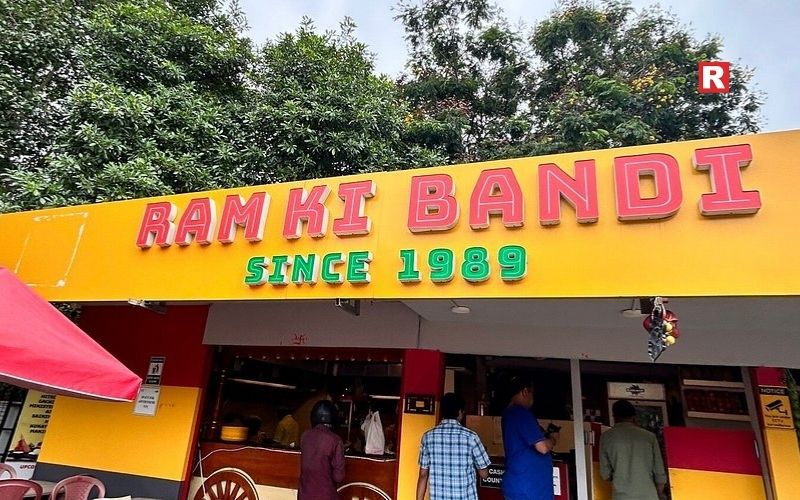
Ram Ki Bandi is famous for its dosas and idlis, which they make early in the morning with lots of fillings and chutneys. People especially enjoy the cheese dosa, pizza dosa, and upma dosa because they taste both familiar and special. The service is usually fast, so it's popular with people on their way to work and students. You can expect to pay around ₹150 to ₹250 for two people. It's best to go between 3:30 AM and 8 AM to get the freshest food. The location near Nampally is the most popular, but you can find other locations around the city. It's always busy because of its simple setup and tasty food.
2. Gokul Chat
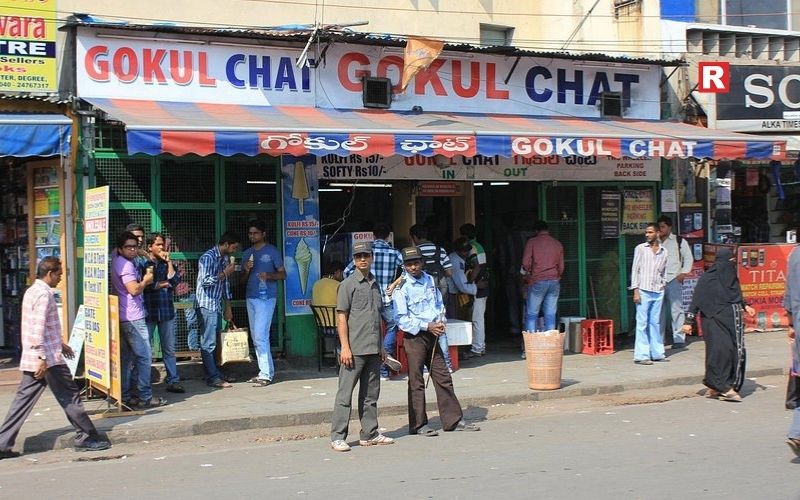
If you're looking for great chaat in Hyderabad, Gokul Chat in Koti is a super popular spot. It's been in business for about 50+ years. They're famous for their pani puri, dahi puri, tikki, and pav bhaji, and they also have fresh fruit juices. The food always tastes the same, and you get a generous portion for your money. You'll see all kinds of people there, from students, families, to people who've been going for years. It'll cost you around ₹200 to ₹300 for two people. What makes them special is that they mix North Indian chaat with local spices. Many people say you have to try it when you're checking out the street food in Hyderabad. But do make sure to carry cash with you, as they do not accept UPI payments.
3. Sindhi Colony Food Street
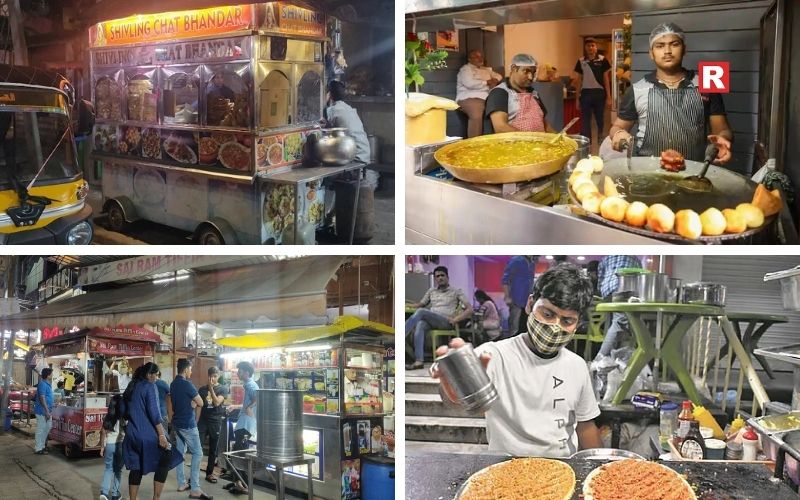
If you love street food, you have to check out Sindhi Colony in Hyderabad. It's got tons of options, including many for vegetarians. People know the area for its chaat, pav bhaji, sandwiches, and quick snacks, which are perfect when you're craving something in the evening or just hanging out. Lots of the stalls have been around for ages, giving the whole place a friendly vibe. You can grab crispy pani puri, rich milkshakes, super cheesy sandwiches, and smaller bites that are great for sharing with friends or family. The prices are fair, and it's always buzzing with activity. It's super easy to taste a bunch of different things in one go.
4. Madhapur Street Food and Food Truck Lane
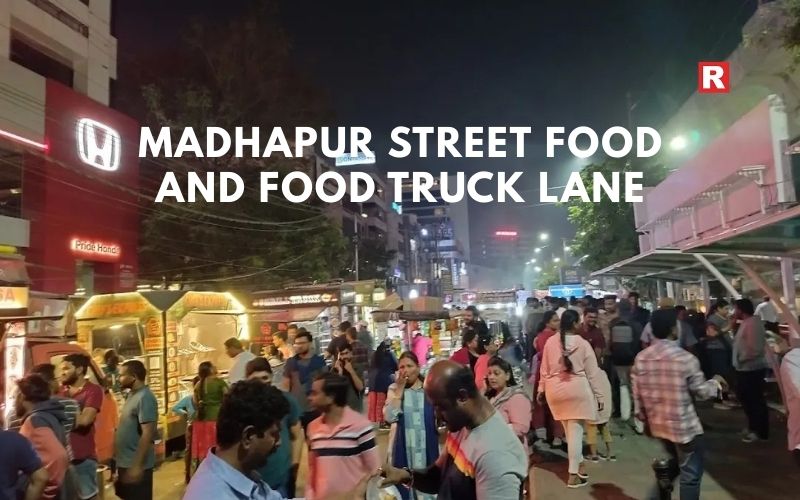
Madhapur's a cool place for street food now, packed with food trucks selling things like shawarma, momos, noodles, sandwiches, and some creative snacks that mix flavors. You'll mostly see younger professionals and college students hanging around. Shawarma, momos, and grilled chicken are big hits there. Expect to pay around ₹300 to ₹450 for two people. It's best to go after 7 PM when the majority of the food trucks are starting to cook up fresh food. Being close to Hitech City gives the place a lot of energy, and with so many choices, you can try something different every visit.
What's new: Top 10 Vegan Street Foods in India Every Indian Loves
5. Charminar Food Street

Charminar's streets are known for their tasty food like kebabs, biryani, nihari, lukhmi, Irani chai, and haleem (when it's in season). There's a ton to pick from, especially when night falls. You'll see vendors who've been around for ages and new little stands selling local favorites. The best time to go is after 7 PM. During Ramzan, the area really comes alive with special food and extended hours. It's a great spot to try real Hyderabadi food.
6. Mozamjahi Market

Mozamjahi Market is a favorite spot for its fruit ice cream, baked treats, samosas, and Irani chai. The ice cream is made on a cold stone with fresh, seasonal fruits. Many drop by after dinner for a light dessert or snack. It is affordable too. The best time to go is between 8 PM and midnight when the weather is nice. The area has a calm feel and an old-city vibe that makes eating there even better.
7. Tank Bund Street Food

Tank Bund is a great place to go for an evening walk. You can grab snacks there. Vendors sell things like roasted corn, pani puri, and momos. It's popular because it's chill and the snacks are perfect for a casual hangout. The best time to visit is around sunset or in the early evening. You might not find full meals, but the beautiful lake scenery mixed with the quick snacks makes it a favorite hangout for many.
Check out: 8 Famous Street Foods of Agra You Can’t Miss
A Bite of Banaras: 8 Iconic Street Foods You Can’t Miss in Varanasi
8. Begum Bazaar and Feel Khana Lane

Begum Bazaar and Feel Khana Lane are in the middle of Hyderabad's busy old city. People know these areas for their packed streets, wholesale stores, and lots of street food. Begum Bazaar is a great place to grab traditional snacks, especially kebabs, rumali roti wraps, pulao, and local sweets. Right next door, Feel Khana Lane has cheap eats, tawa dishes, samosas, keema, and evening snacks, which attract employees and customers. If you want to taste real Hyderabadi cooking, these lanes are a good place to start.
9. Nimrah Café, Charminar

Nimrah Café, close to Charminar, is famous for its Irani chai and lots of different bakery biscuits. It's been a favorite spot for ages, and many people stop by after checking out the market. You gotta try their Osmania biscuits, naan khatai, and also the light, buttery cookies. They're incredibly delicious with the strong, sweet tea. It’s budget-friendly for your wallet and feels like a brief glimpse of old Hyderabad. The best time to go is early in the morning or in the evening when it’s lively but not too packed.
10. Gachibowli Food Trucks and Night Stalls
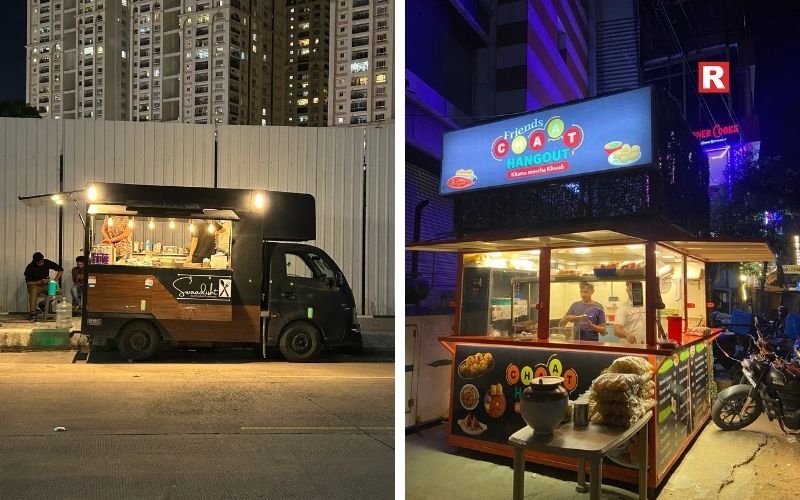
If you're in Gachibowli and hungry late at night, you're in luck! There are tons of food stalls open late serving stuff like shawarma, fried rice, momos, rolls, and grilled chicken. It's a great spot to grab a quick bite after work. The best time to go is between 9 PM and 1 AM when all the stalls are most active. The place has a lively vibe, and you usually get your food pretty fast. That makes this area a reliable option if you are looking for late-night food in Hyderabad.
Hygiene and Safety Tips
- Make sure the stall's counter is clean.
- Don't eat at places where food is left out in the open.
- Go for bottled water or drinks you know are clean.
- Choose food that's cooked fresh and hot instead of remaining unattended.
- It’s better to go when it’s not super crowded.
- See if the people serving food are wearing gloves or using clean tools.
- Check if they're reusing oil or sauces too much.
Learn more: Top Iconic Street Foods from Every Indian State You Must Try
City’s Flavors on A Plate
Hyderabad's street food is a mix of classic dishes and exciting modern flavors. Checking out the food stalls lets you feel the city's vibe. No matter if you're into light snacks, meaty meals, or sweets, every place has its own flavor. Eating here isn't too expensive, and it's fun to try new things with friends and family. When you visit these ten spots and taste different dishes, you'll get why Hyderabad's streets are such a great place to eat. Have fun, don't rush, and let each bite become a cool memory of the city.

Hummus is popping up in Indian kitchens as folks want tasty, healthy spreads that go great with bread, veggies, and regular meals. It's creamy, well-seasoned, and you can do a lot with it, so it's not just for health nuts anymore. Sure, we still love our usual Indian snacks, but hummus has found its place with people who want something fast and full of protein.
City people are a big reason why it's getting so popular. If you're busy, it's nice to have dips ready to go, and hummus is perfect because it's simple and tastes good with everything. Even restaurants and cafes are putting it on the menu, so people start buying it at the store, too. Now, there are tons of brands selling tubs of it in all the big cities.
Both Indian companies and international brands are selling it here. You can find regular chickpea hummus, or try kinds with Indian spices and herbs. There are lots of choices, so it's easy to find new flavors you like.
Read more: 10 Healthy Spreads Ideas That Turn Bread Into a Better Snack
Why Hummus Is Becoming Popular in India
- Taste and Versatility: Hummus is good with pretty much any eating style. Spread it on sandwiches, dip veggies or crackers in it, or have it with grilled food. Lots of folks in India like how you can use it with anything since it doesn't take over the taste of the other food.
- Good for Healthy Living: Since more people want plant-based protein in their diet, hummus is a go-to pick. It is made with chickpeas, tahini, olive oil, and some simple stuff. This means it's a good fit for folks who want snacks that are balanced and full of fiber, without a bunch of junk added.
- Rising Café Culture and Global Food Influence: Cafés, Mediterranean spots, and places that mix different foods have shown hummus to more people. When people get used to eating it out, they look for it in stores. That's why you can find it all over the place now in supermarkets and online.
The 8 Popular Hummus Brands in India
1. Wingreens Farms

Wingreens Farms was one of the first brands to make hummus easily accessible throughout India. People who like a little spice or tang enjoy their regular hummus, plus the peri-peri, jalapeño, and garlic kinds. They care about good ingredients and talk about using cold-pressed oils and spices that taste just right. You can find their tubs in most stores and online. Since the flavors go well with sandwiches, chips, and salads, lots of people buy Wingreens all the time. It tastes the same every time, and the price is usually the same, which is why they're doing well.
Know more: Top 5 Barbecue Sauces for Marinades or Dipping: Smoky, Sweet & Absolutely Irresistible
2. Earthy Bliss

Earthy Bliss offers various types of hummus, including the basic variety, as well as olive, beetroot-ricotta, and tandoori flavors. They say it's all vegan, organic, and has no preservatives. They ship all over India and are trying to get the attention of people who want fancy, healthy dips. People seem to like how they package and market their stuff, particularly folks who are into modern, city-style dips.
3. Del Monte
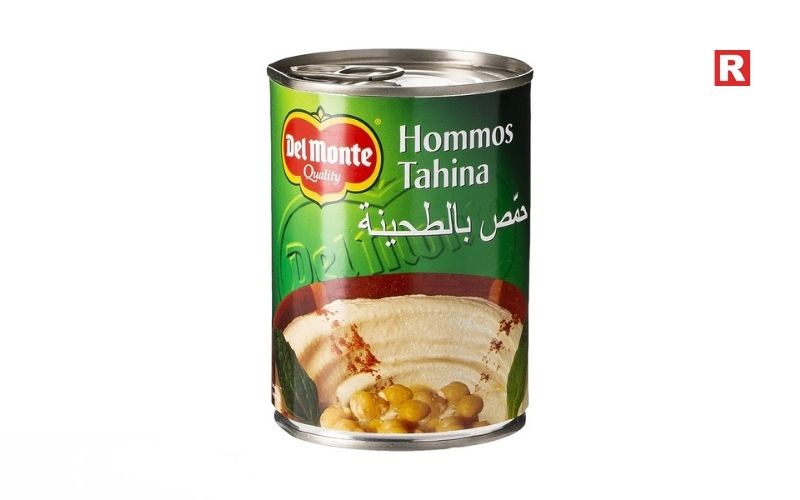
Del Monte is bringing its global recognition to the Indian hummus scene. They're already known for things like condiments and Mediterranean food, so their hummus is simple and mild. It's great for people who don't like strong flavors. It stays creamy without being too thick, which makes it easy to use as a dip, spread, or in bowls. They really focus on using good ingredients and keeping the texture the same every time, so customers can count on it. You can find it easily in stores, and the price is good for families who want a dependable, ready-to-eat spread.
What's new: 10 Vegan Side Dish Ideas That Complete Any Meal
4. Natuf

Natuf is also becoming a popular choice, mostly in some cities. They have regular, beetroot, and spicy hummus, usually aimed at people who make Mediterranean food. Right now, they mainly deliver in specific cities (like Bangalore). Natuf shows that more and more hummus fans want different flavors than just the regular kind.
5. Indic Roots
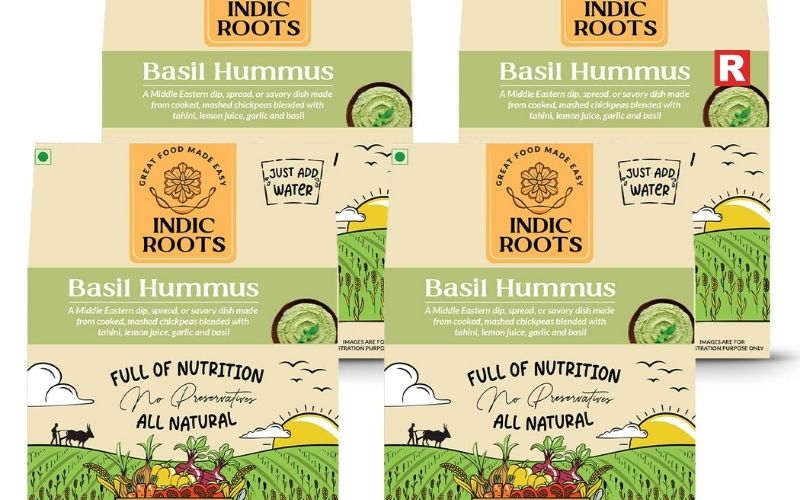
Indic Roots is a brand that sells hummus that's ready to eat or quick to make. It's got stuff like chickpeas, sesame seeds, olive oil, and some spices – nothing fake added. Indic Roots focuses on natural ingredients and a simple taste, so it's good for folks who like dips that are light and fresh. Since it started in India, it might be easier to get it into some stores there. Still, it doesn't seem to be as widely available as some of the bigger brands you see everywhere.
6. All That Dips
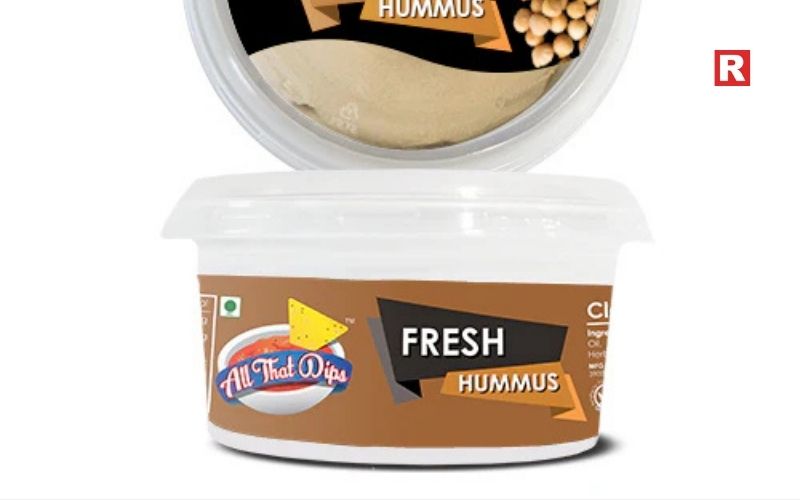
All That Dips is a brand from Vadodara that's famous for its dips and spreads made fresh without any yucky preservatives. Hummus is one of their big sellers. They have different kinds of hummus, like roasted garlic, spicy Sriracha, and the regular chickpea kind. They all come in 150-gram tubs, so you can start snacking right away. What makes them special is that they make their products in small batches and only use real ingredients. All That Dips sells its hummus in a bunch of cities in India. You can get it from online grocery stores and regular shops. So, it's easy for anyone who wants some good Mediterranean-style spreads.
Check out: India's Famous Namkeen Brands: The Top 10
5 Ways to Keep Tomatoes Fresh and Storage Tips
7. Kaze Living

Kaze Living started out in Delhi NCR as a food startup that cared about good food and living sustainably. They wanted to get fresh, good food, often made by hand, to people in the city. They sell things like organic veggies, milk-free options, sauces, snacks, and also their own ready-to-eat hummus, as a healthy lifestyle thing. Kaze Living says their hummus is natural and doesn't have preservatives. It's got the usual stuff like chickpeas, tahini, olive oil, garlic, and spices. You can buy it in small tubs that are good for dipping, wraps, salads, or just snacking. They sell regular hummus, olive hummus, and other kinds too, for city folks who want easy and healthy spreads.
8. DAMAI
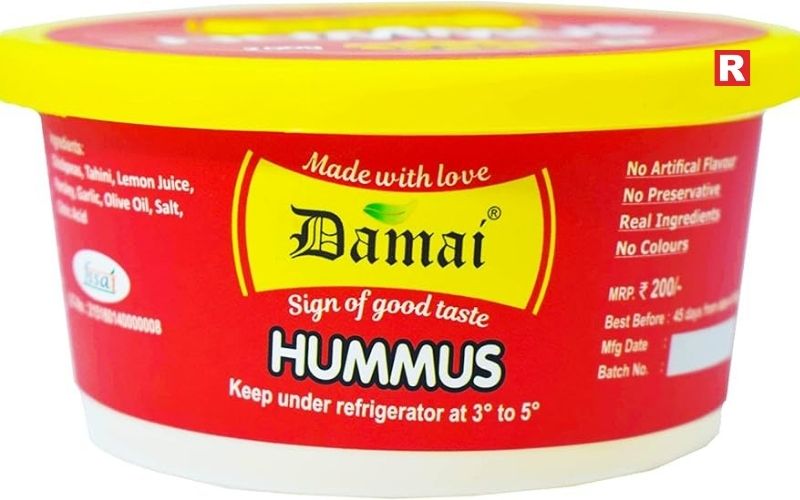
DAMAI is an Indian company based in Mumbai that makes hummus, jalapeño, and pepper dips. You can find them in trade and wholesale directories. They seem to focus on selling in large quantities to businesses instead of individual retail customers. Since DAMAI has its trademark in the food-spread area, which includes hummus and veggie dips, it looks like they want to sell ready-made dips in India instead of just importing them. If you're a business, like a caterer or restaurant, looking for hummus, DAMAI could be a good option for large orders. But you might not find their products in regular supermarkets across the country since they probably sell through distributors. So, DAMAI is aimed at businesses and people who buy in bulk.
Learn more: 15 No-Oil Recipes That Taste Amazing
The Final Scoop
Hummus is getting bigger in India as people want easy, good-for-you food with simple stuff in it. The brands that do hummus well have a texture people can count on and good flavors. Hummus is easier to find now, too, since it's not just in fancy health food shops anymore. The eight brands you see here are some of the reasons it's getting so popular. They're also helping people who care about what they eat find what they're looking for.

India’s love for savoury snacks runs deep, with roots that stretch back centuries. Every region has its own signature blend of crisp, spiced, and aromatic treats. Snacks like namkeen that are easy to carry and can handle the country’s warm climate. What started as a local speciality from small neighbourhood shops has, over time, grown into a thriving industry, thanks to rising demand and changing lifestyles.
Over the last thirty years, the way namkeen is made and enjoyed has undergone dramatic changes. Improved transportation, organised production, and better packaging have helped regional recipes gain fans nationwide. Today, grocery shelves are lined with a colorful array of familiar packets, perfect for everything from a quick bite to festive celebrations.
As incomes have grown and retail networks have expanded, some brands have become household names. Their products are trusted for their consistent flavors and wide variety, making them the backbone of India’s packaged savoury snack market. Let's take a look at 10 such brands that come to the top.
Read more: 12 Simple Tiffin Dish Ideas for Kids
Evolution of Branded Namkeen in India
The journey from loose snacks sold at local shops to the neatly packaged namkeen we see today has been quite remarkable. Small businesses that once served only in their neighbourhoods began experimenting with mechanized frying, standardized recipes, and basic packaging. As more people developed a taste for these snacks, producers scaled up, introduced quality checks, and started making larger batches.
The rise of supermarkets and the convenience of online shopping has also accelerated this transformation. Suddenly, flavors that were once local secrets became available nationwide. Brands that adapted quickly built strong distribution networks, secured reliable ingredient supplies, and invested in packaging that kept snacks fresh. These changes helped namkeen evolve from a local favorite to a staple in homes across India.
The Top 10 Namkeen Brands in India
The following brands are widely available across the country and have become favorites for millions of snack lovers.
1. Haldiram’s
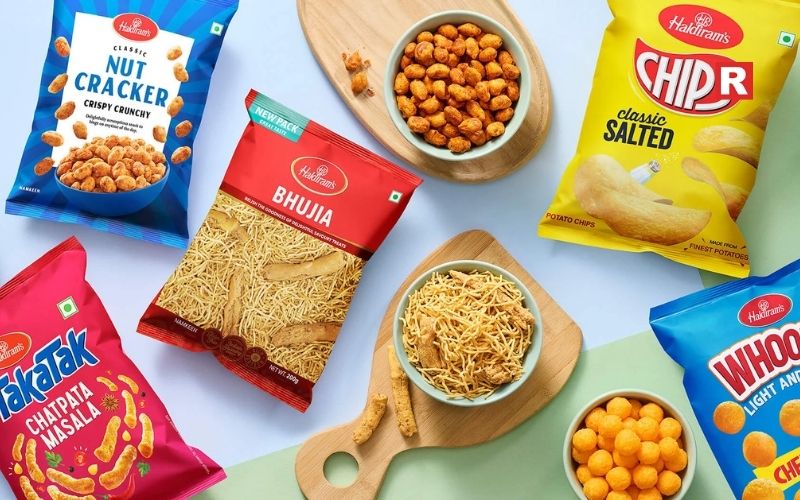
When it comes to packaged namkeen, Haldiram’s is often the first name that comes to mind. Starting as a small shop in Rajasthan, it has grown into a national powerhouse, offering everything from mixtures and bhujia to nuts and sweets. Haldiram’s is known for its reliable quality and flavors that appeal to both traditionalists and those looking for something new. Classics like Aloo Bhujia, Khatta Meetha, and Navrattan Mix are staples in many households. With strong marketing, a focus on hygiene, and a reputation for consistency, Haldiram’s has set the standard for the industry.
Know more: 10 Best Tea and Dessert Pairings for Café Enthusiasts
2. Bikanervala
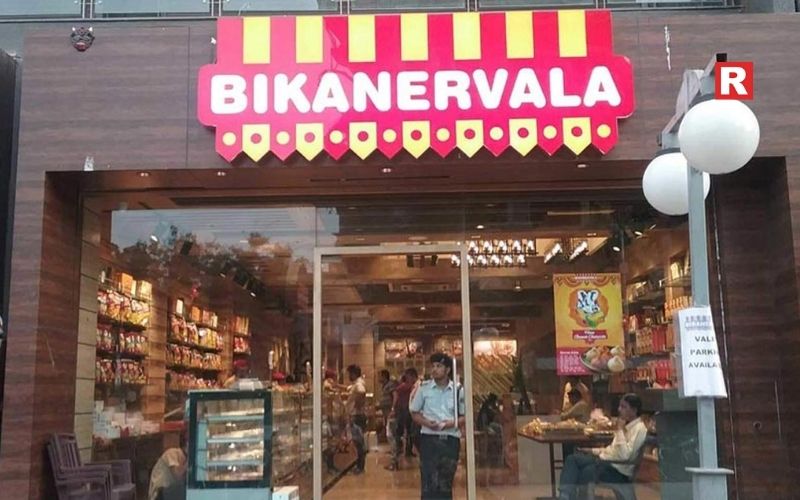
Bikanervala has managed to keep the spirit of Bikaner’s culinary traditions alive while adapting to modern packaging and distribution. Famous for its crisp bhujias, nut mixes, and savory blends with just the right amount of spice, the brand is especially popular during festivals. Its retail outlets have helped it reach customers far beyond northern India, and every mix reflects a commitment to preserving authentic flavors while ensuring consistency.
3. Bikano

As the packaged foods division of Bikanervala, Bikano has become a familiar sight in grocery stores nationwide. The brand specializes in ready-to-eat namkeen that stays fresh and flavorful, even after long storage. Popular offerings include Chana Jor Garam, All In One Mix, Moong Dal, and spiced peanuts. Bikano’s sturdy packaging and reliable distribution make it a go-to choice for those seeking both value and taste.
4. Balaji Wafers

Balaji started in Gujarat and has steadily built a strong presence across India. While it’s best known for potato wafers, the brand also offers a range of mixtures, sev, and other namkeen varieties. Balaji’s appeal lies in its affordable pricing and flavors that fit everyday snacking habits. By focusing on straightforward tastes and improving its distribution, Balaji has become a favorite among younger consumers and families alike.
5. Cornitos
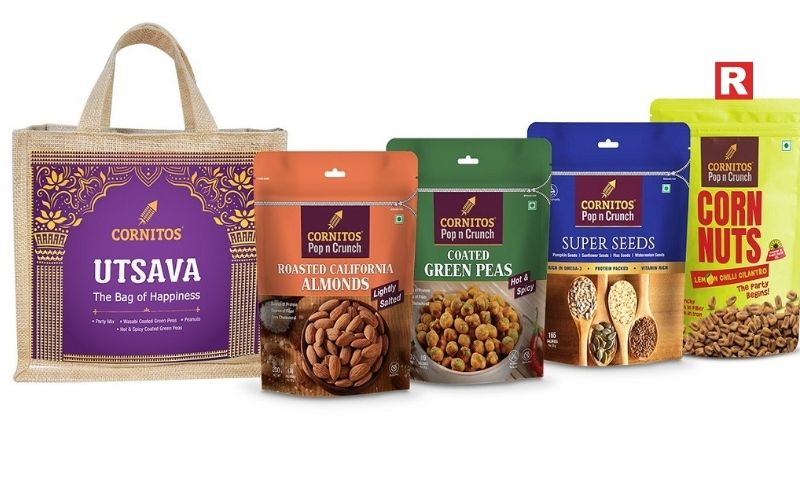
Cornitos brought a fresh twist to the Indian snack scene with its nacho crisps and roasted nuts. Over time, it expanded its range to include mixtures and coated peanuts, catering to those who prefer spicy namkeen made with cleaner ingredients. Cornitos stands out for its focus on roasting instead of deep frying, giving its snacks a unique texture. With modern packaging and a strong presence in supermarkets and online stores, it’s a top pick for anyone who enjoys global-style snacks with an Indian touch.
6. Prabhuji Pure Food

Part of the Emami group, Prabhuji Pure Food blends the rich heritage of eastern Indian recipes with large-scale production. The brand offers bhujia, chanachur, dal mixtures, and special festival packs that appeal to a wide audience. Known for its bold, sharp flavors, Prabhuji has expanded its reach across major cities, earning a reputation as a dependable choice in the national namkeen market.
7. Aakash Namkeen
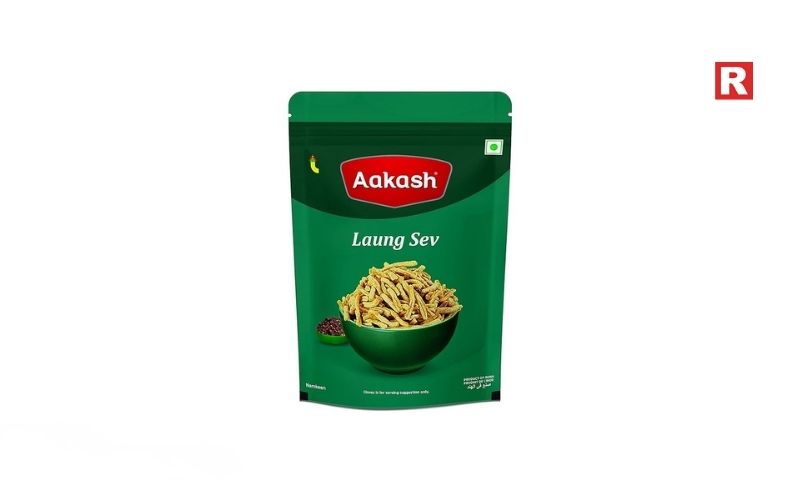
Aakash Namkeen began in Indore, a city famous for its snacking culture. By staying true to its regional flavors while ensuring consistency, Aakash has grown from a local favorite to a nationally recognized brand. Its range includes sev, mixtures, peanuts, and dal-based snacks that stay crunchy and fresh. Improved packaging and a wider product line have helped Aakash find its way onto shelves across India, especially for those who crave the taste of central Indian namkeen.
8. Yellow Diamond
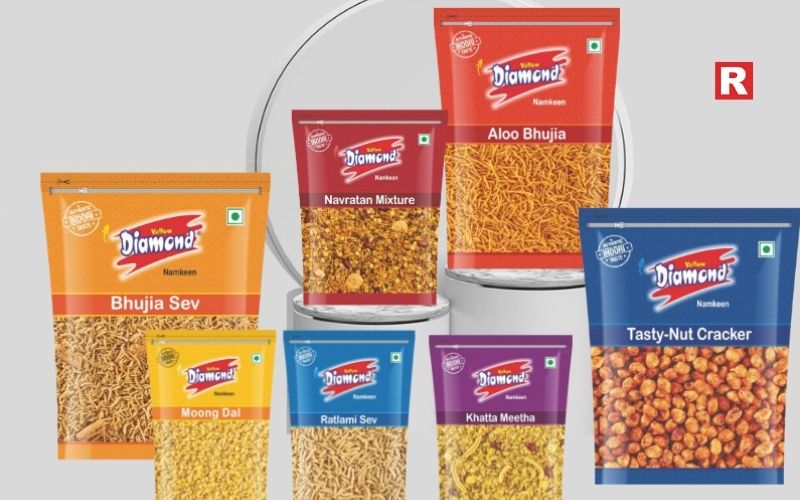
Yellow Diamond, from Prataap Snacks, is known across India for its chips and namkeen blends. The brand focuses on simple, well-seasoned flavors that are perfect for family snacking. With products like rings, sticks, dal mixes, and sev, Yellow Diamond offers affordable options for daily treats. Strong partnerships with retailers have helped it compete with bigger brands and become a staple in many homes.
What's new: 10 Vegan Side Dish Ideas That Complete Any Meal
9. Haldiram’s Nagpur (Haldiram Foods International)

While it shares Haldiram’s name, the Nagpur-based company operates independently, with its own extensive distribution network. Its classic mixtures, lighter namkeen options, and nut-based snacks are easy to find in supermarkets and online. Consistent packaging and balanced spice levels keep customers coming back, and the brand’s mix of traditional and modern products appeals to all ages.
10. GRB Snacks
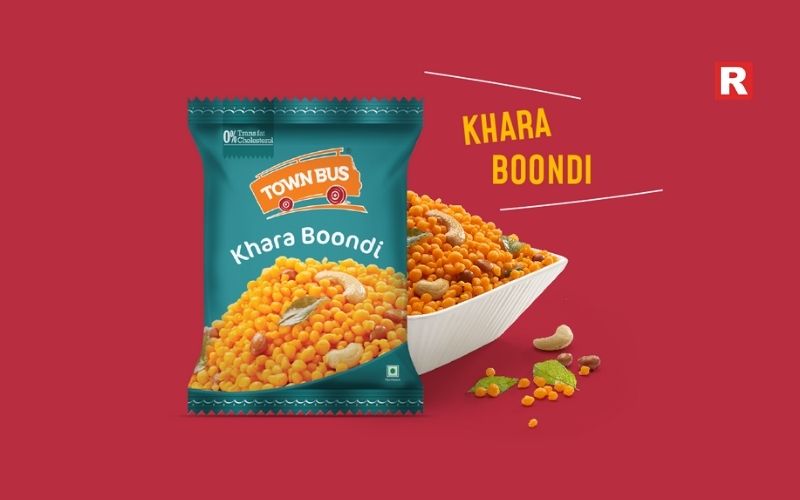
Originally a dairy and sweets brand from South India, GRB later branched out into namkeen. Its national reach is built on reliable distribution and long-standing trust. GRB offers mixtures, sev, murukku, and other regional favorites, with a flavor profile that leans toward South Indian spices. The brand’s presence in both offline and online stores makes it easy to find, offering a tasty alternative to the more common North Indian styles.
Check out: 10 Healthy Spreads Ideas That Turn Bread Into a Better Snack
11 Alcohols With the Highest ABV in India
Role of Regional Influence in National Brands
Regional flavour traditions continue to play a significant role in shaping the product lines of national namkeen companies. Many of these brands originated in small towns, where unique spice blends and preparation styles contributed to the development of a unique local namkeen.
As these businesses expanded their operations across India, they retained the essential characteristics of their original flavours. At the same time, they made careful adjustments to elements such as salt content, spiciness, and texture to accommodate the preferences of a wider consumer base.
This careful balance between authenticity and adaptation has enabled these brands to appeal to customers nationwide while maintaining a connection to their roots. Consumers often identify these regional flavour notes immediately, fostering a sense of familiarity and trust.
Consequently, the market reflects a harmonious relationship between local tradition and national presence, with both aspects complementing rather than competing with each other.
Comparison of Flavour Profiles and Price Range
These ten brands showcase a wide variety of flavors. Northern styles typically use gram flour, mild heat, and a hint of tanginess. Western options often feature dry spices and a warmer flavor profile, while southern snacks might include curry leaves and sharper, bolder notes. This diversity means there’s something for everyone, no matter your taste preferences.
Prices vary depending on pack size, but all brands offer both small, affordable packets and larger family packs. The combination of familiar flavors and accessible pricing keeps these snacks popular in every part of the country.
Learn more: 5 Ways to Keep Tomatoes Fresh and Storage Tips
The Golden Crunch
India’s namkeen market is, in some ways, the story of Indian food in general. It is tradition and mass production working side by side. These brands can serve people from many different parts of the world, while still maintaining that regional appeal, but a consistent quality across every town, city and region of the country. Their products have not only formed everyday habits but also shown up during celebrations and in backpacks. As they have expanded distribution and taken care of their packaging, they have also kept a strong flavour profile: They shape how Indian snacks are. They unite different tastes under the umbrella of one familiar flavour.

Every parent knows how tiring it is to pack a tiffin for your child every day. Especially when your child is bored with the same repetitive menu every day and demands something new. And it isn’t easy for you to keep coming up with new recipes every day that are easy to make, fast to pack and make your child satisfied at the same time. Also, the weekday rush makes it difficult to prepare something new within minutes.
But honestly, making healthy lunches doesn’t have to be such a headache. Kids really just need a good balance of carbs for energy, protein for growing, and veggies for all those vitamins. The trick isn’t to make some picture-perfect meal; it’s about finding recipes that work on real, busy mornings. And this is where simple tiffin recipes come in. They are easy to make and delicious to the core.
In this article, we will be sharing 12 simple tiffin ideas for parents to look forward to. If you’ve got the basic ingredients ready, then you can turn those chaotic mornings less stressful.
Read more: How to Dry Foods at Home for Beginner Meal Preppers
The List of 12 Simple Tiffin Dish Ideas
1. Vegetable paratha roll

Paratha rolls are a good choice if you want to sneak in some veggies in your kid’s tiffin without them knowing. Prepare the dough in advance, then fill with grated carrot, cabbage, or mashed potato and a pinch of spices. Once the paratha is cooked, wrap it with a dab of curd or butter. The rolls stay intact for several hours, stay soft, and are easy for kids to eat.
2. Mini idli with podi

Mini idlis are easy for children to eat and digest. Make the batter the night before to save time. After steaming, just toss them with a bit of ghee and mild podi mix. They’re bite-sized and go well with some cucumber or fruit on the side. As they are gentle on the stomach, they are suitable for eating after a heavy dinner or a hot day.
3. Vegetable fried rice cups

Turn leftover rice into cute fried rice cups by just pressing warm veggie rice into cup shapes with the back of a spoon. This keeps the portion organised and also makes it easy to eat for children. The rice can have simple vegetables like peas, carrots, and corn, along with some salt and pepper. They’re tidy, easy to eat, and can be packed neatly into any box. Plus, they stay tasty without getting oily.
Know more: 10 Healthy Spreads Ideas That Turn Bread Into a Better Snack
4. Besan chilla wraps

Besan chillas are soft, cook fast, and the batter can be made ahead of time. You can fill them with grated veggies or paneer after cooking, roll them up, and make a wrap that stays moist and easy to chew. Children find them easy to chew and also enjoy their mild taste. This also helps you to add protein to your child’s diet as they are made from chickpea flour.
5. Curd rice with cucumber

Curd rice is a classic and soothing tiffin option. It stays well in a thermos and feels light and gentle on the stomach, even on hot days. Mix rice with fresh curd, a little salt, and chopped cucumber. Add a quick tempering of mustard seeds and curry leaves for a nice aroma, and it’s done. The soft, cool texture and hint of crunch are comforting for kids, especially those of younger ages.
6. Stuffed paneer sandwiches

Stuffed paneer sandwiches are a good mix of flavor and protein. Mix crumbled paneer with finely chopped veggies and gentle seasoning, stuff it between lightly toasted bread slices, and you’re done. They’re quick to make, easy to eat, and stay fresh for long hours. Paneer tastes well even with minimal spices, so even picky eaters eat it without hesitation.
7. Lemon sevai

Lemon sevai is quick, light, and full of flavour. What makes it cool is that it is full of flavor without being spicy. Vermicelli is thin, so it cooks fast and soaks up lemon juice evenly. Toss in some mustard seeds, curry leaves, and turmeric for colour and aroma. It stays loose in the tiffin and doesn’t clump up, even after cooling. This is great when you don’t have much time to cook something up but still need a comforting meal.
8. Masala poha

Masala poha is a balanced mix of carbs and veggies. Just sprinkle water, a little bit of salt and a little bit of sugar over poha (Flattened rice). Water will soften the poha, and salt will enhance the flavours of other ingredients. Sugar, on the other hand, balances the flavour and adds a little bit of sweetness. Then cook them with peas, carrots, or peanuts and a squeeze of lemon. Poha stays soft and warm in an insulated box and fits easily into small tiffin sections.
What's new: 10 Vegan Side Dish Ideas That Complete Any Meal
9. Dal rice muffins

These dal rice muffins are made by blending cooked rice, dal, veggies, and a spoonful of curd, and then baked in little moulds. Once they’re done, they become firm on the outside but stay soft inside, making them perfect for school tiffins. Each muffin packs in protein from the dal and energy from the rice. The taste is gentle, so most kids don’t make a fuss, and the muffin shape always gets their attention. They store well and don’t crumble easily.
10. Soft thepla with yoghurt dip

Soft thepla, made from whole wheat and fresh fenugreek, keep their moisture if you wrap them up right. They can be folded into triangles and packed with a portion of yoghurt in a separate container. The theplas have a gentle seasoning, and dipping them in cool yoghurt balances things out. This combo works neatly into a tiffin and stays fresh for hours. It’s a safe choice for days when your kid needs something filling but not too heavy.
11. Sweet corn pulao

Sweet corn pulao is mild and a bit sweet, which many kids like. You just need cooked rice, sweet corn, and some gentle spices. You can add peas or carrots for color if you like. The pulao smells good and is easy for children to scoop up with their spoons. It is great for kids who like soft, gentle textures. The corn adds a bit of pop, making the meal interesting without overwhelming spices.
12. Moong dal cheela bites

Moong dal cheelas cook quickly and carry plenty of protein. Once made, cut them into small bites so that it is easy for kids to eat on their own. You can make the batter ahead of time and store it in the fridge. Sometimes, a light filling of vegetables or paneer can be added for variety. These cheela bites stay soft and flavourful for hours. They work as a main dish or as part of a mixed tiffin.
Check out: 5 Ways to Keep Tomatoes Fresh and Storage Tips
10 Veg Chicken Substitutes for High-Protein, Balanced Meals
Common Prep Shortcuts for Busy Parents
- Making doughs, cheelas, and batters the night before can save you loads of time in the morning. You’ll just need to cook them up in the morning when you don’t have enough time.
- Chop your veggies in advance and keep them in airtight containers. Carrots, beans, capsicum, or whatever your kid likes. They stay fresh and help to maintain variety.
- Cooking grains like rice, sevai, or millet ahead of time is a good way to cut time. You can store them in the fridge as they stay usable for a day or two, and you can make quick meals without starting from scratch.
- If you can, pack parts of the tiffin the night before. Dry snacks, fruit, or anything that won’t spoil can be placed into containers. This helps you save time and prevent rushing first thing in the morning.
Variations for Picky Eaters
Most kids are picky eaters at some point, but small adjustments can make a big difference. You can swap out veggies for the ones your child actually likes. Cheese or mild spreads can make sandwiches or wraps more tempting. Familiar flavors help kids warm up to new foods without hesitation. When you make slow, steady changes, kids slowly get braver about trying new things.
Learn more: 15 No-Oil Recipes That Taste Amazing
Tiffin Made Easy
Parents have a lot of tasks each morning, including preparing lunches or tiffins, which can feel like an extra chore in their hectic schedules. However, this task becomes easier when parents know these simple, balanced, and easy-to-make recipes that also help their children during the long hours at school. When meals are healthy, colourful, mild-flavoured and easy to eat, they support good eating habits within children and help develop a positive relationship with food. With a little planning and a few shortcuts, packing tiffins gets easier for everyone.

The side dishes on a dinner plate are often secondary to the main dish, but they can influence the overall dining experience. In plant-based cooking, side dishes take on an even more significant role by providing contrast to the primary dish, adding extra nutrition, and creating a sense of satisfaction. Well-chosen vegan side dishes also create a visual and flavorful balance to the main dish by adding color, freshness, and texture to enhance the overall experience rather than detracting from it.
While the concept of creating side dishes is relatively easy, the questions that arise about seasoning, cooking methods, and combinations frequently halt progress. However, once the basic principles are understood, vegan side dishes will become one of the easiest aspects of daily cooking.
In this article, ten ideas for side dishes are listed, which can be easily used in either Indian or international cooking. Although relatively easy to prepare in a short amount of time, these ten ideas can be quite flexible for larger meals.
Read more: How to Dry Foods at Home for Beginner Meal Preppers
What Makes a Great Vegan Side Dish
Clean flavours are the basis of any good vegan side dish. Fresh vegetables, grains or legumes provide the foundation, and herbs, spices and acids provide brightness and clarity to the dish. A good side complements the main dish without oversaturating it.
In addition to flavour, texture plays a role. A plate should include a mixture of crunchy slaws, tender greens, soft grains and crispy roasted vegetables that create a balanced meal. When textures are mixed, this adds to the overall impression of a complete meal.
Most importantly, a good side dish is quick to prepare. The ideas below can be created using a minimal number of steps. They use simple preparation methods like Roasting, Sautéing or Simmering. These techniques allow for the ingredients to be highlighted, while still being flavourful without using any heavy seasoning.
Ten Vegan Side Dish Ideas
1. Roasted Seasonal Vegetables

When it comes to meal preparation, roasted vegetables are a versatile option and can be made with whatever you happen to have on hand. If you cut your vegetables (carrots, pumpkins, beans, peppers, potatoes, etc.) into uniform pieces, toss them in oil and salt, and add whatever spices you want to use, you will have a wonderfully roasted vegetable that is full of flavour due to the heat, and a crispy outer layer while being very soft on the inside. You can serve roasted vegetables with rice bowls, light tofu, or any type of lentil base. Additionally, roasted vegetables can be refrigerated for a day or so, making them easy to prepare in advance for large meals or to use as leftovers.
Know more: 10 Healthy Spreads Ideas That Turn Bread Into a Better Snack
2. Warm Lentil and Herb Salad

A warm lentil salad provides healthy protein to eat as a side dish with stews, bread or grilled vegetables. Brown and green lentils can maintain their texture when cooked. When cooking lentils, you can add cooked lentils to a salad of chopped fresh herbs, lemon juice and a bit of olive oil. To give it a vibrant look, add a sprinkle of freshly ground black pepper and chopped onion and tomato. The heat of the lentils allows them to absorb the seasonings, giving the salad a wonderful depth of flavour. The salad is intended to complement rather than compete with main courses.
3. Garlic Sautéed Greens

Garlic sautéed leafy greens like kale, spinach, mustard leaves, or amaranth soften rapidly once placed into a sauté pan. The garlic provides a strong enough taste that you could serve these sautéed greens by themselves; however, their flavours also complement many different types of larger meals and entrees. With sautéed greens, you can prepare them using very few ingredients. The cooking time is so quick that nutrients and colour are retained while providing a tender texture. As a side dish, sautéed greens complement grain bowls, pasta dishes, and bean-based main dishes extremely well. Sautéed greens are an excellent method of adding freshness when your main dish may seem too heavy or dense.
4. Crisp Vegetable Slaw with Light Dressing

Shredded cabbage, carrot sticks and sliced bell pepper provide good crunch. When using shredded cabbage for slaw, you may want to keep the dressing on the light side: just a squeeze of lemon juice, salt, pepper, and a drizzle of oil will suffice. Keep the vegetable pieces thinly sliced to maintain their crunch. Slaw works really well when eaten with sandwiches, in stir fry dishes, as an accompaniment to baked tofu recipes and on any platter where a cool and crunchy addition will enhance the dish. As slaw keeps fairly well in the refrigerator for several days, if you decide to make slaw ahead of time, it will be convenient to have it ready before making your meal.
5. Chickpea and Cucumber Toss

To create a tasty salad that is high in protein, it is best to use chickpeas as your base. Chickpeas are an excellent source of protein, and their dense texture provides an excellent foundation for a salad that is refreshing and light. Adding cucumbers, tomatoes and fresh herbs results in a happy combination of flavours and textures that are crisp and satisfying, with just a sprinkling of salt, lime juice and black pepper typically required for seasoning. This salad pairs perfectly with pita breads, rice, grilled vegetables or other simple side dishes, and it can also balance out heavier meals that rely upon cooked ingredients. Because the preparation method involves using only pre-cooked chickpeas and uncooked vegetables, it is considered to be quite easy to prepare.
6. Pan-Seared Tofu Bites

Tofu absorbs flavour easily when cooked this way, so once the tofu cubes are well browned on each side, seasonings such as salt, pepper, lemon or lime juice can be added to enhance the flavour of the dish. This tofu recipe provides a delicious texture, as well as providing the savoury flavour that will complement a variety of dishes, including stir fries, grain bowls or soup. In addition, adding these cubes of tofu to any dish will provide protein that can make a meal more significant. The secret to achieving a good sear on tofu is to remove any excess moisture before placing the cubed tofu into a hot pan. Removing excess moisture will lead to cleaner sears on the tofu cubes.
What's new: 10 Vegan Fusion Curries From Around the World
7. Quinoa Pilaf with Nuts and Herbs

Quinoa is a grain that provides an airy base for both Indian and international dishes. Quinoa can be mixed with nuts, herbs, and a light, indulgent seasoning once cooked and sprinkled with a touch of lemon juice to enhance its flavour. The quinoa pilaf absorbs flavours nicely, remains fluffy and does not become sticky. You can use it as a side dish for lentil curries, grilled tofu, or roasted vegetables. Another advantage of using quinoa is that it cooks quickly and does not need any preparation for quick weeknight meals.
8. Mashed Sweet Potatoes

Sweet Potatoes are naturally sweet and are smooth-textured. They add to the texture and appearance of the plate. Simple boiling with a little oil and salt can be mashed into a deep consistency, with pepper or cinnamon added to produce complexity in flavour. This mash pairs nicely with other roasted vegetables, mushrooms, or bean-based main courses and also balances out spicy dishes by providing steady, mild flavours. The texture of the mashed sweet potatoes softens the crisp texture of many of the meal elements on the plate.
9. Sautéed Mushrooms with Fresh Pepper

Pan-fried mushrooms have a nice brown colour and earthy flavour, which provides a nice pairing for rice and bean-based meals. Sautéing mushrooms with garlic or onion adds a great tenderness to the mushrooms and an added depth of flavour. Freshly cracked black pepper is very complementary to their earthy richness. Mushrooms work nicely as a side dish with rice bowls, tofu stir-fry and warm salads. Cooking mushrooms is quick and requires minimal additional ingredients, which is a strength of the mushroom, especially when the other items on your plate have a lot of complex flavours.
Check out: Top 10 Vegan Street Foods in India Every Indian Loves
Top 10 Vegan Dishes in Asian Cuisine
10. Stuffed Bell Peppers or Baked Vegetable Cups

Stuffed vegetables are a nice way to have a more significant side-dish and create a bit of an elevated feel for your meal without having to go out of your way. You can stuff bell peppers, tomatoes or small pumpkins with cooked grain, vegetable or bean mixtures. The shells of the vegetables will become soft and tender while the filling stays warm through a short baking time. Stuffed vegetables are a great addition to any kind of festive or everyday meal that needs to have a central support item. Stuffed vegetables add colour and a nice touch of care to your dining table. Additionally, you can always change the colour of the filling depending on the season, giving you lots of flexibility with the concept.
Ingredients to Keep Ready for Quick Vegan Sides
- Olive oil, mustard oil or any non-aromatic oil can be used to season your dishes.
- The simplest ways to add flavour to your meal are to add salt, pepper, cumin and paprika.
- Adding citrus fruits, juices will provide the additional acidity you want for a more balanced flavour profile.
- Fast-cooking grains like quinoa, millet and rice are reliable bases for your meals.
- Beans and lentils are great additions for texture as well as protein and bulk.
- Using seasonal vegetables will help to make it easier to create fresh combinations of meals.
- Finishing touches using herbs such as coriander, mint and parsley will give your dish a clean taste.
Learn more: 7 Protein-Rich Vegan Foods That Pack a Punch – No Meat, No Problem!
Plant Powered Sides
Choosing thoughtfully created Vegan Sides can make a simple meal feel like a complete and comforting feast. When cooking with vegetables, grains and legumes in their most natural state, you'll find endless options with minimal work. Seasonal and personal taste variations also work well for each dish, making everyday cooking practical. As you create new combinations, you'll build a sense of balance within your creations and add flavour, texture and visual interest to your table. Having a small collection of go-to vegan sides will also help you easily and quickly create delicious plant-based meals.

A lot of people are shocked when they find out just how much produce goes to waste at home. Almost a third ends up in the trash just because it spoils before they can even use it. So, what can you do if you want your fresh ingredients actually to last, but you don’t want to rely on constant refrigeration or daily shopping trips?
Drying food is one of the oldest methods that works exceptionally well. By taking out the moisture, you slow down spoilage and turn fruits, veggies, and herbs into compact and long-lasting ingredients. Most people have heard of drying, but if you’re a beginner, it’s easy to feel a bit lost. You don’t know how to start, and neither if the dried food is safe to eat or not.
Once you get the basics down, you waste less, save some cash, and make meal planning way easier. In this article, you’ll know the essentials needed for drying food at home, tips for using simple tools, and step-by-step advice so you can tackle your first batch with confidence.
Read more: 10 Healthy Spreads Ideas That Turn Bread Into a Better Snack
Why Drying Helps with Meal Prep

Drying makes meal planning a lot easier. First off, it keeps fresh produce good for way longer, so you don’t have to rush to use everything up. Plus, dried ingredients take up less space, so your pantry doesn’t get crowded.
You can prep a bunch of stuff on the weekend, stash it away, and then just grab what you need during busy weekdays. It also saves money. Just buy seasonal produce in bulk when it’s cheap, dry it, and you’re set for months. You always have reliable ingredients ready for soups, stews, and even snacks. Dried items behave the same way each time they are rehydrated, which simplifies planning.
Know more: 10 Veg Chicken Substitutes for High-Protein, Balanced Meals
Foods That Dry Well

Most ingredients handle drying pretty well, but some need a bit more attention.
- Fruits like apples, bananas, mangoes, and pineapples keep their flavor and turn into sweet, natural snacks.
- Tomatoes, onions, carrots, and peas dry out nicely, too. Later, you can toss them into quick meals without much fuss.
- Herbs like mint, parsley, thyme, and coriander dry fast and stay fragrant if you stash them right.
- You can even dry-cook grains like rice, millet, or quinoa. They make light, easy-to-carry meal mixes for later.
- Mushrooms keep their character after drying and rehydrate with a good texture when you rehydrate them.
- As for nuts, give them a gentle warm-up to get rid of any leftover moisture before you pack them away for the long storage.
If you’re just getting started, stick with fruits, veggies, and herbs. Once you’re comfortable, try branching out.
Overview of Drying Methods

Not every drying method works for every home or climate.
- Air drying: It is great for herbs and thin veggies if you’ve got a clean, dry room.
- Sun drying: If you live somewhere sunny and not too humid, sun drying makes sense. Just remember to cover the food with mesh to keep bugs away.
- Oven drying: It lets you control the heat and airflow, so it’s a solid choice for beginners.
- Dehydrators: These are even easier. They keep a steady temperature for hours, and you can dry a lot at once without much effort.
You’ll need a little practice with each method, but the main goal never changes: slow, steady removal of moisture.
Preparing Foods for Drying
Getting things ready makes a huge difference. Wash your fruit first, peel if you need to, and slice everything into even pieces. That way, everything dries at the same speed. Some veggies do better if you blanch them. Just a quick dip in boiling water. It brightens the color and keeps the texture nice while they dry. For herbs, rinse them gently, pat them dry with a towel, and give them a little space to breathe.
How you set up your trays matters, too. Don’t let the pieces touch. Thin slices make it easier for moisture to get out. If you want fruit to keep its color, give it a quick dip in lemon water. Always pat veggies dry before laying them out, or else the extra water slows everything down.
What's new: 10 Vegetarian Indian Foods That Help You Gain Weight the Healthy Way
Step-by-Step Drying Guide
- Start with fresh, firm produce.
- Peel and slice as needed.
- Lay everything on trays covered with parchment paper or mesh.
- Set your oven or dehydrator to a low temperature, whatever suits your ingredient.
- If you need to, rotate the trays so everything dries evenly.
- As things get close to being done, check the texture.
- Keep drying until the centers are completely moisture-free.
The more you practice, the better you’ll get at knowing how each ingredient behaves.
How to Tell When Foods Are Fully Dry
A few easy checks help to figure out if the produce has dried completely. Fruit should feel leathery, not sticky. Bend a piece, and if it doesn’t leak moisture, you’re good. Veggies should snap or feel crisp, depending on their type. Herbs should crumble easily in your fingers. Mushrooms turn firm and light, and shouldn’t feel spongy in the middle.
A common beginner error is to stop the process too early. Even a little leftover moisture can cause mold when you store things. If you’re not sure, let it dry a bit longer. When it’s done right, it creates a texture that feels solid, dry, and stable.
Cooling and Storing Dried Foods

Cooling is an essential step. Hot dried food usually lets off a bit of trapped moisture as it cools, so leave it uncovered for a short while. Once it’s cool, pack it into airtight jars, vacuum bags, or sturdy containers.
Label everything and mark what it is and when you dried it. Store your jars somewhere cool and dark to keep the color and flavor. Sunlight or heat can shorten shelf life. It’s worth checking your stash regularly to make sure everything stays dry and in good shape.
How to Use Dried Foods in Meal Prep
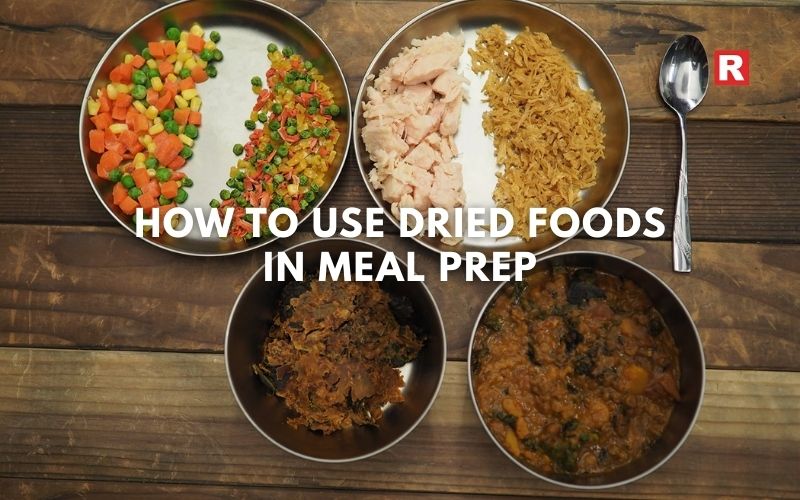
Rehydrating dried foods is pretty simple. Most veggies just need about ten to fifteen minutes in warm water. After that, they’re soft again and work just like fresh ones in soups or stews. Dried tomatoes soak up water and taste great stirred into pasta or as a flavor boost. As for fruit, you can snack on it right out of the bag, or soak it if you want to bake with it.
Meal prep gets a whole lot easier when you’ve got dried foods ready to go. Throw some dried lentils, onions, tomatoes, and herbs in a jar, and you’ve got everything you need for a quick stew. Pack some dried fruit and nuts together, and there’s your snack for the office. Even cooked grains, once dried, spring back to life with a splash of hot water. This is a lifesaver on a busy day.
Check out: 15 No-Oil Recipes That Taste Amazing
Top 6 Fireless Food Dishes for Your Quick Meals
Safety Tips for Beginners
Safety isn’t just a rule; it’s what sets you up for success in the long run.
- Start simple by keeping your knives and surfaces clean.
- Dry your trays and containers before you use them. Water just invites trouble.
- Watch your temperatures. If things get too warm, microbes move in fast.
- Avoid drying items that contain high fat levels.
- If you spot weird smells, colors, or see mold, toss it. Don’t take chances.
Stick to these basics, and you’ll feel way more confident, and your food won’t let you down.
Frequent Mistakes to Avoid
Several common errors interrupt the process:
- If your slices aren’t the same size, they won’t dry evenly.
- Cramming too much onto the trays? That blocks the air and slows everything down.
- Relying only on time leads to some pieces ending up too dry, while others still being sticky.
- If you pack food up before it’s cool, you’ll trap in moisture.
- And storing dried food somewhere warm or humid? That just makes it spoil faster.
The good news is, once you spot these issues, it’s simple to fix them.
Simple Starter Projects
The best way to begin is with items that dry quickly and predictably.
- Apple rings
- Banana chips
- Onion flakes
- Mixed vegetable chips
- Tomato flakes
- Dried mint or coriander
- Simple herb seasoning blends
These projects help beginners understand the process without much cost or effort.
Learn more: Easy & Delicious Meal Prep Ideas for a Busy Week
Your Drying Journey
Drying food at home is a simple way to start preserving and makes you pay more attention to how you cook. Every time you try it, you get a better feel for timing, texture, and how to store what you make. Over time, you end up with a pantry that is fully organised. When you’ve got jars of dried fruits, vegetables, and herbs on hand, putting together a meal gets a whole lot easier and faster. You don’t need fancy gear or some kind of expert training, either. Mostly, it just takes patience and a bit of care. Once you get the hang of it, drying food slips into your routine. You save time, cut down on waste, and start to feel a lot more confident in your kitchen.

Tea and dessert pairings have become an essential part of modern culture. They give people a little comfort, but there’s also this bit of excitement in finding flavors that just click. A lot of people actually look forward to seeing how a hot cup of tea will pair with something sweet, rich, or fruity. This curiosity results in creativity, to make tea and dessert pairings that feel a little more thoughtful and something with a bit of personality.
Picking the right tea and dessert can make the menu feel special. The right pairing can mellow out a bold dessert or make the flavors pop. Tea behaves differently with each kind of sweet, which gives room to experiment and present combinations that feel both familiar and refreshing.
This article is for anyone who loves cafés or wants to try different dessert and tea combos. So, let’s dig into ten solid dessert and tea pairings and see how you can make any menu a little more interesting.
Read more: 12 Refreshing Herbal Tea Blends You Must Try This Season
Understanding How to Match Flavours
A good pairing starts with understanding how flavors work together. Tea is full of aromatic compounds, and these react in different ways to the sweetness, tartness, or richness in desserts. Take a bright, citrusy tea, for example, it sharpens up a buttery tart. A malty tea smooths out the punch of dark chocolate. Texture matters too. A crumbly biscuit feels better with a tea that cleans your palate, while a creamy cheesecake calls for something soft and floral.
You’ve also got to think about intensity. Serve a delicate white tea with a heavy brownie, and it just disappears. Put a strong Assam next to a mild sponge cake, and the cake gets lost. The real goal here is to bring harmony between the flavors. Sometimes that means matching similar qualities or balancing contrasts. Some pairings feel classic, others bring something new, like serving a light herbal tea with a rich dessert and letting that gentle tension wake up your taste buds.
Common Tea Types and Their General Behaviour
Most cafés pour all kinds of teas, each with its own personality. Black teas have body and muscle, and they can take on strong desserts. Green teas come with grassy or nutty notes, better with lighter sweets. Oolong is a wild card, sometimes floral, sometimes roasted. White teas are soft and gentle, perfect for mild desserts. Herbal teas add aroma without caffeine, ideal for certain pastries. And then there’s chai, loaded with spices, which pairs beautifully with warm, earthy treats.
Knowing these broad types helps you start building good pairs. Once you pick a category, you can refine by looking at the specific tea you’ve got.
Know more: Top 10 Tea Brands in India That Every Chai Lover Swears By
The Ten Featured Pairings
1. Assam Tea with Chocolate Cake

Assam is bold and malty, which is perfect for a dense chocolate cake. The tea’s strength cuts through all that richness and brings the whole thing into balance. If you’re after a heavy afternoon treat, this is the combo. Cocoa and deep tea notes play off each other, satisfying but not overpowering.
2. Earl Grey with Lemon Tart

Earl Grey’s got that hit of bergamot, so it already leans towards citrus flavors. Pair it with a lemon tart, and the flavors click. The dessert’s tartness lifts the tea’s aroma, making this combo crisp and refreshing. It is just right for a sunny day.
3. Masala Chai with Carrot Cake

Masala chai is all about spice, and it’s a natural partner for carrot cake’s gentle sweetness. Cinnamon, ginger, and clove all echo the cake’s warm, earthy flavors. It’s indulgent, a bit nostalgic, and great for anyone who wants classic comfort with a little twist.
4. Jasmine Tea with Vanilla Sponge

Jasmine tea brings a soft, floral note that doesn’t fight with the mild vanilla sponge. The whole thing feels delicate and calming. This is your go-to if you want something light. It is great for early evening or after dinner.
5. Matcha with Shortbread

Matcha packs a punch of flavors. It is grassy, a little bitter, and bold. But put it next to rich, buttery shortbread, and suddenly, it all makes sense. The cookie softens matcha’s sharp edges, while the tea brings out something deeper in the biscuit. This pairing is a good introduction for customers who want to try matcha without overwhelming their palate.
6. Darjeeling with Berry Tarts

Darjeeling comes with its own natural fruitiness, almost like a muscat grape. Serve it with a berry tart, and the tea brightens up the berries, making everything taste fresh and lively. This combo shines in summer. It is light, refreshing, and just sweet enough.
What's new: Top 10 Japanese-Inspired Matcha Desserts to Try
7. Chamomile with Honey Cookies

Chamomile’s all about calm, with soft floral notes that are not overwhelming. Pair it with honey cookies, and you get a mellow sweetness that matches the tea’s gentle vibe. It’s the kind of pairing people gravitate toward in the late afternoon or evening when they want to unwind.
8. Oolong with Almond Pastries

Oolong teas can go in lots of directions: sometimes floral, sometimes toasty, but they almost always get along with almonds. Almond pastries have that warm, nutty aroma, and oolong slides right in, adding complexity without stealing the show. It’s a little bit fancy, but still easy to enjoy.
9. Mint Tea with Dark Chocolate Mousse

Mint tea slices through the richness of dark chocolate like nothing else. Every sip keeps your palate clean, so the mousse never gets too heavy. Plus, there’s this cool, fresh finish after each bite. This is the magic of mint and chocolate together.
10. Rose Tea with Pistachio Baklava

Rose tea smells like a bouquet, and that floral sweetness pairs perfectly with pistachio baklava. The tea lifts the richness of the pastry, letting the nutty flavors shine through. It’s lush and special, but not over the top.
Check out: Top Famous Indian Desserts You Can Have After Your Meal
How to Make a Healthy Dessert With Just 5 Ingredients
Tips for Creating Café-Style Pairings at Home
- Take a sip of the tea before you pick a dessert. Get a feel for its strength first.
- Rich desserts go best with bold teas, while lighter sweets work well with more delicate brews.
- It’s smart to have a few go-to teas on hand, like Assam, jasmine, or mint.
- Serve your tea at the right temperature. That way, you don’t lose any of its aroma.
- Try out different pairings with friends and see what you all actually enjoy.
- Start simple with your pairings. Once you get the hang of it, you can play around with more complex matches.
Presentation and Plating Suggestions
- Use simple teaware that showcases the colour of the tea.
- Plate desserts neatly to create a café-style appearance.
- Add small garnishes such as berries, herbs, or a dusting of sugar.
- Choose cups that feel comfortable to hold, especially for warm teas.
- Use natural light whenever possible to enhance the visual appeal.
Health and Wellness Angle
Tea and dessert pairings can also fit comfortably into a balanced routine when chosen with a little care. Tea isn’t just about the flavor. Some help you relax, others give you energy, and a few even settle your stomach after a big meal. Green tea, for example, is packed with antioxidants that help your body deal with stress. Herbal teas like chamomile or peppermint are great for soothing your stomach and clearing your mind, especially after you eat. Even black tea, as long as you skip the cream and sugar, gives you a boost without the jitters you get from coffee.
Dessert doesn’t have to be a guilty pleasure, either. You can swap in a little less sugar, use fruit, or try whole-grain recipes that still taste good but feel lighter. Smaller portions help, too. It’s all about enjoying the treat, not going overboard. Plus, a cup of warm tea with dessert really does the trick. It makes rich sweets feel less heavy and helps your body handle them better. When you put a little care into your choices, tea and dessert turn into a small, mindful break that’s good for both comfort and well-being.
Seasonal Pairing Ideas
In winter, go for spiced teas and serve them with warm desserts like ginger cake or apple crumble. When summer rolls around, pour yourself a glass of iced tea and grab a citrus tart or a berry pastry. During the monsoon, nothing beats a cup of aromatic tea paired with crisp cookies or nutty treats. And for festivals? Match regional sweets with teas that bring out their best flavors.
Learn more: 10 Famous Indian Sweets from Different States
Sweet Sips Ahead
Pairing tea with dessert at home adds a cozy, café-like feel to your day. Once you get the hang of how flavors and textures play together, it’s actually fun to experiment. Some days call for bold flavors, others for something gentle. There’s always a combo that suits your mood. Honestly, making these little choices turns an ordinary tea break into something special, a small ritual that makes life feel just a bit more thoughtful.

Bread becomes a more enjoyable food option when combined with tasty spreads that are nutritious and diverse. Many people use traditional toppings such as butter or jam; however, many healthier choices of spreads exist that can provide greater balance and richer flavour. Spreads can transform a plain piece of bread into a healthy snack for busy mornings, late-night cravings, or quick meals at work when properly selected.
A healthy spread has a combination of natural ingredients, thoughtful flavors, and better nutrition, which is far better than packaged snacks. Healthy spreads will replace unhealthy habits that lead to empty snacking and an unhealthy lifestyle. Healthy spreads are generally made in a single serving and typically contain at least one source of protein, fiber, and healthy fats.
This article will list 10 healthy spreads that you can eat with your bread. Each one adds a different character to bread, allowing you to experiment with taste while improving your eating habits.
Read more: 5 Ways to Keep Tomatoes Fresh and Storage Tips
Why Healthy Spreads Matter for Better Snacking
Snacks often influence your overall diet more than you might believe. Most of us choose the most available option, which often means processed food high in either sugar, salt, or refined fats. Healthy spreads create an alternative that's quick but still nourishing.
Spreads made from nuts, seeds, vegetables, or yogurt provide important nutrients like proteins, minerals, and antioxidants. They keep hunger in check, help the digestive process, and maintain energy at an even level. Even children have something to gain from nutritious spreads that are not overly sweet.
You cut down on empty calories and add in more whole foods in a day just by changing over to better spreads. It's simple changes like this that are the backbone of a healthier pattern of eating.
List of 10 Healthy Spread Ideas
1. Almond Butter with Honey

Almond butter provides protein, vitamin E, and healthy fats. Its taste is nutty and mellow; it pairs well with a small drizzle of honey. This spread works on warm toast, as it slightly softens the almond butter and blends smoothly. It can also be a reliable snack before workouts or during busy mornings since it provides a steady release of energy. Most enjoy their toast in a light evening meal with sliced fruits on the side.
Know more: 10 Veg Chicken Substitutes for High-Protein, Balanced Meals
2. Greek Yogurt and Cucumber Mix

A thick Greek yogurt-based spread, with the addition of grated cucumber, salt, and fresh herbs, is a cool, refreshing taste. Rich in protein, it aids digestion. Spread on whole wheat bread for an easy snack that tastes clean and light. This mix is a soft version of tzatziki and goes well with sultry weather. It also goes well with sliced tomatoes or toasted garlic bread.
3. Mashed Avocado with Lime

The mashed avocado, sprinkled with lime juice, salt, and a little pepper, is creamy and bright. Avocado provides healthy fats that help maintain heart health while offering a silky texture that feels nice on toast. This spread works well as either breakfast or a mid-afternoon bite. Now add chopped onions or coriander for a slight Indian touch. It goes well with sourdough or multigrain bread.
4. Peanut Butter and Banana Mash

The peanut butter and mashed banana combine naturally into a sweet, filling spread. You get a combination of protein, potassium, and healthy fats. The banana softens the peanut butter and adds aroma without added sugar. A great combination for children and adults alike. It gives long-lasting energy, hence suitable for school snacks or office breaks. Light toasting helps in balancing out the softness of the mixture.
5. Hummus with Roasted Bell Pepper

Hummus offers protein from chickpeas, calcium from tahini, and richness from olive oil. When blended with roasted red bell pepper, the taste becomes sweeter and brighter. The color also becomes more inviting, and the spread is lighter in tone. This version goes well with multigrain bread and can even be used to replace mayonnaise in sandwiches. It works especially well for those who prefer savory snacks that can be quick yet nutritious.
6. Cottage Cheese and Herb Mix

Cottage cheese mashed with fresh herbs, salt, and a few drops of lemon makes for a light, wholesome spread. Cottage cheese provides the protein without heaviness, while the herbs add freshness. This is best suited for those who like really mild flavors. It also works fairly well as a base for layered sandwiches with lettuce and vegetables, as this mixture holds its shape pretty well on toasted bread and can make a very balanced, light snack.
What's new: 10 Most Popular Coffee Blends in India
7. Tomato and Basil Chutney

This is a sweet and tangy chutney, made with the slow cooking of tomatoes and basil. It contains antioxidants from tomatoes and flavor from herbs. Apply it to warm bread for a comforting taste that can suit both breakfast and teatime. This chutney can also be prepared ahead and stored in the refrigerator. Serve it with a paneer sandwich or with cheese toast to create a nice contrast.
8. Pumpkin Seed Pesto

Pumpkin seed pesto is a great alternative to basil pesto. Ground pumpkin seeds, olive oil, garlic, and herbs come together in this green, nutty spread rich in zinc and healthy fats. The taste is strong and earthy, perfect for those who like stronger flavors. Spread it on lightly toasted bread for a savory snack. On the other hand, the pesto goes great when combined with grilled vegetables or eggs.
9. Date and Walnut Paste

A paste made with softened dates and crushed walnuts offers natural sweetness with fiber and omega-3 fatty acids. It will make for a satisfying dessert-like spread with no refined sugar. It works well with warm bread and can also be used as a topping on crackers. Many people enjoy this spread at night when they want something sweet but wholesome. It is also great for children who prefer gentle flavors.
Check out: 10 Vegetarian Indian Foods That Help You Gain Weight the Healthy Way
15 No-Oil Recipes That Taste Amazing
10. Spinach and Yogurt Dip

Blended spinach mixed with thick yogurt, garlic, and a little salt creates a mild green spread, high in calcium and iron. The yogurt lends a silky smoothness, while the spinach creates depth. It works well on multi-grain bread, offering a refreshing change from the heavier spreads. This dip is easy to store in your refrigerator and can serve as a sandwich base with vegetables
Tips for Making Healthy Spreads at Home
Homemade spreads offer more control over ingredients, freshness, and flavor. When preparing them, select ripe produce and high-quality nuts or seeds. Fresh herbs will improve the aroma and enhance even simple combinations. A small blender or food processor can speed up the work, although many spreads can be prepared by hand.
Balance is a key factor in the preparation of spreads. Acid, fat, salt, and texture go together to achieve a satisfying taste. Lemon juice brightens creamy spreads, while toasted spices enhance vegetable-based options. If you want to add sweetness, focus on natural sources such as fruit or dates.
Storing spreads correctly keeps them safe and flavorful. Nut butters can last longer at room temperature, whereas yogurt or vegetable spreads need to be refrigerated. The preparation of small batches encourages variety throughout the week and helps avoid waste.
Common Mistakes to Avoid
- Many people use more spreads than is necessary. Even healthy options add extra calories when applied heavily. A thin, even layer is usually enough to satisfy both taste and nutritional needs.
- Sugary add-ins only degrade what could otherwise be a healthy snack. It's best to avoid sweetened syrups or processed toppings altogether.
- Too soft bread cannot hold heavier spreads; light toasting enables it to maintain its structure, enhances flavor, and stops sogginess.
- Pairing spreads with simple toppings enhances texture and nutrition. Items such as sliced cucumber, herbs, or seeds make the snack more balanced with very little effort.
Learn more: 15 Pancake Dishes From Around the World That Every Foodie Should Know
Elevate Every Slice
Healthy spreads give everyday bread a new purpose. They turn snacking into something more nourishing without adding fuss to your daily routine. With basic ingredients and simple, sensible preparation, you can create combinations that keep you full, support better nutrition, and bring some variation to your meals. Each spread in this collection has its own charm, whether you prefer it creamy and bright, sweet, or savory. You can easily make a basic slice of bread into a balanced snack that suits any time of day-from morning to late night-just by choosing thoughtful pairings and fresh ingredients. Little adjustments like these make healthy eating practical and enjoyable.

Tomatoes add a burst of color and freshness to any meal, but honestly, they’re some of the most delicate fruits you can bring home. Their taste changes according to the weather, ripeness, and even how you handle them. One minute they’re firm and juicy, and the next, they’re mushy and flavorless. The funny thing is, most of the common tomato troubles start with simple mistakes like popping them in the fridge before they’re ready or washing them too soon. By learning how tomatoes respond to warmth, light, and moisture, you can keep them in good condition for far longer. It’s not rocket science. You just need to know mainly which tomatoes belong on the counter, which will stay better in the fridge, and how to handle them after cutting or harvesting. With these small adjustments, you can reduce waste, maintain better flavour, and enjoy tomatoes that hold their character well beyond the day you buy or pick them.
Read more: 10 Veg Chicken Substitutes for High-Protein, Balanced Meals
Understanding Tomato Ripeness
Step 1: Check firmness
Give the tomato a gentle squeeze. If it’s hard, it’s probably not ready. A little bit less firmness means it’s ripe. If it feels really soft, it’s overripe.
Step 2: Observe the colour
Next, check the color. Underripe tomatoes look pale and a little patchy. Ripe ones show off a deep, even color, while overripe tomatoes might look drab or have wrinkly spots near the skin.
Step 3: Smell the stem scar
Take a sniff at the stem end. Ripe tomatoes have a fresh, strong aroma. If you barely smell anything, it’s not there yet.
Step 4: Look for signs of overripeness
Look for signs like little splits, juice seeping out, or sagging skin. If you spot these, use the tomato soon.
Step 5: Match ripeness with the right storage
Keep underripe tomatoes at room temperature. If it is underripe, then leave it out on the counter. For ripe tomatoes, find a cool spot with some airflow. Overripe? Eat it soon, or store it in the fridge to stretch its life a bit.
Know more: 10 Most Popular Coffee Blends in India
Why Tomatoes Lose Freshness
Tomatoes change quickly because of factors like heat, moisture, and handling pressure. They release ethylene gas, which also speeds up ripening. Heat just kicks things into high gear. Dry air sucks the moisture right out and shrivels the skin. Toss them around too much, and you’ll bruise them. Even if you can’t see it, the inside of the fruit is already breaking down. Cold air slows things down, but it can mess with the texture if you use it too soon. The trick is balancing the tomato’s ripeness with the right kind of storage, so you hold on to both the flavor structure that remains intact.
5 Different Ways to Keep Tomatoes Fresh
1. At Room Temperature

If your tomatoes need to ripen a bit more, keep them at room temperature. Find a dry spot away from direct sun or any heat. Lay them out in a single layer, so they don’t stack up and bruise each other. Give them a little space, as airflow helps. Put them stem-side down on a clean cloth or tray. This seals the scar and stops it from drying out. Don’t wash them until you’re about to use them. Water just invites mould. Check on them every day. If one starts to ripen faster than the others, move it to a cooler place. With this routine, ripe tomatoes usually stay good for two or three days. The firmer ones can last even longer.
2. In the Fridge
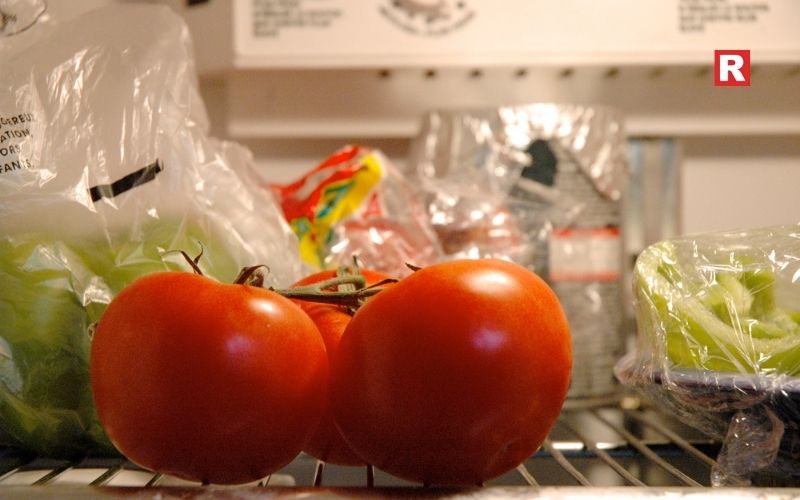
Put tomatoes in the fridge only when they’re fully ripe. Cold air slows down the enzymes that give them their flavor, so let them finish ripening on the counter first. When they taste just right, the fridge will help them keep that freshness for a few extra days. Store them in something that lets air through, or just toss them in the crisper drawer. Don’t use the sealed plastic bags as they trap moisture and speed up spoilage. When you want to eat, let the cold tomatoes sit out for a bit. This small step restores some of the aroma and juiciness that cold air tends to mute.
3. After Cutting

Once you cut a tomato, it starts to lose its moisture fast. To slow this down, cover the cut side tightly with wax paper or stick them cut-side down in an airtight container. Keep them in the fridge, and use them within a day or two for the best taste. If you’ve got diced tomatoes, pour off any extra juice before refrigerating. That keeps the pieces from getting soggy. Don’t leave cut tomatoes uncovered in the fridge. The cold air of the fridge will dry them out and dull their flavor.
What's new: 7 Tequilas That Deserve a Spot on Your Bar Shelf
4. After Picking Fresh from the Stem
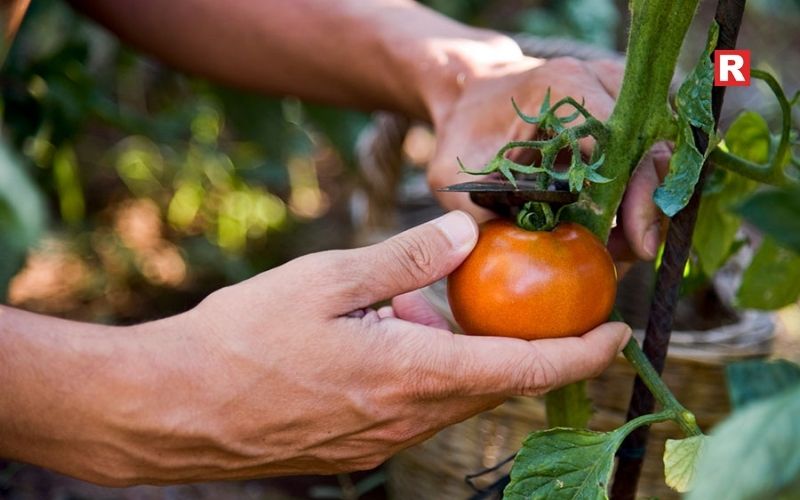
Fresh tomatoes taste best when you treat them gently right after picking. Just brush off any dirt. Don’t wash them until you’re ready to use them. If they’re still warm from the sun, let them rest inside, somewhere cool and out of direct light. Lay them out in a single layer, with the stems down. If some of them aren’t fully ripe yet, or if they’re just starting to turn color, leave them at room temperature so they can finish ripening. If you are harvesting in a hot climate, then don’t leave them for a long time in the heat, as it makes them go soft in no time. Indoors, out of the sun, they hold their shape and taste better. Once they’re as ripe as you like, pop them in the fridge to stretch their life for a few more days.
5. How to Store Whole Tomatoes for a Long Time

If you want to keep your tomatoes fresh for even longer, consider methods that change the tomato’s form while protecting its flavour. Freezing is the easiest way. Rinse, dry, and freeze them whole on a tray. When they’re solid, toss them in a freezer bag. Later, the skins will slip right off after thawing. Sure, frozen tomatoes aren’t great for salads, but they’re perfect for sauces or soups. You can also roast tomatoes before freezing. Roasting brings out their sweetness and gets rid of some water. Let them cool, pack them up, and freeze. Or, blend ripe tomatoes with a bit of salt, pour into freezer-safe jars, and freeze. If you want them to last even longer, try home canning. Just make sure you’ve got the right gear and follow safe steps. These tricks let you enjoy tomatoes long after their season ends.
Check out: 15 No-Oil Recipes That Taste Amazing
Top 10 Japanese-Inspired Matcha Desserts to Try
Mistakes to Avoid
- Washing tomatoes before storage increases surface moisture and encourages mould.
- Crowding tomatoes in a deep bowl leads to bruising, especially in the lower layers.
- Chilling underripe tomatoes weakens their texture and dulls their flavour.
- Wrapping tomatoes in plastic traps moisture against the skin and speeds spoilage.
- Storing tomatoes near ethylene-sensitive produce, such as cucumbers, affects the quality of both.
- Keeping tomatoes in direct sunlight causes rapid overripening and softening.
How Airflow Supports Freshness
Tomatoes stay better when they can breathe. When trapped in stagnant air, moisture builds up, and that’s how you end up with mushy spots and mould. Just spread them out in an open tray or a roomy basket. That’s usually enough to keep them at a steady temperature and stops them from getting squishy. Skip the deep bowls or stacked storage; the ones at the bottom always take the hit and get bruised. If your tomatoes come wrapped up tight from the store, tear that open as soon as you get home. Let that humidity out. Letting air flow around the tomatoes won’t stop them from ripening, but it makes a big difference. Their skin stays dry, and they stay firm way longer.
Quick Tips for Everyday Use
- Spread ripe tomatoes in a shallow tray and check on them daily.
- Sort them by how ripe they are, so you can use the softest ones first.
- If you want to ripen some up faster, then put them near apples or bananas.
- Take tomatoes out of those sealed grocery bags as soon as you get home.
- If you find a really soft tomato, cook with it right away.
- If your fridge is extra cold, then store ripe tomatoes in the crisper drawer.
Learn more: Top Korean Noodles Brands You Can Find in India
Freshness Through Care
The trick to keeping tomatoes fresh is simple: match how ripe they are to where you keep them, and don’t handle them too roughly. Once you get a feel for how warmth, air, and moisture change their texture, you’ll know whether to leave them on the counter, stash them in the fridge, or set them aside for longer storage. These little habits lock in flavor and help you waste less. Pay a bit of attention every day, and you’ll always have tomatoes that taste great and are ready to use whenever you need them.

Plant-based eating has significantly expanded over a period of a few years, not only among vegetarians but also among people who intend to decrease the amount of meat in their diet while still keeping the flavour and nutrition intact. More and more households in India are using vegetarian proteins that can give the same satisfaction as chicken but are better in terms of fibre content, cholesterol level, and affordability.
The idea is pretty simple. One needs meals that can provide the necessary nutrients, taste familiar, and be compatible with a certain exercise routine or simply serve as daily nourishment. Luckily, nowadays, the market offers plenty of ingredients that imitate the texture of chicken or serve the same purpose on your plate. Every one of them can easily be mixed with curry, grills, stir-fries, biryanis, or any other daily meals.
This article features the ten most excellent vegetarian chicken substitutes, with explanations about their flavours, cooking methods, and their strongest points. You can create a diet that not only contains an ample amount of protein but is also diverse and easy to prepare at home with the ingredients listed in this article.
Read more: 10 Most Popular Coffee Blends in India
What Makes a Good Chicken Substitute
Most of the time, the vegetarian ingredients fail to replace chicken as effectively as one might want. A proper substitution should have sufficient structure to maintain the integrity of the cooking process, it should be able to soak up the flavours well and most importantly, it should be a good source of protein. Texture is the most important factor since chicken is often liked for its specific bite and firmness. Protein levels indicate whether the meal meets your dietary needs, especially if you are into fitness or just want to have a stable source of energy. Furthermore, accessibility is also a factor that contributes to this. Substitutes only make sense if they are available in normal markets and at a reasonable cost. Therefore, flexibility also counts.
10 Vegetarian Chicken Alternatives
1. Soya Chunks

Soya chunks are still one of the easiest high-protein meat substitutes to get in India. After they are rehydrated, they have a texture that is chewy and somewhat firm, just like the textured mutton pieces or pieces of cooked chicken. So, they are perfect to make curries, biryanis, pulao, kebabs, and even sautéed dry dishes. Their ability to soak up marinades and spices is what makes them so powerful. A quick soak in hot water and a gentle squeeze will rid soya chunks of any raw smell. Since they can be used in simmering or slow cooking, what is more, they are great because they retain their shape. A 100-gram serving is an excellent source of protein and the highest among all vegetarian ingredients.
Know more: 10 Vegetarian Indian Foods That Help You Gain Weight the Healthy Way
2. Tofu

When you change a little, tofu can become a softer but still satisfying chicken replacement. It is a product of soy milk, and it comes in different textures, but density-wise, firm tofu is the closest substitute for dense chicken pieces. When cooking it, brown tofu is best. It is very fast at absorbing a marinade, and it can even be spiced without turning into a pulp. The best possible uses would be in stir-fries, grilled skewers, salads, and very mild curries like the ones from Thailand with coconut gravies. The texture gets more springy after wiping tofu with a towel. Small yet steady, the protein content of tofu is a reliable everyday ingredient. Without changing the flavour, one gets to season tofu to their best liking; thus, they are free to make any dish they want.
3. Tempeh

Among the vegetarian proteins, tempeh uniquely stands out. As it is made from whole fermented soybeans, it is firmer, earthier, and more structured than tofu. Its nutty flavour performs like a charm in deepening the dishes, and its compact body provides a bite similar to that of grilled chicken. You may cut it into slices, cubes, or simply crumble it in your recipes. Particularly, it is delicious in sandwiches, stir-fries, tandoori-style grills, and wraps. Along with other benefits, the fermentation process supplies tempeh with extra advantages, and its protein becomes more bioavailable. Due to its thickness, it is very good at holding marinades and browning fast on a pan or grill. Although tempeh is rarely found in normal stores, its increasing presence is turning it into a viable choice for those who want to spice up their diet of protein.
4. Paneer

Paneer, the quintessential Indian protein, is a very simple chicken alternative that has been around forever. A firm yet soft texture of paneer can be used without limitations in creamy gravies, grills, or dry tawa dishes. To be able to keep the shape of paneer when heated, it must be handled properly, and then it will not turn rubbery. Its protein content is not high, but still, it can be a reliable source of protein when combined with vegetables, lentils, or whole grains. Paneer tikka, paneer bhurji, paneer butter masala, and paneer stuffed rolls are some of the many examples that show how easily paneer can be a substitute for chicken in both everyday and festive meals. Moreover, as it is available everywhere, it is one of the most convenient substitutes for households that are short on time.
What's new: 7 Tequilas That Deserve a Spot on Your Bar Shelf
5. Raw Jackfruit

Raw jackfruit gives a naturally fibrous texture, which is very similar to that of shredded chicken. After cooking, it stays tender but has a little stringy texture, thus making it ideal for pulled “meat” sandwiches, curries, and slow-cooked dishes. It is a spice lover since it absorbs the spices without any problem and can then be utilised in cutlets, rolls, or stir-fries. The raw version of the fruit, unlike the ripe one, has a very subtle flavour that hardly changes when mixed with the other savoury seasonings. First of all, it is great for preparing comforting home-style curries; secondly, it is an excellent ingredient for creating plant-based versions of such dishes as korma or kofta. Furthermore, its nutritional profile contains moderate amounts of carbohydrates and fibre, together with a light dose of protein, thus making it a nutritious source of everyday meals.
6. Seitan

Seitan is a gluten-based product which is derived from wheat and is one of the plant-based proteins that most closely resemble the texture of chicken. It is very firm, elastic, and, therefore, it can be used in grilling, roasting, and stir-frying without falling apart. Due to its high protein content, it is a favourite among athletes who follow vegetarian diets. Seitan is also a quick flavour absorber, and if browned in a pan, it develops a very nice savoury taste. It is especially good in Indo-Asian dishes, wraps, skewers, and any recipe where a firm bite is required. Nevertheless, the best thing for people without a gluten intolerance is that seitan is still a great choice if they want hefty meat-like meals.
7. Plant-Based Mock Meats

Mock meats made from soy, pea protein, wheat protein or any blend of plant ingredients have become widely popular in India. The products have been made keeping in mind that they should look and taste like chicken, which makes them very handy when used in dishes that are already familiar to the users. You can easily make kebabs, burgers, mixed vegetable curry, biryani, and even tandoori dishes without going far in your kitchen. Most of them also come pre-marinated or pre-shaped, so you do not have to worry about the time you spend getting things ready. Their protein content varies, but in general, they are not less than or equal to chicken. Mock meats are the perfect choice for beginners who want a very close replica without going out of their way in the lab.
Check out: 15 No-Oil Recipes That Taste Amazing
Top Korean Noodles Brands You Can Find in India
8. Mushrooms (Oyster and Shiitake)

Oyster and shiitake mushrooms have a natural fibrous structure that is very similar to chicken and therefore works as a good chicken substitute. Their flavour is mild and becomes stronger when the mushrooms are cooked in a pan or on a grill, thus making it a perfect base for treats like curries, pasta, stir-fries, and fried rice. The mushrooms offer less protein than soy-based substitutes, but their texture, umami, and versatility overcome that easily in well-balanced vegetarian meals. By shredding and seasoning oyster mushrooms, one can get very close to the chew of shredded chicken. Mushroom pepper fry, mushroom masala, and mushroom stir-fried noodles are just a few of the many simple dishes that can be made using mushrooms.
9. Lentils and Dals
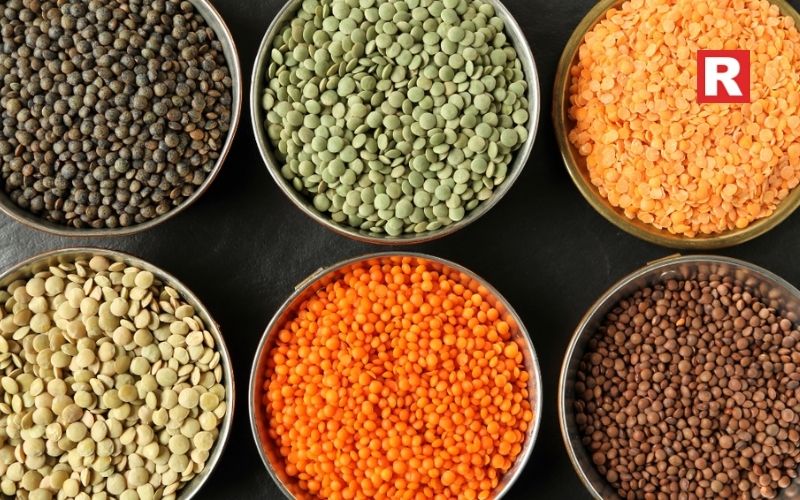
Lentils may not imitate the texture of the chicken, but they do provide the necessary protein and are the main ingredient of the vegetarian diet. On their own, lentils are incomplete, but when coupled with vegetables, spices, and whole grains, they ensure total nourishment. Lentil kebabs, lentil cutlets, dal-based curries, and mashed lentil patties are some of how one can replace chicken in everyday meals. Besides, they are quick to cook, can be used in a variety of cuisines, and are still affordable. Also, their inherent fibre content makes them good for digestion and gives the body energy that is stable. Dals are still a reliable and healthy option for those seeking high-protein meals without soy or mock meats.
10. Chickpeas

Chickpeas can give a solid texture and provide a steady amount of protein, thus making them trustworthy substitutes in dishes that are body and richness-dependent. They can be cooked as curries, thrown in salads, wraps, stews, grills, as well as many other things. Mashing them makes the perfect base for patties, koftas, and burger fillings, while keeping them whole makes them suitable for such dishes as chole, chickpea sauté bowls, or Mediterranean-inspired plates. In addition, chickpeas can be mixed with paneer, vegetables, or grains, which gives you the freedom to easily create nutritious meals. Moreover, their feature of giving saturation without heaviness makes them equally appropriate for lunch and dinner.
Learn more: Top Veg Japanese Dishes You Must Try on Your Next Visit
Smarter Veg Choices
Transitioning to vegetarian alternatives doesn't confine your meals. It actually gives you more options and allows you to be more creative. These components provide the body, taste and are a source of healthy nutrients in equal amounts. No matter if you are cooking for health, saving money, or just for the pleasure of it, plant-based chicken substitutes enable you to make meals that are both delicious and nutritious. Through the use of texture, flavour, and method, you can discover the mixture that works best for you and your daily routine. Each replacement on this list is equipped to perform a certain function in the kitchen, and as a result, they form a complete, protein-rich plan for regular meals.

One of the main factors in gaining weight the healthy way is to consume the right foods. It is easy to fall into the trap of buying processed or fried foods, but these methods usually result in the accumulation of unhealthy fat and the occurrence of digestive problems. Healthy weight gain is all about eating nutrient-dense foods that give calories, together with the necessary proteins, good fats, and vitamins. Making meals with these foods not only helps to increase body weight but also to develop muscles, have good energy, and be in good health.
The variety of food choices in India makes it possible to prepare a weight-gain diet that is tasty and balanced at the same time. Indian cuisine is very rich and diverse, and therefore, it is very easy to get your requirements for healthy weight gain. Here is a list of ten Indian foods that can be your companions on the road to weight gain.
Read more: 15 No-Oil Recipes That Taste Amazing
Ten Indian Foods for Healthy Weight Gain
1. Paneer (Cottage Cheese)

Paneer is among the top and most effective foods for healthy weight gain. Paneer, being rich in protein and good fats, supplies the materials for muscle growth, and at the same time, it makes a major contribution to the calorie intake. Usually, the nutrient composition of 100 grams of paneer has about 265 calories and 18 grams of protein. To gain weight, you should put 150–200 grams of paneer into your diet, whether it is paneer bhurji, paneer tikka, or paneer mixed with the curry. Whole-grain rotis or rice, when eaten with paneer, also double the calorie intake and provide a perfect combination of protein and complex carbohydrates.
2. Bananas

Bananas are calorie-rich fruits that provide energy quickly, along with other essential nutrients like potassium, magnesium, and vitamin B6. They are perfect for weight gain as they can be consumed in different ways, as a snack, in smoothies, or in milkshakes. The consumption of 2–3 bananas a day, along with a handful of nuts or a glass of milk, can provide an extra 300-400 calories. Bananas also help the digestive system and provide energy for a long time; thus, they are an easy and convenient option for people who want to gain weight slowly.
Know more: Top 10 Japanese-Inspired Matcha Desserts to Try
3. Nuts and Seeds

Both nuts and seeds are high in calories and packed with unsaturated fats, protein, and essential minerals such as magnesium, zinc, and vitamin E. Among these, almonds, cashews, walnuts, flaxseeds, and pumpkin seeds are the best. Approximately 200 to 250 calories can be derived from a small handful (30–40 grams) of mixed nuts. Besides being consumed as snacks, nuts can also be mixed in breakfast porridge or added to yoghurt and smoothies. However, the calorie intake can still be elevated by combining nuts with dried fruits such as raisins and dates, while the snack remains nutritious.
4. Ghee

Ghee, which is a traditional Indian fat, is very rich in calories and fat-soluble vitamins A, D, E, and K. Hence, a tablespoon or two of ghee added to the meals can give an extra 200 calories to the diet without a significant increase in food volume. In dal, rice, chapatis, or even steamed vegetables, ghee can be used to enhance the flavour. Ghee creates a great effect on the absorption of nutrients from other foods; thus, it is an excellent addition to a weight-gain diet if consumed in moderation.
5. Oats

Oats are a great source of complex carbohydrates, fibre, and protein, which makes them a perfect food for healthy weight gain. 100 grams of dry oats provide approximately 389 calories and 17 grams of protein. There are so many ways to eat oats. You can make oatmeal using whole milk, nuts, and honey or prepare savoury oats with paneer and vegetables. If you want to add more calories to your diet, then simply mix oats with a banana, peanut butter, or ghee, and you will get a compact breakfast or snack that will help you slowly gain weight.
6. Sweet Potatoes

Sweet potato is a very good source of complex carbohydrates, dietary fibre, and various micronutrients like vitamin A and potassium. It is quite a simple food to digest, and it gives energy that is sustained, which can be very helpful in the process of weight gain. One medium-sized sweet potato provides roughly 112 calories. To get the most out of it, make sure you eat baked, roasted, or mashed sweet potatoes with some ghee drizzled over them or a few nuts sprinkled on top. Additionally, the combination of sweet potatoes and paneer, lentils, or eggs will not only increase the protein content but will also provide you with a balanced meal that is ideal for muscle growth.
What's new: Best Exotic Fruits to Enjoy This Winter for Taste, Health and Glow
7. Chickpeas and Lentils

Legumes , especially chickpeas (chana) and lentils (masoor, moong, toor), are great plant-based protein sources. What is more, they are high in fibre, iron, and complex carbs, which makes them calorie-dense as well as highly nutritious. 1 cup of cooked chickpeas has nearly 269 calories and 15 grams of protein. The recipes that use them could be chana masala, dal, or soups and rice or chapati could be used to make a complete protein meal. Lentils are flexible and can be mixed with vegetables, ghee, or coconut milk to get more calories.
8. Milk and Dairy Products

Full-fat milk and other dairy products like curd, cheese, and buttermilk are efficient foods for healthy weight gain. Full-fat milk has approximately 60 calories per 100 ml, together with protein and calcium. Milk can be used to make milkshakes with bananas or dates, or added to oatmeal, or lassi and paneer-based dishes. Dairy not only gives the body the essential protein and fat but also helps the bones with good health, making it a necessary part of a weight-gain diet.
9. Rice

Rice has always been a staple food in Indian meals and is a good source of one of the major macronutrients, that is, carbohydrates, which are necessary for increasing body mass in a healthy way. One cooked cup of white rice accounts for almost 200 calories, while brown rice adds fibre and some other nutrients. To make a wholesome, high-calorie meal, you can mix rice with ghee, dal, paneer, or lentil curries. Aside from that, you can also make vegetable pulao or khichdi as a way to increase your protein and calorie intake. Rice is simple to digest and thus, it is possible to consume it even three times a day without any discomfort.
Check out: Top A2 Ghee Brands in India to Keep You Warm & Healthy This Winter
12 Foods Like Avocado That Are Creamy, Healthy, and Tasty
10. Peanut Chikki

Peanut chikki is a very convenient and simple option for healthy weight gain as it has a perfect combination of natural fats and a steady source of energy. Peanuts provide protein and are calorie-dense, whereas the jaggery makes the whole thing into a quick snack that is not heavy but feels quite filling. A small piece taken after meals or with a glass of warm milk gradually helps raise the daily calorie intake. Besides, it is good enough for a packed and rushed day as it stays fresh and is easy to carry. Therefore, a lot of people use it as a mid-morning or evening energy source, especially when they find it difficult to add more food to their regular meals.
Tips to Maximise Healthy Weight Gain
- Eat frequently: Include 5 to 6 smaller meals throughout the day instead of 2 to 3 large meals to raise calorie intake.
- Combine nutrients: Proteins can be paired with complex carbs and healthy fats to make balanced meals (e.g., paneer with rice and ghee).
- Include snacks: Nuts, bananas, and milkshakes in between meals can contribute 300 to 400 calories daily.
- Use calorie boosters: By adding ghee, nuts, or dried fruits to meals, one can increase the calorie density of the meal without increasing the meal volume.
- Stay consistent: Gradual, steady increases in calorie intake work better and last longer than sudden large portions.
Learn more: 7 Tequilas That Deserve a Spot on Your Bar Shelf
Fueling Daily Growth
Healthy weight gain is easily achievable if one gets the right balance of nutrient-dense foods and lifestyle practices. The Indian diet is full of calories, protein, and nutrient-rich food sources like paneer, eggs, rice, and legumes. You can gain weight in a sustainable and wholesome manner by thoughtfully combining these foods, eating regularly and doing a little strength training. Concentrate on steady growth rather than rapid changes, and at the same time, enjoy the process of getting stronger and more energetic through natural, tasty and satisfying meals.

In the quiet hum of a kitchen before service, a chef isn’t just thinking about flavors — they’re composing emotion. Every menu is a living document, a reflection of taste, time, and intuition. It’s where science meets soul: balancing the discipline of technique with the instinct of storytelling. In a city where diners crave both comfort and surprise, chefs find themselves walking a fine line — honoring their culinary identity while evolving with shifting palates and trends. The art of menu curation, then, becomes more than a list of dishes; it’s an invitation into a shared experience, a dialogue between what’s timeless and what’s next.
Where Science Meets Story
There’s no denying that science and emotion are not opposites — they are partners in creating meaningful food. The scientific principles of nutrition, texture, and flavor pairing provide the structure, while cultural storytelling gives the dish its heart and memory.
“To appeal to a wider audience, ingredients, cooking techniques, texture, and flavors are carefully considered while creating a balanced menu. Nutrition also plays a key role, especially with growing awareness about health. Many familiar, home-cooked dishes are now part of menu offerings because they connect emotionally with guests,” shares Ho Chi Ming, Executive Chef – Renaissance Bengaluru Race Course Hotel.
A well-balanced plate includes fruits, vegetables, proteins, and grains or starches each adding unique flavors, textures, and nutrients. And, chefs are very particular about what appears on their menus because every dish either evokes a personal memory or represents something they have worked to perfect over the years.
“One of the purest examples of this balance is the tandoor, a centuries-old Indian cooking technique that beautifully demonstrates natural cooking chemistry. The tandoor’s intense dry heat seals in juices, enhances natural sugars through the Maillard reaction, and imparts that smoky depth while retaining maximum nutrition. It’s science and tradition in harmony — where controlled heat and primal fire come together to nourish both body and soul,” adds Chef Hardeep Singh- Executive Chef, Zarf at Sheraton Grand Bengaluru Whitefield Hotel & Convention Center.
According to chefs, when they design a menu, they start from emotion — a memory, a story, a region — and then refine it through science and precision. Whether it’s understanding collagen breakdown in slow cooking or balancing acidity in a chutney, the goal remains the same: to create food that resonates with both mind and memory.
Turning Heritage into Flavour
Personal memory, heritage, or inspiration plays a crucial role when creating menus. Heritage influences cooking techniques and allow chefs to pay homage to where we come from; years of learning and adapting shape how we reinterpret dishes; and memories of childhood or travel bring comfort and variety.
For chefs, nostalgia is the soul of flavor. It connects generations, binds culture, and evokes comfort. “My food always begins with a memory. At DYN, many dishes are inspired by regional flavors I grew up with the warmth of Indian spices, the aroma of a family kitchen but expressed through a new lens, like pairing local produce with international techniques or grilling methods that enhance familiar notes. It’s about familiarity meeting curiosity,” points Chef Amit Sharma, Executive Chef, Hilton Bangalore Embassy GolfLinks adding that at another restaurant, SETA, inspiration often comes from travel, from the sun-kissed flavors of the Mediterranean and Asia, where simplicity defines beauty. “Guests may not know the story behind each dish, but they can feel it the comfort, the nostalgia, and the quiet joy that inspired it,” he adds.
Every dish carries a fragment of the chef’s story — a memory, a flavor from home, or an inherited tradition. Through thoughtful translation, these personal inspirations become experiences guests can taste, feel, and remember.
“My upbringing in a Hindu Bengali family, along with my travels across India and abroad, deeply influences my cuisine. The time I spent in the kitchen with my great-grandmother continues to shape my approach to menu design. Sharing those personal stories with guests creates an instant connection it evokes warmth and helps diners relate to what they’re eating on a more emotional level,” says Chef Gaurav Paul, Executive Chef, Bengaluru Marriott Hotel Whitefield.
He also mentioned that traditional recipes like pickles and Goyna bori which rely on natural fermentation and have been passed down through generations in his family remain central to his repertoire and are always appreciated. On the other hand, incorporating techniques like caviar, foams, and spherification adds a modern touch, lending dishes a contemporary and refined appeal. Similarly, using precise sous vide methods to cook seafood or meat ensures a perfect texture and flavour, consistently receiving an overwhelming response from guests.
“One dish that embodies this philosophy is my modern interpretation of Shabdegh, a lost Kashmiri classic. Traditionally slow-cooked underground overnight, I reimagined it using sous vide, ensuring precision in texture and temperature while retaining the soul of the dish. The lamb becomes meltingly tender, yet the flavors of turnip and spices stay bright and defined,” mentions Singh.
Equally fascinating is how fermentation and preservation are deeply rooted in regional Indian food traditions — In Kashmir, fermentation appears in dishes like haakh saag, sundried vegetables, and preserved meats that develop complexity during the long winters. In Punjab, fermentation shines in the tangy kali gajar ki kanji, a probiotic-rich drink that uses the science of lactic fermentation to create bold sourness and vibrant color. Preservation, on the other hand, comes alive in traditional pickles and Amritsari lentil wadiyan, where sun-drying and spicing prevent spoilage while deepening flavor and texture.
These age-old techniques weren’t just about survival; they were acts of culinary intelligence — using nature’s chemistry to transform and sustain.
The Beauty of Seasonality
Seasonality is both science and philosophy. On a scientific level, it’s nature at its most precise — produce reaching its peak concentration of nutrients, flavor, and natural sweetness. Nothing needs to be added; nature has already done the work.
But seasonality is also a mindset — a quiet philosophy that asks us to pay attention. It’s about respect: for the land that grows our food, for the farmers who nurture it, and for the time it takes to bring each ingredient to life. To eat seasonally is to live in rhythm with the world around us — to taste not just what’s fresh, but what’s right, right now.
“For generations, we have known that food should be eaten according to the season. Ingredients grown and harvested at the right time offer better flavor and higher nutritional value. Each seasonal ingredient brings its own nourishing quality when used at the right moment. This approach also supports local farmers and reduces carbon emissions,” points Ming.
And, for ages we as a country has believed and followed aeasonality and sustainability as the heart of my menu design. Seasonal produce is always fresher, more economical, and enhances the overall dining experience.
“Seasonality and sustainability are guiding forces in my kitchen. Scientifically, ingredients in season deliver peak flavor and nutrition; philosophically, they keep us honest as cooks,” adds Sharma.
From the First Bite to the Last
“Today’s diners are well-travelled and knowledgeable about food, which means chefs must be intentional with every offering. The key to satisfying guests lies in authenticity using genuine ingredients, time-honoured techniques, and avoiding unnecessary complexity,” shares Paul.
Every dish should have a story that justifies its place on the menu. When presented with sincerity, backed by authentic flavours and the right narration, the experience always connects.

Healthy eating doesn't mean giving up the foods you love just because of oil. You'll be delighted to discover how delicious no-oil cooking can be. Whether you're managing your weight, reducing cholesterol, or simply trying to adopt a healthier lifestyle, removing oil from your diet can create a lighter, more balanced approach to eating. But here's the best part: oil-free food doesn't have to be bland, dry, or boring. In fact, with the right cooking techniques, fresh spices, and creative ingredient swaps, oil-free dishes can taste even better than traditional recipes.
Dishes are abundant all over the world that naturally don't require oil, and even some Indian dishes, which are often rich in tadkas, can easily be remade into flavorful, wholesome, no-oil versions.
This article lists 15 recipes that taste absolutely amazing even without oil. You'll also learn the science behind oil-free cooking, expert techniques, and simple tips to help you cook healthier without compromising on taste.
Read more: 12 Foods Like Avocado That Are Creamy, Healthy, and Tasty
Health Benefits of No-Oil Recipes
Switching to oil-free cooking can greatly improve your overall health surprisingly quickly. Here's how:
- Better Heart Health: Removing or lowering the amount of oil from your food helps reduce levels of saturated and trans fats, hence improving one's LDL, or bad cholesterol levels. This decreases the chance of heart disease, high blood pressure, and arterial blockage.
- Supports Weight Loss: Oil is really calorie-dense. Just 1 tablespoon contains about 120 calories. Cutting out or using less oil instantly reduces daily calorie intake without sacrificing portion sizes.
- Improved Digestion: Oil-heavy food often causes bloating, acidity, and sluggish digestion. No-oil dishes feel lighter and easier on the stomach
- Helps Manage Diabetes & Cholesterol: It has been demonstrated that plant-based diets, free of oil, can improve insulin sensitivity and maintain healthier cholesterol levels.
- Encourages Cleaner Eating: When you skip the oil, you are naturally relying on whole ingredients, fresh vegetables, herbs, and spices, making the diet more nutrient-dense.
Overall, the no-oil approach isn't just a trend. It's a sustainable, healthy way of living, which still allows you to enjoy rich flavours and comforting meals.
15 No-Oil Recipes That Are Filled With Flavour
1. Oil-Free Moong Dal Chilla

A pancake that is packed with proteins, made with ground moong dal, ginger, green chillies, and spices, all well-cooked on a non-stick tawa without a drop of oil. The batter spreads beautifully to give a crispy, soft chilla that goes well with chutneys. The natural starch in the dal helps it brown without getting burnt and retains its texture beautifully, making it an ideal breakfast or light snack.
Know more: How to Make Momo at Home for a Healthy Treat
2. Steamed Veg Momos
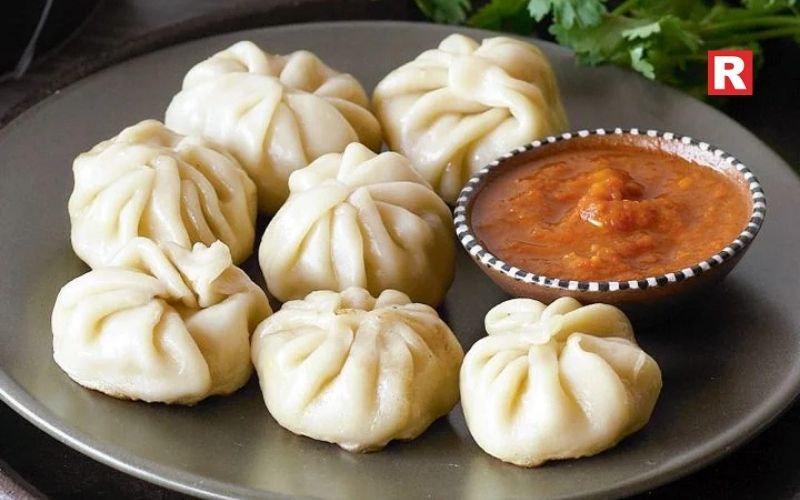
Steamed momos are equally tasty with or without oil. The filling of cabbage, carrots, onions, garlic, and pepper releases its natural moisture during steaming, lending tenderness and flavour to the dumplings. Serve with spicy tomato chutney for an oil-free yet satisfying meal.
3. No-Oil Rajma Masala

Rajma, slow-cooked, turns creamy without any addition of oil. The trick lies in sautéing onions and tomatoes in water or vegetable broth till they dissolve into a thick gravy. Add some warm spices like cumin, paprika, and garam masala into the pot. It blends nicely, turning into a hearty, soul-comforting curry for rice or roti.
4. Air-Fried Tandoori Paneer

Using an air-fryer makes marinated paneer into crispy, charred bites without using any oil. The marinade of yoghurt, lemon juice, chilli, Kashmiri red powder, and tandoori masala caramelises on its own. It becomes a smoky, tangy, and guiltless snack.
5. Zero-Oil Lemon Rice

While traditionally, it is prepared with oil tempering, this version uses dry-roasting the spices like mustard seeds, chana dal, and curry leaves before mixing in warm cooked rice and fresh lemon juice. The flavour stays bright and aromatic, and the turmeric gives a beautiful golden colour without adding any heaviness.
6. Steamed Dhokla

This Gujarati classic is a naturally oil-free dish prepared by steaming. Fermented besan batter turns fluffy and soft, absorbing sweet and tangy flavours from lemon and green chilli. Instead of an oily tadka, sprinkle roasted sesame seeds and fresh coriander for texture and freshness.
7. Oil-Free Vegetable Biryani
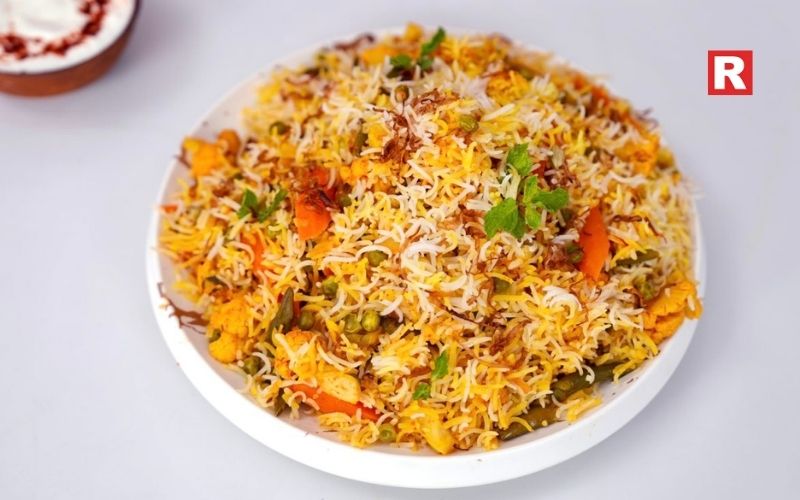
Flavorful aromatic rice and vegetables are cooked together in a sealed pot with spices like cardamom, bay leaf, and cloves-with absolutely no oil. Steam cooks the biryani and infuses the aromatic flavour deeply, but keeps it light in calories. Adding fresh herbs and a squeeze of lime makes it even better.
What's new: Top 10 Japanese-Inspired Matcha Desserts to Try
8. Baked Samosa

Making a samosa with no oil can sound like an impossible thing to do, but baking instead of frying keeps the pastry crisp while significantly reducing the calories. The spiced potato-pea filling is already cooked, so skipping oil is possible. This process keeps this iconic snack crunchy, golden, and guilt-free.
9. No-Oil Tomato Rasam

This sour South Indian broth gets its flavour from tomatoes, tamarind, pepper, cumin, and coriander. Instead of oil tempering, the spice mixture can be dry-roasted in advance to unlock the aroma. The result is a warm, light, and digestion-friendly soup.
10. Zero-Oil Hummus

Traditional hummus is made with tahini and olive oil, but you can make a creamy alternative by blending the chickpeas with lemon, garlic, aquafaba, and tahini only. It remains thick and velvety in texture. Feel free to enhance its flavours with herbs or roasted garlic.
11. Air-Fried Roasted Vegetables

Air-frying vegetables like bell peppers, zucchini, sweet potatoes, and mushrooms allows them to caramelise without oil. Their natural sugars develop a smoky, roasted depth that makes this a healthy side dish packed with nutrition.
12. No-Oil Chole Masala
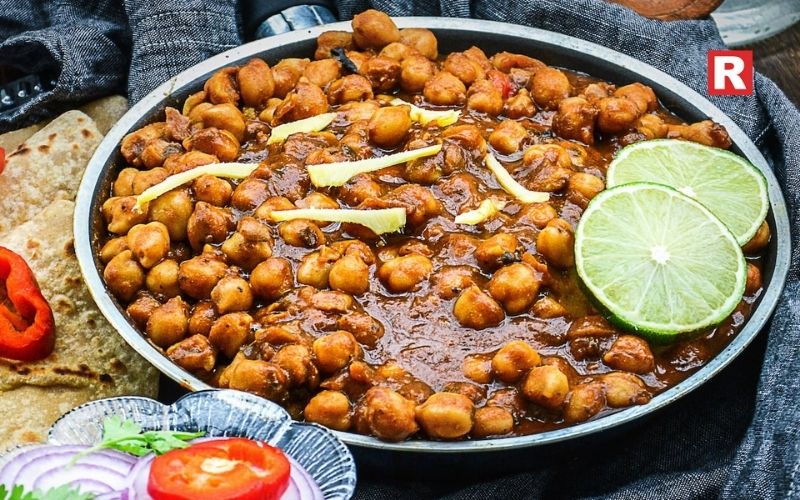
Chole can be cooked perfectly without oil using tomato purée, onion paste and aromatic spices. Boiled chickpeas soak in the masala as it simmers to get a thick, flavourful gravy. It is an ideal combination with whole wheat kulchas or rice.
13. Steamed Idli with Mint Chutney
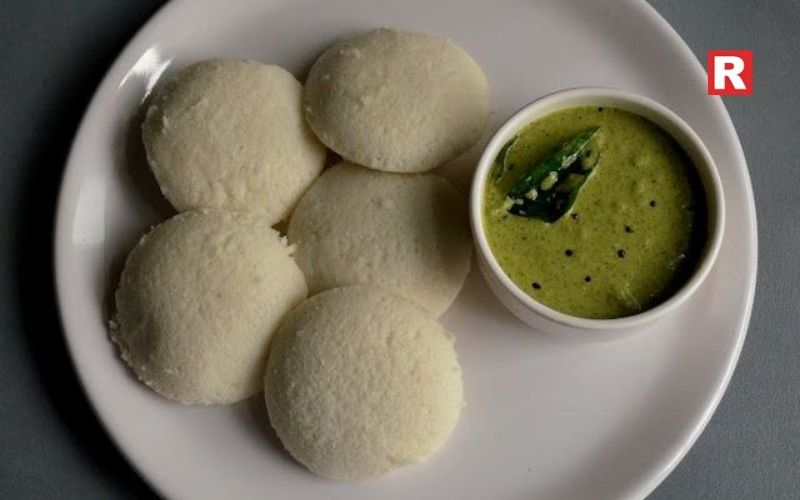
Idlis are an excellent choice if you are aiming to avoid the use of oil in your diet, as they are steamed and thus do not require any oil. Idlis are made of rice and urad dal-based fermented batter, and are healthy, soft, and filling in nature. Coupled with the mint-coriander chutney, this meal is a source of complete nutrition and energy.
14. Zero-Oil Oats Cutlets

These vegetables are turned into delicious snackable patties by mixing oats, carrots, peas, and spices. Either baking or air frying these patties gives you a nice crust on the outer side, while the inside remains soft. These are perfect for tea time or a healthy evening snack.
15. No-Oil Thai Green Curry

Without the use of oil, this delicious curry can be made by using only natural ingredients such as coconut milk, lemongrass, basil, and fresh green curry paste. The vegetables are cooked until they are very tender in a tasty coconut base, which is full of Southeast Asian flavours. It can be eaten with steamed jasmine rice.
Check out: Top 12 Vodka Brands Loved In India
Top Korean Noodles Brands You Can Find in India
Techniques Used in Oil-Free Cooking
Oil-free cooking has been made more convenient with the help of modern methods and intelligent kitchen gadgets. Below are the most effective techniques:
- Water Sautéing: Do not fry onions and tomatoes in oil. Sauté them in some water or vegetable broth. Once the liquid has evaporated, the ingredients will caramelise on their own.
- Steaming: Steaming is a method that preserves the colour, vitamins, and texture of food. Thus, it is suitable for momos, idlis, vegetables, and dumplings.
- Baking & Air-Frying: Baking or air-frying can result in a crispy or browned exterior without using oil; thus, these methods are perfect for dishes that need deep-frying in oil.
- Dry Roasting: Spices get their full flavour when they are roasted on low heat. They release essential oils that enhance aroma and depth.
- Slow Cooking: Beans, lentils, and curries develop rich flavours when simmered in their natural moisture.
- Using Non-Stick Pans: Non-stick cookware helps you to prepare pancakes, chillas, and vegetables without using oil.
Ingredients That Replace Oil’s Role
Oil adds richness and prevents sticking, but several healthy ingredients can take its place:
- Coconut Milk & Nut Pastes: Cashew, almond, or coconut adds creaminess to gravies and curries.
- Tomato & Yoghurt Bases: These help build gravy without oil while adding tang and depth.
- Vegetable broth: It enhances flavours in soups, chole, and sautéed items.
- Fresh Herbs: Mint, coriander, basil, dill, and curry leaves brighten flavours instantly.
- Natural Fats: Avocado, tahini, and peanuts add body without processed oils.
- Tangy Agents: Lemon, vinegar, and tamarind help lift flavours and adjust spices.
Tips for Making No-Oil Food More Delicious
- Always use spices that release a stronger aroma.
- Enhance your flavour by adding acids like lime or tamarind.
- Marinating vegetables or proteins can keep their moisture locked.
- Play with the different textures by using crunchy seeds or toasted grains.
- Do not rush your cooking; slow simmering helps to deepen the flavour.
- Frequently tasting your dish helps to adjust the seasoning at the right time.
- Use umami items such as soy sauce, mushrooms, miso, or nutritional yeast.
Learn more: Top Veg Japanese Dishes You Must Try on Your Next Visit
Light, Tasty, Easy
Cooking oil-free is not a matter of limiting the amount, but rather rediscovering taste in its simplest form. It is proven by these 15 no-oil dishes that healthy food can be of various colours, satisfying, and highly adaptable. By knowing the proper methods and selecting the right ingredients, it is possible to have the lighter versions of the dishes that are your favourites without giving up on the taste. Whether you are initiating a healthy lifestyle or merely experimenting with cleaner cooking ways, these recipes offer you the whole world of flavours in your kitchen.

Matcha is a simple, bright green powder of green tea that has taken the world by storm. But it is so much more than just a popular ingredient. Matcha is produced by grinding shade-grown green tea leaves into a fine powder and possesses a unique flavor profile that feels earthly, slightly bitter, umami-rich, and deeply aromatic. What sets matcha apart from regular green tea is that you consume the entire leaf rather than an infusion, making it far more concentrated in antioxidants, amino acids, and nutrients.
Over the past decade, matcha has found its way from traditional tea ceremonies out into modern cafes, bakeries, and dessert kitchens around the world. The beverage's bold colour, elegant flavour, and health benefits have turned it into a dessert superstar. Whether you are a newbie with matcha or it has already captured your heart and senses, an exploration of Japanese-inspired matcha desserts can open an entirely new world of flavor and creativity for you.
In this article, we will be listing ten matcha desserts that are inspired by Japanese cultures, cafes, and cuisine.
Read more: Top Famous Indian Desserts You Can Have After Your Meal
Why Matcha Works Well in Desserts
Matcha is visually striking, but also a very versatile dessert ingredient. The earthy bitterness cuts through sweetness with a beautiful balance and depth not often replicated by the most common dessert flavors on their own. Unlike overly sweet treats, matcha brings in a certain refined umami flavor that will appeal to both traditional tastes and modern foodies.
Another reason matcha works so well in desserts is its compatibility with a range of textures, like creamy, chewy, flaky, crunchy, or airy. Whether folded into whipped cream, blended into batter, or dusted on top as a finishing touch, matcha enhances both flavour and appearance. Its natural colour is also a major attraction. That intense green hue signals freshness and sophistication, turning even the simplest dessert into something visually stunning.
And then, of course, there's the health angle. Matcha boasts a high level of antioxidants in the form of catechins, the calming L-theanine, and a subtle kick of caffeine, contributing to the sense that matcha desserts are an indulgence with benefits. In short, matcha makes desserts taste elegant, look beautiful, and nutritious, compared to traditional sweets.
Know more: How to Make a Healthy Dessert With Just 5 Ingredients
List of Top 10 Japanese-Inspired Matcha Desserts
Below are ten irresistible Japanese-inspired matcha desserts, each described in rich, indulgent detail.
1. Matcha Mochi

Matcha mochi strikes a perfect balance between chewiness and fragrance. This popular Japanese dessert combines tender, elastic glutinous rice dough with the subtle hint of matcha, thus creating a comforting and unique dessert. The slight bitterness from the matcha cuts through the sweetness in the mochi, which makes it satisfying but not overwhelming. Fill this with red bean paste or cream, and matcha mochi becomes even more delectable. Its simplicity and addictive chewiness make this a signature Japanese dessert.
2. Matcha Mille Crepe Cake

The Matcha Mille Crepe Cake is elegantly layered to perfection. Made from dozens of thin crepes stacked with matcha-infused pastry cream, this dessert is a masterpiece of texture and flavour. Every bite melts in your mouth as soft layers give off a well-balanced sweetness and the earthiness of matcha. The subtle bitterness balances the creaminess, making this dessert feel luxurious rather than heavy. Delicate-looking and sophisticated to taste, the cake is always a favorite in upscale cafes.
3. Matcha Dorayaki

Dorayaki are soft and fluffy pancakes traditionally filled with sweet red bean paste, but they get a vibrant twist when it is filled with matcha. Matcha dorayaki combines airy green pancakes with a sweet filling that complements the tea flavor so well. The earthiness of matcha blends well with the mild sweetness of the red bean, giving this dessert a nostalgic yet refreshing taste. It is the perfect tea-time snack since it's portable, satisfying, and only sweet enough.
4. Matcha Cheesecake

Matcha cheesecake is where Japanese flavor meets Western indulgence. Surprisingly, the creamy, velvety texture of cheesecake works well with the bitterness of matcha, creating a dessert that's rich but never syrupy. The green hue makes it stand out visually, while the flavor strikes a perfect balance between creamy and earthy. Whether baked or no-bake, this has become a favorite worldwide among dessert lovers who crave something different.
What's new: Top Korean Noodles Brands You Can Find in India
5. Matcha Taiyaki

Taiyaki is a cute fish-shaped pastry that is usually filled with red bean paste, custard, or chocolate. The addition of matcha makes it even more appealing. The slightly crispy outer shell carries the aroma of matcha very well, while the warm inner filling provides a satisfying contrast. Matcha taiyaki is fun, creative, and full of flavor-perfect for anyone who loves street-style desserts of Japan.
6. Matcha Ice Cream

No matcha dessert list is complete without matcha ice cream. Silky, creamy, and refreshingly earthy, this frozen treat has captured the hearts of foodies from around the world. It has just the right amount of sweetness to balance bitterness, which makes it far more intriguing than its plain vanilla or chocolate counterparts. Chilling enhances the flavor of matcha, making it a truly cooling and aromatic experience with each spoonful. Whether served alone or paired with mochi, red beans, or waffles, matcha ice cream is always a crowd-pleaser.
7. Matcha Parfait

Matcha parfait is a layered treat made from ice cream, whipped cream, jelly cubes, red beans, dango, and crunchy granola or cornflakes. From layer to layer, different textures come into play, creating a symphony of chewiness, creaminess, and crunch. The matcha ice cream brings it all together with the richness of tea flavor that carries the sweetness. It’s visually stunning and highly satisfying. It is a perfect dessert for those who enjoy variety in every bite.
8. Matcha Daifuku

Daifuku is similar to mochi but typically filled with sweet fillings such as red bean or whipped cream. Matcha daifuku adds an extra layer of flavor due to the addition of matcha within the dough or filling. With soft mochi, the creamy center, and the aromatic matcha, this dessert feels luxurious and approachable at the same time. Its smooth bite and well-balanced sweetness are reasons to love it.
9. Matcha Cookies

Crispy on the edges and chewy in the middle, matcha cookies are the modern take on classic baked desserts. The matcha gives the cookies not just a beautiful green color but also enriches them with a deep, slightly bitter note that perfectly pairs with white chocolate chips or nuts. These cookies are indulgent yet not overly sweet, making them perfect for anyone who enjoys more subtle flavors.
10. Matcha Roll Cake

Delicate, soft sponge rolled with light matcha cream creates a dessert that is as appealing to the eyes as it is to the palate. The sponge is soft and airy, and the matcha cream is smooth and fragrant. These two together combine into a perfect harmony of texture and flavor. When this bright green swirl is displayed inside the cake, the cake is simply irresistible-a favorite found in Japanese bakeries.
Check out: Top 12 Vodka Brands Loved In India
15 Pancake Dishes From Around the World That Every Foodie Should Know
Ingredient Recommendations
Choosing your ingredients correctly vastly enhances the flavor, color, and general quality of your matcha desserts. The most important component is the grade of matcha. Culinary-grade matcha is generally used in desserts because it blends seamlessly into batters and creams while holding its flavor. However, ceremonial-grade matcha will provide a brighter color and a smoother taste in desserts, which would be perfect for no-bake treats such as ice cream or parfaits.
When purchasing matcha, try to find vibrant green, finely milled powders that are sourced from well-regarded Japanese regions like Uji, Nishio, or Shizuoka. Stay clear of anything that seems dull or yellowish because this tends to have lower quality and a more bitter taste.
Complementary ingredients include red bean paste (anko), mochi, white chocolate, fresh cream, glutinous rice flour, and vanilla. Each of these pairs really well with the earthy tones of matcha. When making baked goods, using good-quality butter, cream cheese, and fresh eggs will amplify flavours and textures in your desserts.
Tips for Making Matcha Desserts at Home
- Sift the matcha powder to avoid lumps and ensure a smooth mixture.
- Whisk matcha with warm water first to help it dissolve and release the full flavor.
- Use culinary-grade matcha for baking, and ceremonial-grade for no-bake desserts.
- Adjust sweetness to balance matcha’s natural bitterness.
- Avoid high heat, which dulls matcha's colour and taste.
- Matcha should be stored in an airtight container away from light and moisture.
- Pair matcha with complementary flavours such as red bean, white chocolate, or cream.
- Mix properly into dry ingredients to retain color and texture in baked goods.
Learn more: Top Veg Japanese Dishes You Must Try on Your Next Visit
Savour the Green
Japanese-inspired matcha desserts are truly a beautiful combination of tradition, artistry, and flavor. Their unique balance, earthy and sweet, makes them different from the ordinary dessert options, and the natural green color brings class to any creation. Be it silky matcha ice cream, a delicate mille crepe cake, or comforting mochi, each dessert tells its story of Japanese culture.
Trying matcha desserts is one of the most delightful ways to discover new flavors, where subtle bitterness turns beautiful, textures play in harmony, and each single bite feels both modern and timeless. With the right matcha, quality ingredients, and practice, you can make these Japanese delights right in your kitchen.
Copyright © 2009 - 2026 Restaurant India.




